

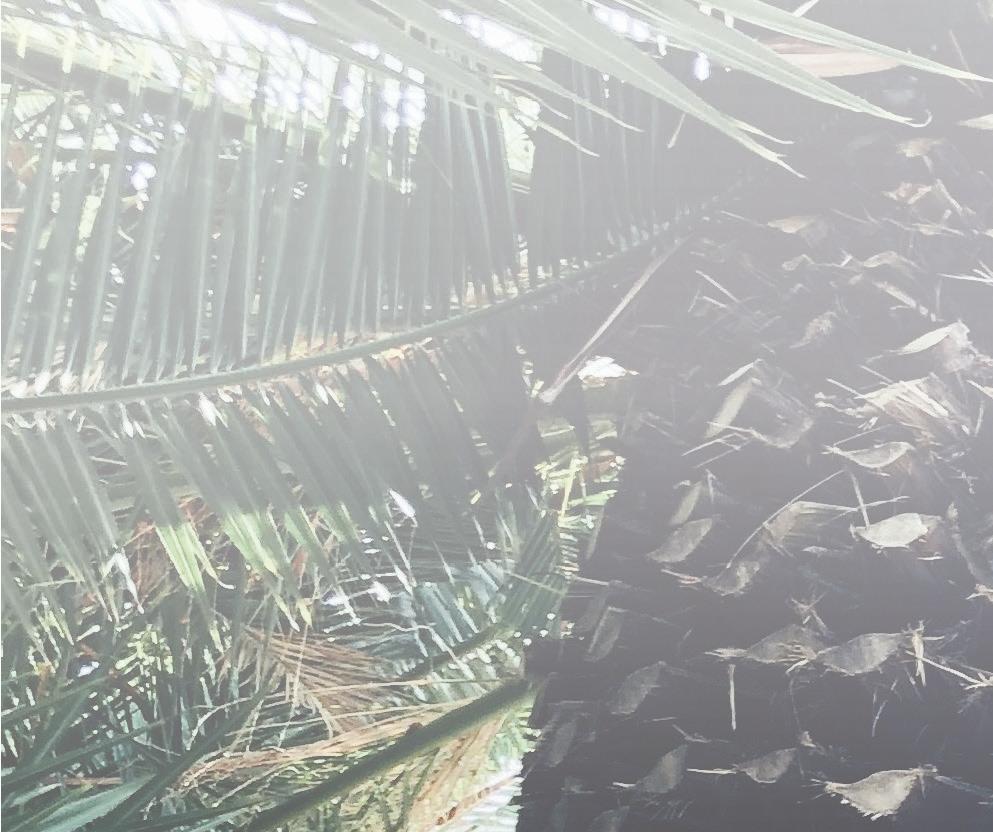








PRESIDEN JOKOWI MERESMIKAN PABRIK
MINYAK KELAPA SAWIT YANG DIFINASIKAN
PERTAMA DI INDONESIA


PRESIDENT JOKOWI INAUGURATES FIRST REFINED PALM OIL FACTORY IN INDONESIA















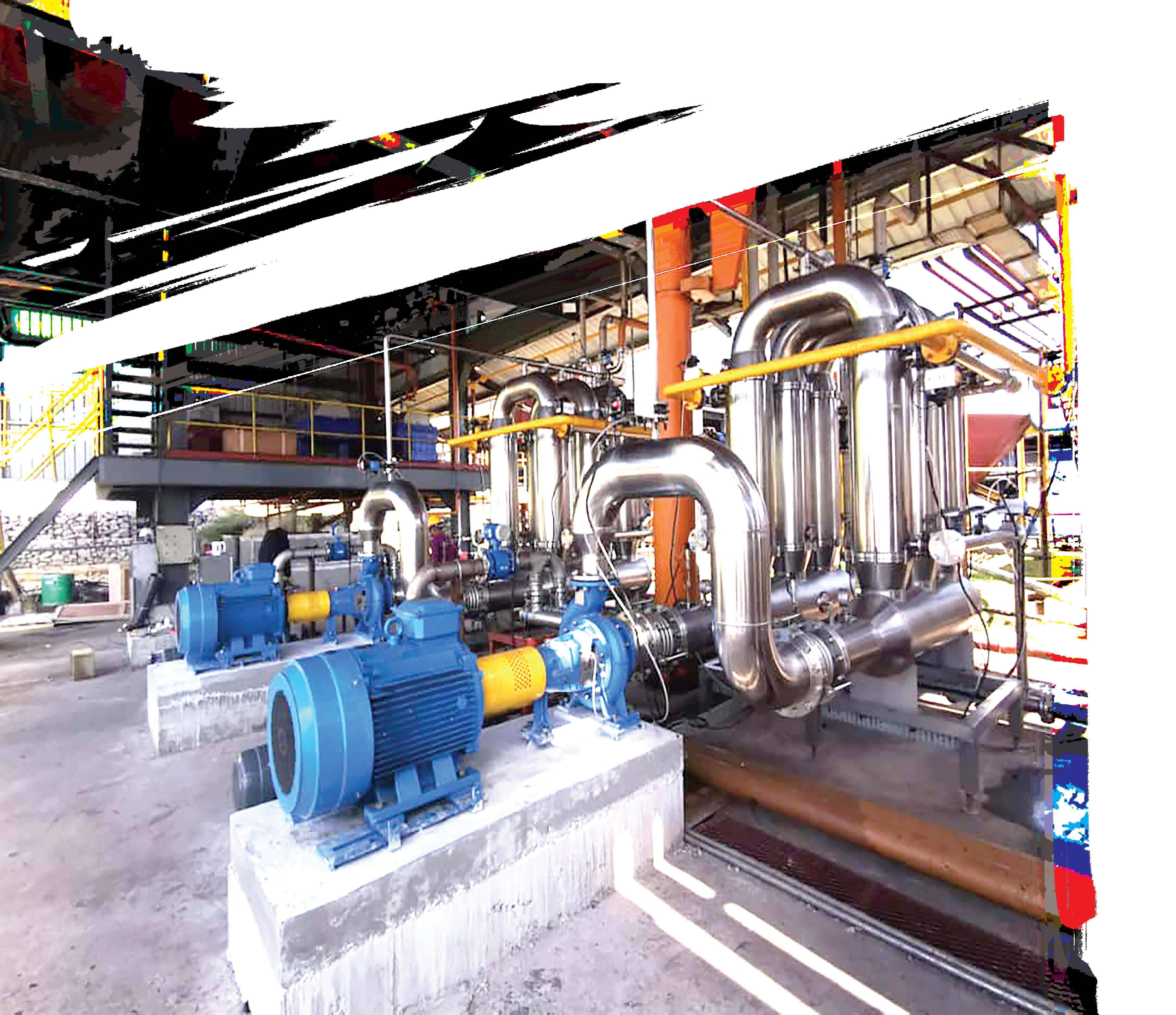













PRESIDEN JOKOWI MERESMIKAN PABRIK
MINYAK KELAPA SAWIT YANG DIFINASIKAN
PERTAMA DI INDONESIA


PRESIDENT JOKOWI INAUGURATES FIRST REFINED PALM OIL FACTORY IN INDONESIA

















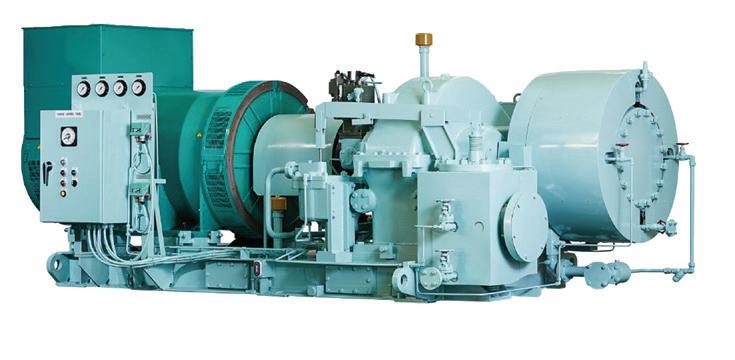















Managing Editor
Susan Tricia
Publications Manager
Amelia Lim amelia@fireworksid.com
Editorial Consultant
Kenny Yong
Content Editor
Kristina Yang
Media Executives
Paulina Shu
Veronica Anugrah
Graphic Designer
Felicia Zhang
Publisher
Welcome to the latest instalment of our bilingual magazine, where we delve into the dynamic realm of sustainable agriculture, cutting-edge innovations, and ecological stewardship both domestically and internationally.
Join us as we explore the intricate tapestry of agribusiness, presenting in-depth analyses and thought-provoking narratives from across the globe.
In a significant move towards sustainability, President Jokowi's inauguration of Indonesia's first refined palm oil factory underscores our commitment to sustainability, positioning the nation as a global leader in this field.
We extend our heartfelt gratitude to our esteemed contributors, valued advertisers, and dedicated readership.
Your unwavering support fuels our commitment to excellence, ensuring each issue is a testament to journalistic integrity and intellectual curiosity.
Prepare yourselves for an immersive journey through the realms of agricultural sustainability and technological ingenuity. Your experience with each page turned will be nothing short of enlightening and enriching.
Warm regards,
Susan Tricia

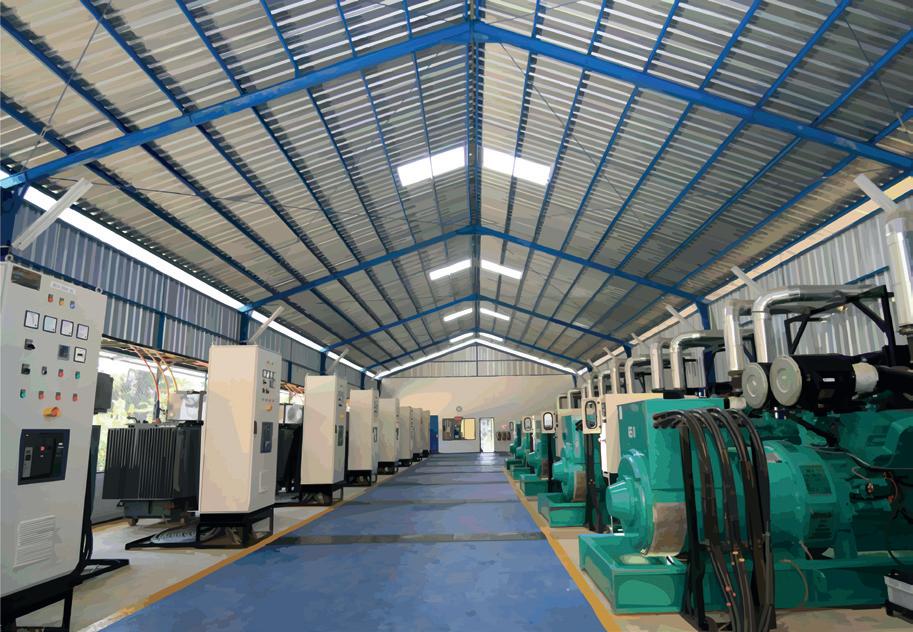
Incorporated in 1996 in Indonesia with the target to be one of the leading companies to provide distributed power in Indonesia, Kaltimex Energy was the pioneer company to obtain The First IPP license in the private sector to operate a 23 MW Power Plant, for a large textile company in Central Java. Since then, Kaltimex Energy has installed 500MW in Kalimantan, Sulawesi and Sumatera including for Rental (PLN), Palm Oil and Sugar sector.
and Transfer (B O O T ) basis or as an Independent Power Producer (IPP). Kaltimex Energy is also proud to ser ve the Palm Oil & Sugar Industr y in Indonesia, having installed more than 220 units of Siemens – Dresser Rand Steam Turbines, generating around 300 MW of electricity in total

With the development and the necessity to move towards greener and sustainable energy, Kaltimex Group is now actively developing Renewable Energy projects through the usage of Biogas,
implements international standards for Quality Management System, Environment Management System and Occupational Health & Safety Management System (HSE) to ensure that the ser vices delivered are best in the class

K altimex Energy represent the world’s leader in Steam Turbines; Dresser-Rand (A Siemens owned business), for the non- oil & gas market of Indonesia.Dresser-Rand has one of the most comprehensive steam turbine selections in the industr y and provide solutions for paper mills, steel, sugar, district energy, marine and palm oil Applications include combined c ycle, cogeneration, combined heat and power (CHP), biomass, and waste -to- energy K altimex Energy is proud of the over 200 units of Siemens Dresser-Rand Steam Turbines it has successfully pack aged, installed & commissioned across Indonesia.

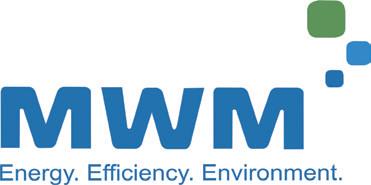
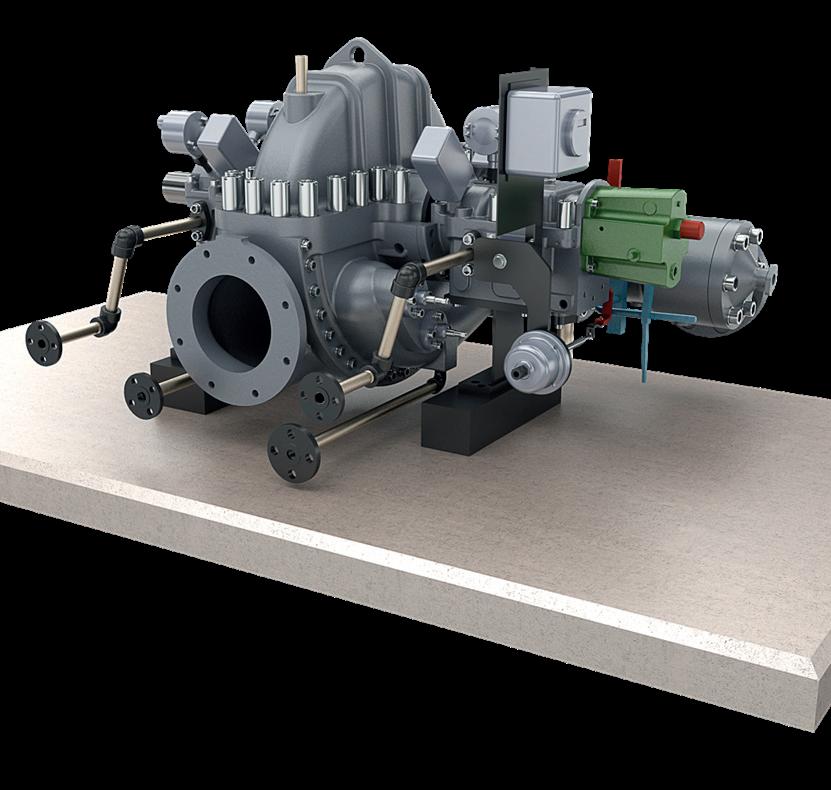
Range from 400 kW to 4,500 kW. In this way, it is possible to set up power plants with an output of up to
MWM's installations in Indonesia have reached more than 420 MW, spread across the countr y The amount has given a clear message that MWM's brand is proven and well accepted in Indonesia.

As a Total Power Solutions company, we have a higher calling to develop power plants from renewable energy sources, such as Municipal Solid Waste, Agricultural Waste and any other Organic or Inorganic Waste. K altimex Energy is proud to announce that we have recently entered into an exclusive agreement with Wabio Technologie, GmbH to develop Biogas Plants
The Biogas after going through a biogas desulphurization process could be directly to fed to Gas Engines to generate electricity

PT. K ALTIMEX ENERGY
Menara Kar ya Building 19th Floor, Unit G-H Jl. HR. Rasuna Said Blok X-5 Kav. 1-2 Jakar ta 12950 INDONESIA
Phone : +62.21 5794.4600 (hunting)
Fax : +62.21 5794.4609/10
: kaltimex@kaltimex.co.id
Email Website : https://www.kaltimex-energy.com
Indonesia


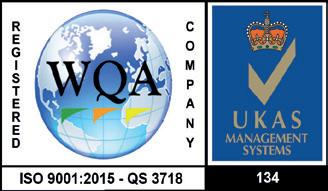

Indonesia: pendekatan yurisdiksi mendorong kelapa sawit berkelanjutan
Indonesia: jurisdictional approach helps drive sustainable palm oil
Presiden jokowi meresmikan pabrik minyak kelapa sawit yang difinasikan pertama di indonesia
President jokowi inaugurates first refined palm oil factory in indonesia
Indonesia dan Malaysia menilai EUDR sebagai merugikan ekspor
Indonesia and Malaysia see EUDR as Detrimental to exports
WTO menemukan kesalahan dalam langkah Uni Eropa melawan bahan bakar bio minyak kelapa sawit : Malaysia
WTO finds fault in EU move against palm oil biofuel : Malaysia
Malaysia melihat permintaan minyak kelapa sawit yang kuat dari India dan China tahun ini
Malaysia sees strong palm oil demand from India and China this year
Pertumbuhan terlihat dalam Industri minyak kelapa sawit Malaysia tahun ini karena pandangan yang positif - ketua bursa
Growth seen in Malaysian palm oil industry this year due to positive outlook - bursa chairman
Minyak kelapa sawit dan perangkat lunak SAP membawa harapan baru bagi petani Uganda
Palm oil and Sap software give Ugandan farmers new hope
Pemerintahan Marape berkomitmen untuk memperkuat industri kelapa sawit PNG dengan intervensi k3.5 juta
Marape government commits to strengthening PNG’s oil palm industry with K3.5 million intervention
Investasi besar dalam Industri kelapa sawit dapat
mengubah ekonomi Ghana - Paul Amaning
Massive oil palm investment can transform Ghana’s economy - Paul Amaning
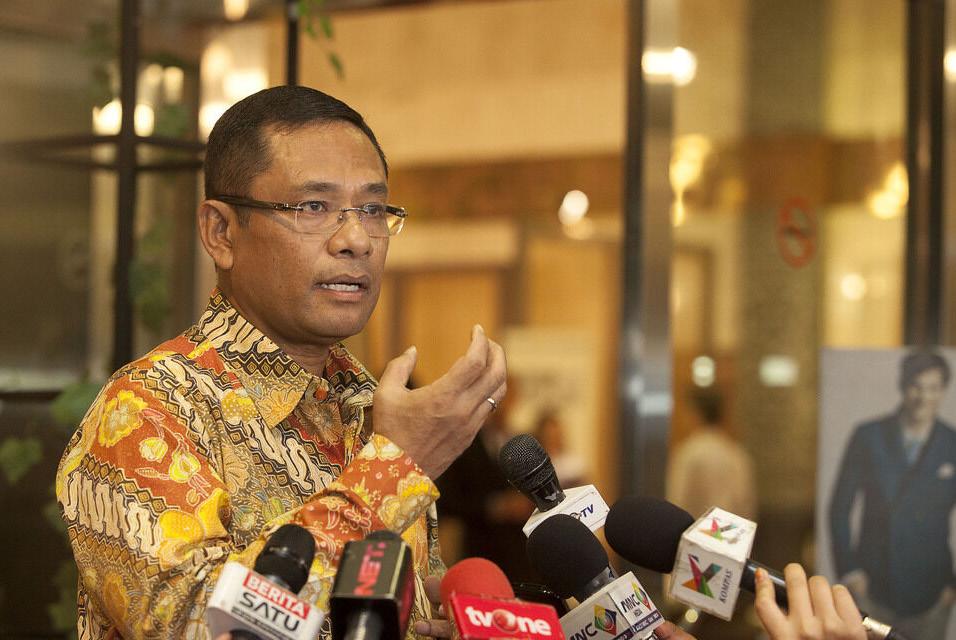

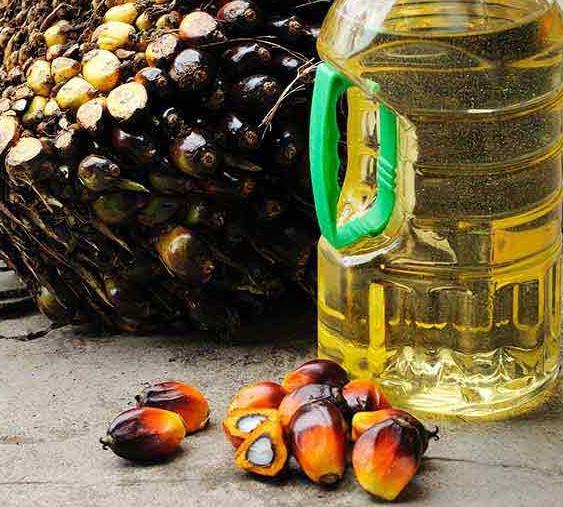
29 (BHS) : (ENG) :
Visi : teknologi blockchain untuk sektor kelapa sawit Indonesia
Vision : Blockchain technology for Indonesia’s palm oil sector
34 (BHS) : (ENG) :
ISPO untuk meningkatkan tingkat daya saing minyak kelapa sawit?
ISPO to leverage palm oil competitiveness level?
39 (BHS) : (ENG) :
Konteks adalah kunci untuk menjamin kelapa sawit
berkelanjutan, kata perwakilan regional Indonesia
Context is key to securing sustainable palm oil, say Indonesia’s regional REPS



42 (BHS) : (ENG) :
Membagikan rahasia minyak kelapa sawit yang ramah lingkungan
Sharing the secrets of greener palm oil
46 (BHS) : (ENG) :
MPOB mengembangkan 714 teknologi untuk industri kelapa sawit, 33% terkomersialisasi
MPOB develops 714 technologies for oil palm industry, 33% commercialised

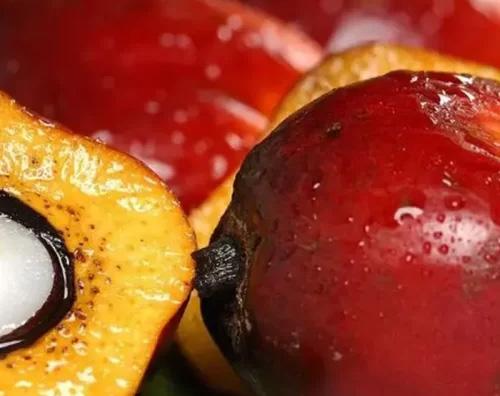

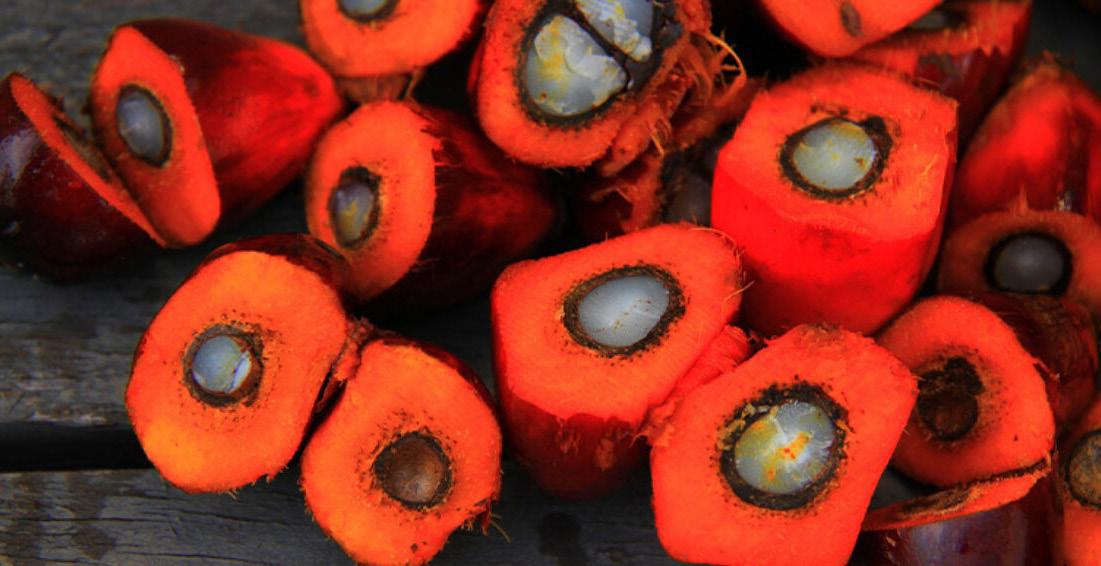
JAKARTA, Indonesia menunda rencana penawaran umum perdana (IPO) produsen minyak kelapa sawit PalmCo, kata seorang pejabat dari induknya, grup pertanian negara Perkebunan Nusantara (PTPN) III, pada hari Rabu.
Kementerian Badan Usaha Milik Negara Indonesia, yang mengawasi perusahaan itu, mengatakan pada bulan Juli tahun lalu bahwa PalmCo akan meluncurkan IPO, yang akan digunakan untuk memperluas kapasitas pengolahan. Sumber mengatakan kepada Reuters bahwa IPO tersebut dapat mengumpulkan sekitar $500 juta.
Bambang Agustian, sekretaris korporat PTPN, mengatakan kepada Reuters bahwa IPO akan ditunda, mengutip ketidakpastian pasar tetapi tidak memberikan rincian lebih lanjut tentang waktunya.
Sementara itu, PalmCo bertujuan untuk memulai konstruksi tahun ini dari pabrik biodieselnya, yang diharapkan memiliki kapasitas 443.000 ton metrik per tahun pada tahun 2026, kata CEO PalmCo Jatmiko Krisna Santosa. “Kami telah memilih teknologi dan kami hampir memutuskan kontraktor. Hampir siap,” kata Jatmiko kepada wartawan, tanpa memberikan rincian tentang berapa biaya proyek tersebut.
Jatmiko mengatakan PalmCo juga berencana untuk mengoperasikan pabrik minyak goreng baru tahun ini, dan berencana menambahkan dua fasilitas produksi minyak goreng lainnya dalam dua tahun mendatang.
JAKARTA, Indonesia has delayed plans for an initial public offering (IPO) of palm oil producer PalmCo, an official from its parent, state agricultural group Perkebunan Nusantara (PTPN) III, said on Wednesday.
Indonesia’s ministry for state-owned enterprises, which oversees the company, said in July last year that PalmCo would launch an IPO, which would be used to expand refining capacity. Sources told Reuters the IPO could raise about $500 million.
Bambang Agustian, PTPN corporate secretary, told Reuters the IPO would be delayed, citing market uncertainty but gave no further details on the timing.
Meanwhile, PalmCo aims to start construction this year of its biodiesel plant, which is expected to have 443,000 metric tons per year capacity by 2026, PalmCo CEO Jatmiko Krisna Santosa said. “We have chosen the technology and we are near a decision for the contractor. It’s almost ready,” Jatmiko told reporters, without providing details on how much the project will cost.
Jatmiko said PalmCo also expects to commission a new cooking oil plant this year, and seeks to add two more cooking oil production facilities in the next two years.
MANTAN MENTERI PERINDUSTRIAN MEMBERIKAN
PIDATO TENTANG HILIRISASI INDUSTRI MINYAK
KELAPA SAWIT PADA SESUAI PROMOSI DOKTORAL
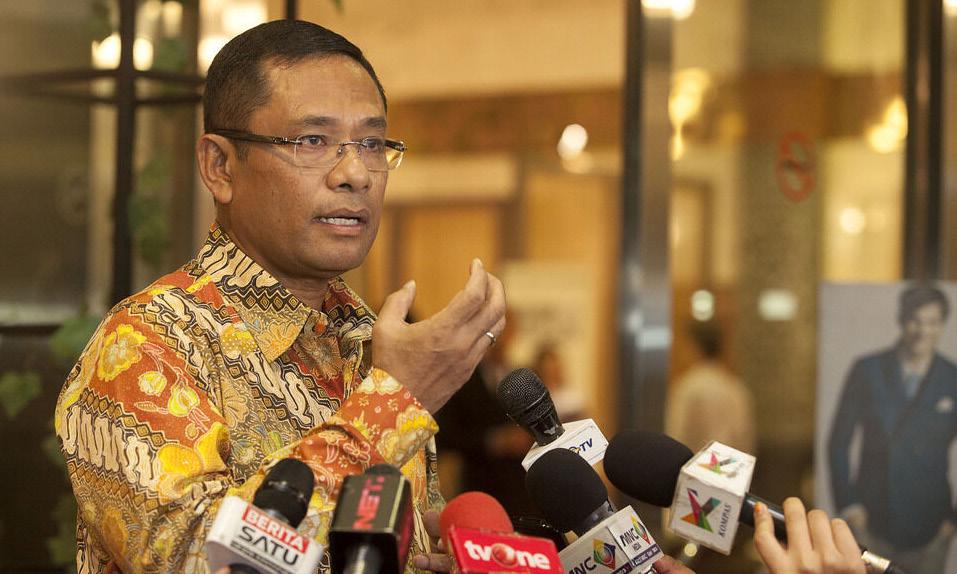
Saleh Husin, Menteri Perindustrian Indonesia untuk periode 2014-2016, yang juga merupakan Ketua Dewan Pembina (MWA) Universitas Indonesia untuk periode 2019-2023, menerima gelar doktor dari Sekolah Studi Strategis dan Global (SKSG) UI. Dia berhasil mempertahankan disertasinya dan mencapai GPA summa cum laude sebesar 3.96. Sesinya dipimpin oleh Direktur SKSG UI, Athor Subroto, S.E., M.M., M.A., Ph.D., dengan Prof. Dr. Chandra Wijaya, M.Si., M.M. sebagai Promotor, Dr. Drs. A. Hanief Saha Ghafur, M.S. dan TM Zakir Machmud, Ph.D. sebagai Co-Promotor.
Tim penguji terdiri dari Dr. Fibria Indriati Dwi Liestiawati, S.Sos., M.Sc.; Muliadi Widjaja, Ph.D; Mohamad Dian Revindo, Ph.D; Muhammad Syahroni Rofii, S.H.I., M.A., Ph.D. Promosi doktor diadakan di Makara Art Center UI dan dihadiri oleh
Wakil Presiden Republik Indonesia untuk periode 2004-2009 dan 2014-2019, Dr. H. Muhammad Jusuf Kalla; Ketua Dewan Penasihat Presiden, Jenderal TNI H. Wiranto; Hakim Mahkamah Konstitusi, Dr. Arsil Sani dan Wakil Ketua Majelis Permusyawaratan Rakyat (MPR), termasuk Dr. Lestari Moerdijat, S.S., M.M; Dr. H. Jazilul Fawaid, SQ., M.A dan Prof. Dr. Sjarifuddin Hasan., M.M., M.B.A. Sementara itu, dari UI, antara lain, Ketua Dewan Pembina, Dr. (HC) Noni Purnomo., B.Eng; Rektor Bidang Akademik dan Kemahasiswaan, Prof.Dr. rer Nat Abdul Haris
Wakil Rektor Bidang Sumber Daya Manusia dan Aset, Prof. Dr. Ir. Dedi Priadi, DEA dan Rektor UI untuk periode 2014-2019, Prof. Dr. Ir. Muhammad Anis, M. Met.
Saleh Husin mengangkat topik “Mengalirkan Industri Kelapa Sawit untuk Memperkuat Ekonomi Nasional dan Meningkatkan Posisi Tawar Indonesia dalam Perdagangan Dunia” sebagai studi disertasinya. Dia percaya bahwa Indonesia adalah produsen dan konsumen kelapa sawit terbesar di dunia. Kelapa sawit juga merupakan komoditas ekspor utama bagi Indonesia. Nilai ekspor kelapa sawit pada tahun 2021 adalah US$ 28.606 juta, meningkat 55,10% dibandingkan tahun 2020. Kenaikan ini berdampak pada ketahanan nasional Indonesia secara ekonomi dan global.
Namun, posisi tawar Indonesia dalam perdagangan kelapa sawit internasional masih relatif lemah. Meskipun Indonesia menghasilkan banyak minyak kelapa sawit mentah, harga patokan ditentukan oleh bursa Malaysia dan Eropa (Rotterdam). Selain itu, Indonesia menghadapi banyak tantangan untuk bersaing di pasar global, seperti produktivitas kelapa sawit nasional yang rendah dan kampanye anti-minyak sawit dari negara-negara Eropa. Oleh karena itu, strategi yang tepat diperlukan untuk meningkatkan posisi tawarnya di pasar global dan industri hilir kelapa sawit.
Hilirisasi adalah proses pengolahan bahan baku menjadi barang jadi yang siap pakai. Dalam industri kelapa sawit, hilir mengacu pada pengolahan dan penyulingan minyak kelapa sawit mentah (CPO) menjadi produk bernilai lebih tinggi, seperti minyak kelapa sawit yang dimurnikan, diputihkan, dan dioleskan. Pengolahan ini adalah tahap terakhir dari rantai pasok kelapa sawit sebelum produk dijual kepada pengguna akhir. Segmen industri hilir kelapa sawit mencakup produk yang digunakan dalam industri makanan, seperti minyak goreng, margarin, dan shortening, dan produk non-pangan, seperti sabun, deterjen, dan biodiesel.
Hilirisasi industri kelapa sawit dapat memperkuat ekonomi nasional dengan meningkatkan nilai tambah produk ekspor dan mengurangi impor. Hilirisasi domestik membutuhkan lebih banyak produk hulu, sehingga ekspor produk hulu dapat berkurang. Simulasi yang dilakukan dalam disertasi ini menunjukkan bahwa jika ekspor produk hulu berkurang 5% dan ekspor produk hilir meningkat 15%, diperkirakan devisa Indonesia akan meningkat sebesar 7 miliar USD per tahun. Dengan demikian, Produk Domestik Bruto, indikator pertumbuhan ekonomi, juga akan meningkat.
Selain itu, hilirisasi dapat meningkatkan produktivitas dan meningkatkan petani kelapa sawit mandiri. Petani kelapa sawit mandiri mengendalikan 42% lahan kelapa sawit di Indonesia, tetapi produksi mereka hanya 2-3 ton per hektar
per tahun, yang masih jauh dari perkebunan besar, yang mencapai 5-7 ton per tahun. Kualitas tandan buah segar (TBS) yang dihasilkan juga lebih rendah, sehingga harga yang dibayarkan kepada petani lebih rendah. Oleh karena itu, hilirisasi diperlukan agar petani dapat menghasilkan minyak kelapa sawit dengan standar yang lebih tinggi.
“Pupuk subsidi, bimbingan teknis, dan bantuan lainnya perlu diberikan kepada petani mandiri agar mereka dapat menghasilkan produk dengan kualitas sama dengan yang dihasilkan oleh petani plasma dan perkebunan besar dan menjualnya dengan harga tinggi, sama seperti tanaman kelapa sawit dari perkebunan besar,” kata Saleh.
Hilirisasi industri kelapa sawit juga dapat meningkatkan posisi tawar Indonesia dalam perdagangan dunia. Menurut Saleh, pembeli minyak kelapa sawit Indonesia terdiri dari dua kelompok: pembeli yang memenuhi kebutuhan domestik, seperti India dan Cina, dan pembeli yang menjual kembali ke negara lain, seperti Malaysia dan Belanda. Negara-negara yang menjual kembali produk kelapa sawit Indonesia mendapatkan keuntungan besar.
Industri hilir kelapa sawit di Indonesia harus dilanjutkan dengan Rencana Induk Pembangunan Industri Nasional 2015–2035, beserta peraturan-peraturan yang menguraikannya. Implementasi program ini telah dipercepat agar Indonesia dapat membangun industri-industri baru yang menggunakan kelapa sawit sebagai bahan baku utama, seperti industri kosmetik, sabun, cokelat, dan biodiesel.
Saleh mengatakan, “Hilirisasi akan berhasil jika terdapat regulasi ekspor kelapa sawit yang sesuai dan dukungan perpajakan. Instrumen diperlukan untuk mengurangi ekspor produk hulu dan meningkatkan ekspor produk hilir kelapa sawit. Indonesia juga perlu meningkatkan kerjasama dengan negara-negara produsen kelapa sawit, terutama di ASEAN, terkait penelitian dan pengembangan produk hilir kelapa sawit. Investor yang memproduksi produk turunan kelapa sawit dapat diundang untuk mendirikan pabrik di Indonesia dan mengekspor produk-produk tersebut, asalkan investasi ini lebih menguntungkan.”
Selain itu, program hilirisasi akan berjalan jika didukung oleh kesuksesan Bursa CPO Indonesia yang diluncurkan pada 13 Oktober. Pemerintah perlu memberikan insentif bagi perusahaan kelapa sawit yang melakukan transaksi di Bursa CPO Indonesia agar penjual dan pembeli kelapa sawit nyaman melakukan transaksi di lembaga ini dan bersedia memindahkan transaksi mereka dari bursa Malaysia dan Rotterdam.
Bursa CPO Indonesia harus mampu memberikan manfaat bagi petani kelapa sawit. Melalui transparansi harga dan transaksi, pengusaha tidak dapat lagi menekan harga FFB, dan petani dapat menjual FFB mereka di bursa ini. Penggunaan sukses bursa CPO untuk keuntungan petani bergantung pada kemampuan mereka untuk mengelola risiko dan berpartisipasi dalam pasar. Oleh karena itu, pendidikan dan pelatihan adalah komponen penting yang harus disediakan oleh pemerintah.
FORMER MINISTER OF INDUSTRY DELIVERED SPEECH ON DOWNSTREAMING OF THE PALM OIL INDUSTRY AT DOCTORAL
Saleh Husin, Minister of Industry of Indonesia for the 2014–2016 period, who is also Chair of the Board of Trustees (MWA) of Universitas Indonesia for the 2019–2023 period, received a doctorate from the School of Strategic and Global Studies (SKSG) UI. He successfully defended his dissertation and achieved a summa cum laude GPA of 3.96. The promotion session was chaired by the Director of SKSG UI, Athor Subroto, S.E., M.M., M.A., Ph.D., with Prof. Dr. Chandra Wijaya, M.Si., M.M. as Promoter, Dr. Drs. A. Hanief Saha Ghafur, M.S. and TM Zakir Machmud, Ph.D. as Co-Promoter.
The examining team consists of Dr. Fibria Indriati Dwi Liestiawati, S.Sos., M.Sc. Muliadi Widjaja, Ph.D; Mohamad Dian Revindo, Ph.D Muhammad Syahroni Rofii, S.H.I., M.A., Ph.D. The doctoral promotion held at Makara Art Center UI and was attended by the Vice President of the Republic of Indonesia for the 2004-2009 and 2014-2019 periods, Dr. H. Muhammad Jusuf Kalla Chairman of the Presidential Advisory Council, TNI General H. Wiranto Constitutional Court Judge, Dr. Arsil Sani and the Deputy Chairmen of the People’s Consultative Assembly (MPR), including Dr. Lestari Moerdijat, S.S., M.M Dr. H. Jazilul Fawaid, SQ., M.A and Prof. Dr. Sjarifuddin Hasan., M.M., M.B.A. Meanwhile, from UI, among others, Chairman of the Board of Trustees, Dr. (HC) Noni Purnomo., B.Eng Vice Chancellor for Academic and Student Affairs, Prof. Dr. rer Nat Abdul Haris Deputy Chancellor for Human Resources and Assets, Prof. Dr. Ir. Dedi Priadi, DEA and the Chancellor of UI for the 2014-2019 period, Prof. Dr. Ir. Muhammad Anis, M. Met.
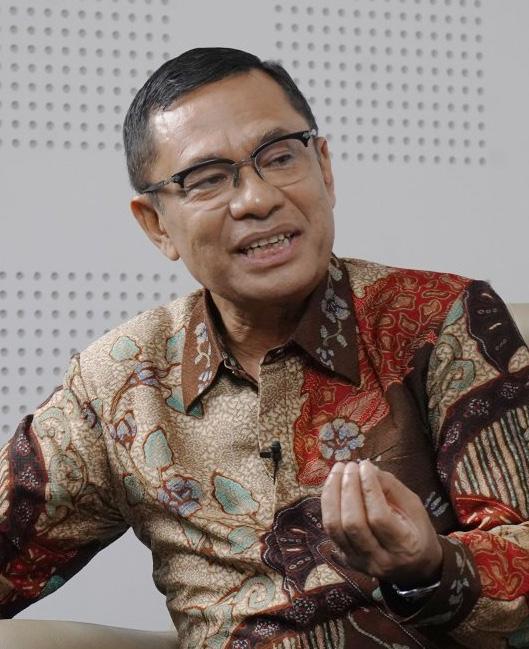
Saleh Husin raised the topic “Downstreaming the Palm Oil Industry to Strengthen the National Economy and Improve Indonesia’s Bargaining Position in World Trade” as his dissertation study. He believes that Indonesia is the world’s largest producer and consumer of palm oil. Palm oil is also the main export commodity for Indonesia.
The export value of palm oil in 2021 was US$ 28,606 million, an increase of 55.10% compared to 2020. This increase has an impact on Indonesia’s national resilience economically and globally.
Unfortunately, Indonesia’s bargaining position in the international palm oil trade is still relatively weak. Even though Indonesia produces a lot of crude palm oil, the benchmark price is determined by the Malaysian and European exchanges (Rotterdam). Besides, Indonesia faces many challenges to compete in the global market, such as low national palm oil productivity and anti-palm oil campaigns from European countries. Therefore, the right strategy is needed to improve its bargaining position in the global market and the palm oil industry downstream.
Downstreaming is the process of processing raw materials into ready-to-use goods. In the palm oil industry, downstream refers to the processing and refining of crude palm oil (CPO) into higher-value products, such as refined, bleached, and deodorized palm oil.

This processing is the final stage of the palm oil supply chain before the product is sold to end users. The palm oil downstream industry segment includes products used in the food industry, such as cooking oil, margarine, and shortening, and non-food products, such as soap, detergent, and biodiesel.
Downstreaming the palm oil industry can strengthen the national economy by increasing the added value of export products and reducing imports. Domestic downstreaming requires more upstream products, so exports of upstream products can decrease. The simulations carried out in this dissertation show that if exports of upstream products decrease by 5% and exports of downstream products increase by 15%, it is estimated that Indonesia’s foreign exchange will increase by 7 billion USD per year. Thus, the Gross Domestic Product, an indicator of economic growth, will also increase.
Apart from that, downstream can improve productivity and improve independent palm oil farmers. Independent oil palm farmers control 42% of oil palm land in Indonesia, but their production is only 2-3 tons per hectare per year, which is still far from large plantations, which reach 5-7 tons per year. The quality of the fresh fruit bunches (FFB) produced is also lower, so the prices paid to farmers are lower. Therefore, downstream is needed so farmers can make palm oil with higher standards.

“Fertilizer subsidies, technical guidance, and other assistance need to be provided to independent farmers so they can produce products of the same quality as those produced by plasma farmers and large plantations and sell them at high prices, the same as oil palm plants from large plantations.,” said Saleh.
Downstreaming the palm oil industry can also improve Indonesia’s bargaining position in world trade. According to Saleh, buyers of Indonesian palm oil consist of two groups buyers who meet domestic needs, such as India and China, and buyers who resell to other countries, such as Malaysia and the Netherlands. Countries that resell Indonesian palm oil products make huge profits. With downstream, Indonesia can reduce exports to palm oil trading countries without reducing national production.
The downstream of the palm oil industry in Indonesia must continue with the 2015–2035 National Industrial Development Master Plan, along with its elaboration regulations. The implementation of this program has been accelerated so Indonesia can build new industries that use palm oil as the main raw material, such as the cosmetics, soap, chocolate, and biodiesel industries.
Saleh said, “Downstreaming will be successful if appropriate palm oil export regulations and taxation support it. An instrument is needed to reduce upstream product exports and increase downstream palm oil product exports. Indonesia also needs to increase cooperation with palm oil-producing countries, especially in ASEAN, regarding research and development of downstream palm oil products. Investors who produce palm oil derivative products can be invited to set up factories in Indonesia and export these products, provided that this investment is more profitable.”
Moreover, the downstream program will run if it is supported by the success of the Indonesian CPO Exchange that was launched on October 13. The government needs to provide incentives for palm oil companies that transact on the Indonesian CPO Exchange so that palm oil sellers and buyers are comfortable transacting at this institution and are willing to move their transactions from the Malaysian and Rotterdam exchanges.
The Indonesian CPO Exchange must be able to provide benefits for palm oil farmers. Through price and transaction transparency, entrepreneurs can no longer suppress the price of FFB, and farmers can sell their FFB on this exchange. The successful use of the CPO exchange for the benefit of farmers depends on their ability to manage risks and participate in the market. Therefore, education and training are important components that the government must provide.
Presiden Joko “Jokowi” Widodo Memimpin Rapat Kabinet Terbatas tentang Kebijakan Terkait Minyak Kelapa Sawit.
Salah satu sorotan dari pertemuan tersebut adalah implementasi program replantasi minyak kelapa sawit. “Realisasi replantasi minyak kelapa sawit yang telah dicapai adalah 30 persen dari target 180.000 [hektar]. Salah satu hambatan adalah regulasi. Presiden telah memerintahkan kami untuk meninjau Peraturan Menteri Pertanian, khususnya ketentuan mengenai sertifikat tanah dan rekomendasi dari Kementerian Lingkungan Hidup dan Kehutanan untuk replantasi,” kata Menteri Koordinator Bidang Perekonomian Airlangga Hartarto setelah pertemuan tersebut.
Airlangga mengatakan bahwa peserta pertemuan juga membahas peningkatan dana replantasi dari Rp30 juta menjadi Rp60 juta per hektar. Terkait hambatan bagi petani kecil, Airlangga menegaskan komitmen Pemerintah untuk mempercepat implementasi Undang-Undang Cipta Kerja untuk mengatasi masalah tersebut.

Airlangga juga mengatakan bahwa Pemerintah memiliki rencana untuk memerintahkan Badan Pengelola Dana Perkebunan Kelapa Sawit (BPDPKS) untuk menyediakan beasiswa bagi keluarga petani, sebagai bagian dari langkah-langkah Pemerintah untuk meningkatkan kesejahteraan petani kecil.
Airlangga juga mengatakan bahwa pertemuan tersebut akan diikuti oleh tindakan konkret untuk menyelesaikan masalah yang ada.

President Joko “Jokowi” Widodo chaired a limited cabinet meeting on policies regarding palm oil.
One of the highlights of the meeting was the implementation of palm oil replanting program. “The realization of palm oil replanting that has been achieved is 30 percent of the targeted 180,000 [hectares]. One of the obstacles is regulations. The President has ordered us to review Regulation of Minister of Agriculture, particularly the provisions regarding land certificate and recommendation from Ministry of the Environment and Forestry for the replanting,” Coordinating Minister for Economic Affairs Airlangga Hartarto said after the meeting.
Airlangga said that the participants of the meeting also discussed the increase of the replanting fund from Rp30 million to Rp60 million per hectare. Regarding the obstacle for smallholder farmers, Airlangga reaffirmed the Government’s commitment to speed up the implementation of Job Creation Law to address the problems.
Airlangga further said that the Government has a plan to order the Palm Oil Plantation Fund Management Agency (BPDPKS) to provide scholarships for planter families, as part of the Government’s measures to improve the welfare of smallholder planters.
Airlangga further said that the meeting would be followed up by concrete actions to resolve the existing problems.


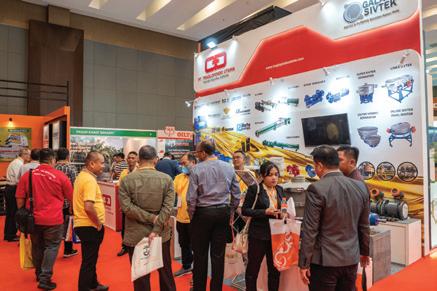
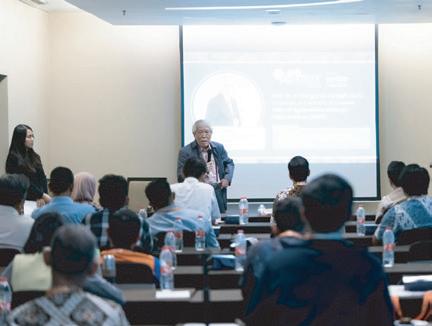
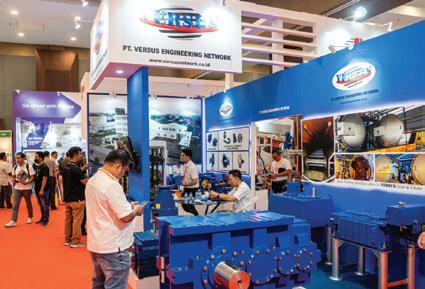

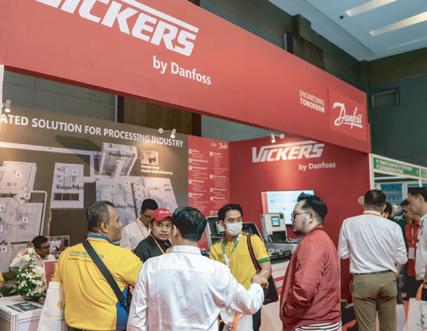
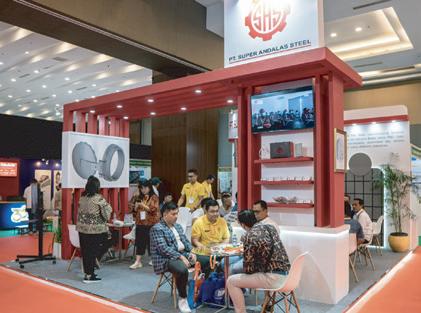
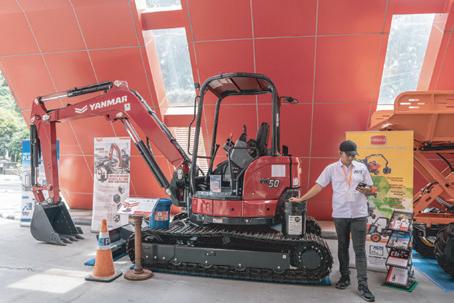

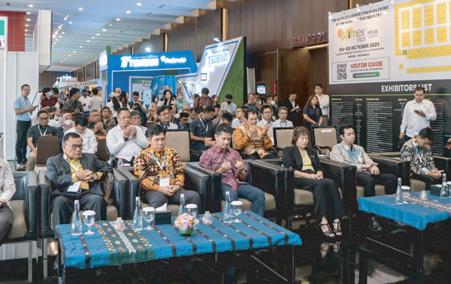


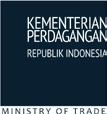



Sebuah pendekatan yurisdiksi (JA) memiliki potensi untuk meningkatkan rencana tindakan distrik dan nasional Indonesia tentang keberlanjutan perkebunan kelapa sawit, menurut penelitian baru yang dilakukan oleh Pusat Penelitian Kehutanan Internasional dan Agroforestri Dunia (CIFOR-ICRAF) di empat distrik di Sumatera dan Kalimantan. Pekerjaan ini juga menekankan keuntungan melibatkan pemerintah daerah dalam memimpin penerapan riset dan pengembangan.
Mengingat peran penting minyak kelapa sawit dalam ekonomi Indonesia, yang meliputi produsen skala besar dan kecil, mengadopsi JA dapat membantu mengurangi dampak buruk kegiatan perkebunan kelapa sawit, meningkatkan tata kelola hutan alam, mengurangi deforestasi, dan meningkatkan produksi tandan buah segar untuk dijual. Inisiatif JA di Indonesia melibatkan pelaku secara vertikal di berbagai tingkatan, dan secara horizontal melintasi yurisdiksi pada tingkat yang sama.
Selama lokakarya dan dialog nasional yang diselenggarakan oleh Forum Lanskap Global (GLF) pada 12 Oktober 2023 di kantor pusat CIFOR-ICRAF di Bogor, ilmuwan senior Herry Purnomo mencatat bahwa hanya 21 persen minyak kelapa sawit di Indonesia yang bersertifikat oleh Roundtable on Sustainable Palm Oil (RSPO), dan bahwa JA dapat membantu meningkatkan angka ini. “JA dapat mengatasi beberapa isu kunci yang terkait dengan pendekatan berbasis proyek, termasuk kebocoran, tambahan, kekekalan, jaminan sosial, pengecualian sertifikasi, eksternalitas, dan pembagian manfaat,” kata Purnomo. Lebih lanjut, dia mengatakan bahwa pendekatan tersebut selaras dengan Pasal 28, Ayat 33 UndangUndang Dasar Indonesia, yang menjamin bahwa sumber daya alam dimanfaatkan untuk kemakmuran rakyat.
Dalam program yurisdiksi (JPs), semua pemangku kepentingan secara kolaboratif merancang teori perubahan (ToC), teori aksi (ToA), dan kerangka pemantauan dan evaluasi (MEF). Pelajaran yang dipelajari bervariasi di seluruh distrik. Seperti yang dijelaskan oleh ekolog lanskap senior CIFOR-ICRAF, Sonya Dewi, “JA dapat meningkatkan tata kelola secara keseluruhan berdasarkan prinsip inklusivitas, integrasi, dan informativitas.”
Penelitian ini difokuskan pada empat distrik: Pelalawan (Provinsi Riau), Sintang (Provinsi Kalimantan Barat), Pulang Pisau (Provinsi Kalimantan Tengah), dan Kutai Kartanegara (Provinsi Kalimantan Timur). Kriteria pemilihan distrik termasuk luas perkebunan kelapa sawit, luas hutan, risiko deforestasi, luas lahan gambut, kemajuan JA, dan pengalaman CIFOR-ICRAF di sana. Inisiatif ini melibatkan 43 organisasi bekerja sama dengan pemerintah, masyarakat sipil, dan produsen.
Purnomo membagikan temuan utama, menekankan bahwa JA dan ToC memfasilitasi pendengaran suara dan kepentingan dari beberapa pemangku kepentingan, memahami konteks dan tantangan lokal, menentukan tujuan bersama, mengartikulasikan perubahan, meningkatkan partisipasi, dan mendorong kolaborasi. “JA bertujuan untuk menangani masalah sosial, produksi, legalitas, dan lingkungan, mencakup masalah tenurial, tantangan rantai pasokan, konflik lahan, dan tumpang tindih penggunaan lahan dan kepentingan,” katanya.
Ade Muhammad Iswadi, sekretaris jenderal Forum Komunikasi Masyarakat Sintang (FKMS), menjelaskan proses ToC, ToA, dan MEF dalam JPs, yang berfokus pada penguatan data, peningkatan kapasitas petani, tata kelola lingkungan, penanganan sengketa lahan, implementasi sertifikasi Indonesian Sustainable Palm Oil System (ISPO), dan akses pasar produk kelapa sawit. Tantangan di Sintang termasuk kompetensi sumber daya manusia, kelemahan kemitraan, pembagian keuntungan kecil, jalur distribusi yang tidak jelas untuk produk kelapa sawit, dan kesulitan dalam menjamin komitmen investor. Iswadi menekankan urgensi pemberdayaan sumber daya manusia, mengingat pengaruh petani kecil terhadap kesuksesan lebih luas.
Hendrik Segah, seorang peneliti senior di Universitas Palangkaraya, menjelaskan implementasi JA di Distrik Kutai Kartanegara (Kukar), termasuk tujuannya untuk mengurangi penebangan lahan dan membangun keanekaragaman hayati, meningkatkan manajemen rantai pasokan, dan meningkatkan mata pencaharian masyarakat yang tinggal di sekitar perkebunan.
Okto Yugo Setyo, wakil koordinator Jaringan Penyelamatan Hutan Riau (Jikalahari), menyoroti tantangan yang dialami di Distrik Pelalawan, termasuk kurangnya data tentang perkebunan kelapa sawit, koordinasi antara lembaga pemerintah, investor infrastruktur, akses modal bagi petani kecil, dan pemantauan serta tata kelola terhadap kepatuhan perusahaan terhadap hukum. “JP dirancang untuk memberikan solusi atas semua tantangan ini, seperti mengoptimalkan data petani kecil, meningkatkan literasi keuangan, mempercepat implementasi Kebijakan Satu Peta, dan sebagainya,” katanya. Proses ini melibatkan 12 pemangku kepentingan dari berbagai pihak, termasuk pemerintah, sektor swasta, petani skala kecil, dan masyarakat sipil. Forum Kelapa Sawit Berkelanjutan Indonesia (FoKSBI, Platform Kelapa Sawit Indonesia) merupakan motor penggerak untuk implementasi JA dalam konservasi hutan dan pengembangan komoditas yang berkelanjutan di distrik tersebut.
Di Pulang Pisau, FoKSBI juga membantu pencapaian tujuan keberlanjutan dengan menangani konflik tenurial, keterbatasan sumber daya manusia terampil, kendala keuangan, tekanan lingkungan, dan tantangan yang timbul dari kebijakan desentralisasi. Para pembahas setuju bahwa pencapaian tujuan JA membutuhkan pemerintah pusat untuk memberikan insentif kepada distrik. Penting juga untuk menyeimbangkan keuangan lokal dan nasional melalui pembagian keuntungan yang adil.
Marcello de Maria, seorang ahli dalam ilmu pengetahuan, kebijakan, dan pengambilan keputusan di Universitas Reading, memberikan perspektif komparatif dengan membagikan pengalaman dalam JA untuk keberlanjutan kedelai di Brasil. Tantangan yang dihadapi di Brasil sejalan dengan tantangan dalam sektor perkebunan kelapa sawit Indonesia, termasuk masalah kepemilikan lahan, kurangnya harmonisasi, dan aturan yang tidak sesuai untuk standar keberlanjutan. “Untuk harmonisasi dan integrasi, kita membutuhkan partisipasi, pengambilan keputusan demokratis, dan aturan serta tata kelola yang jelas yang mewakili semua pemangku kepentingan,” katanya.
Ajurisdictional approach (JA) has the potential to enhance Indonesia’s district and national action plans on palm oil plantation sustainability, according to new research conducted by the Center for International Forestry Research and World Agroforestry (CIFOR-ICRAF) in four districts across Sumatra and Kalimantan. The work also underscores the advantages of involving local governments in spearheading the application of research and development.
Given the significant role of palm oil in Indonesia’s economy, which encompasses large- and small-scale producers, adopting a JA can help to mitigate the adverse effects of palm plantation activities, enhance natural forest governance, curb deforestation, and boost the production of fresh fruit bunches for sale. The JA initiative in Indonesia engages actors vertically across different levels, and horizontally across jurisdictions at the same level.
During a national workshop and dialogue held by the Global Landscapes Forum (GLF) on October 12, 2023 at CIFOR -ICRAF’s head office in Bogor, senior scientist Herry Purnomo noted that only 21 percent of palm oil in Indonesia is certified by the Roundtable on Sustainable Palm Oil (RSPO), and that JAs could help to boost this figure. “JAs can address some of the key issues associated with a project-based approach, including leakage, additionality, permanence, social safeguards, certification exclusion, externality, and benefit sharing,” Purnomo said. Further, he said that the approach aligns well with Article 28, Paragraph 33 of the Indonesian Constitution, ensuring that natural resources are utilized for the prosperity of the people.
In jurisdictional programmes (JPs), all stakeholders collaboratively design the theory of change (ToC), theory of action (ToA), and monitoring and evaluation framework (MEF). Lessons learned vary across districts. As senior CIFOR-ICRAF landscape ecologist Sonya Dewi explained, “JAs can enhance overall governance based on principles of inclusivity, integration, and informativeness.”
The research focused on four districts Pelalawan (Riau Province), Sintang (West Kalimantan Province), Pulang Pisau (Central Kalimantan Province), and Kutai Kartanegara (East Kalimantan Province). Criteria for district selection included palm plantation area, forest area, deforestation risk, peatland area, JA progress, and CIFOR-ICRAF’s experience there. The initiative involved 43 organizations in collaboration with governments, civil society, and producers.
Purnomo shared key findings, highlighting that JAs and ToC facilitate accommodating the voices and interests of multiple stakeholders, understanding local contexts and challenges, defining shared goals, articulating change, improving participation, and fostering collaboration. “JAs aim to address social, production, legality, and environmental issues, encompassing tenurial problems, supply chain challenges, land conflicts, and overlapping land use and interests,” he said.
Ade Muhammad Iswadi, the general secretary of the Sintang Civil Society Communication Forum (FKMS), detailed the ToC, ToA, and MEF process in JPs, which focuses on data amplification, planters’ capacity building, environmental governance, land dispute handling, Indonesian Sustainable Palm Oil System (ISPO) certification implementation, and

palm product market access. Challenges in Sintang include human resource competence, partnership weaknesses, small profit sharing, unclear distribution paths for palm products, and difficulties securing investor commitments. Iswadi emphasized the urgency of human resource empowerment, given the influence of smallholder planters on broader success.
Hendrik Segah, a senior researcher at Palangkaraya University, outlined JA implementation in Kutai Kartanegara (Kukar) District, including its aim to reduce land-clearing and build biodiversity, boost supply chain management, and improve the livelihoods of people living around plantations.
Okto Yugo Setyo, vice coordinator of the Riau Forest Protection Network (Jikalahari), highlighted challenges experienced in Pelalawan District, which include a lack of: data on palm plantations, coordination between inter-governmental agencies, infrastructure investors, access to capital for small planters, and monitoring and governance on companies’ compliance with laws. “The JP is designed to bring solutions to all of these challenges, such as to optimize small planters’ data, improve financial literacy, hasten One Map Policy implementation, and so on,” he said. The process involves 12 stakeholders from across government, private sectors, small-scale farmers, and civil society. Forum Kelapa Sawit Berkelanjutan Indonesia (FoKSBI, The Indonesia Palm Oil Platform) is the driving force for the implementation of JA for forest conservation and sustainable commodity development in the district.
In Pulang Pisau, FoKSBI is also assisting in the achievement of sustainability goals by addressing tenurial conflicts, limitations in skilled human resources, financial constraints, environmental pressures, and challenges stemming from decentralization policies. Discussants agreed that achieving JA goals requires the central government to provide incentives for districts. It’s also important to balance local and national finances through fair profit-sharing.
Marcello de Maria, an expert in science, policy, and decision making at the University of Reading, provided a comparative perspective by sharing experiences in JA for soybean sustainability in Brazil. The challenges faced in Brazil resonated with those in Indonesia’s palm plantation sector, including land tenure issues, lack of harmonization, and inappropriate rules for sustainability standards. “For harmonization and integration, we need participation, democratic decision making, and clear rules and governance that represents all stakeholders,” he said.

PRESIDEN JOKOWI MERESMIKAN PABRIK MINYAK KELAPA SAWIT
YANG DIFINASIKAN PERTAMA DI INDONESIA
PRESIDENT JOKOWI INAUGURATES FIRST REFINED PALM OIL FACTORY IN INDONESIA
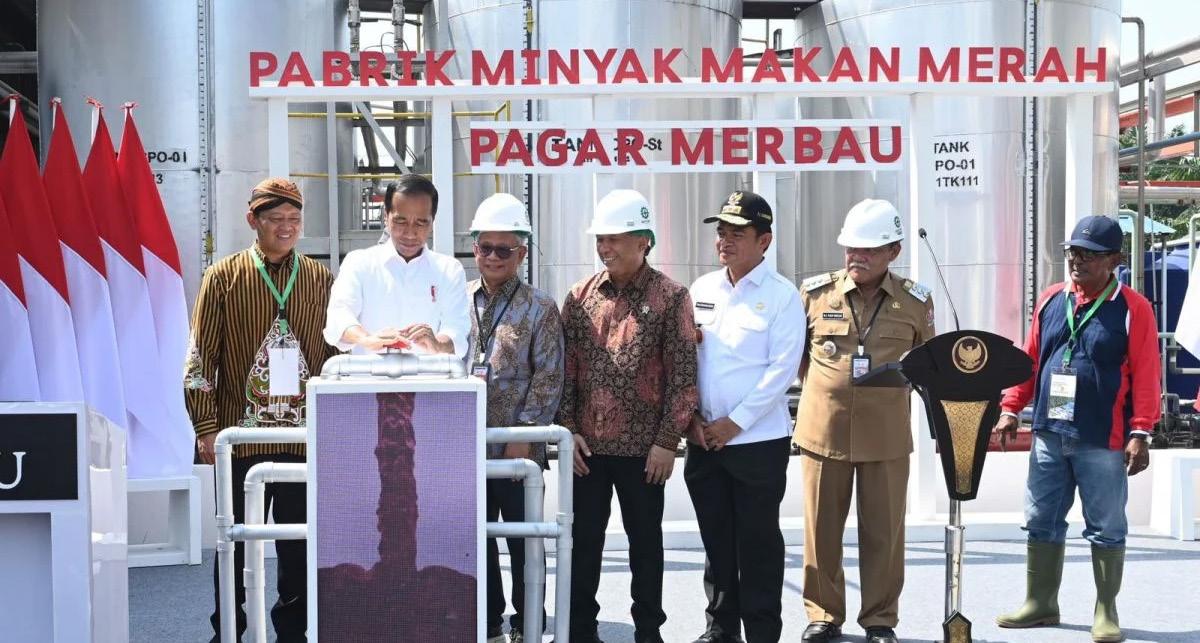
residen Joko Widodo, meresmikan pabrik minyak kelapa sawit difinasikan Pagar Merbau di Deli Serdang, Sumatera Utara. “Kami bertujuan untuk menghasilkan nilai tambah untuk produk dalam negeri. Untuk itu, kami telah membangun pabrik minyak kelapa sawit difinasikan pertama dan diharapkan dapat menghasilkan nilai tambah bagi petani kelapa sawit, terutama yang bergabung dalam koperasi. Kami berharap hal ini dapat mencegah fluktuasi harga tandan buah segar karena di sini kami memproduksi barang jadi, yaitu minyak kelapa sawit difinasikan,” kata Presiden.
Menurut Presiden, Indonesia memiliki 5,3 juta hektar perkebunan kelapa sawit, di mana 40,5 persen atau 6,2 juta hektar dimiliki oleh petani kelapa sawit. “Harga minyak kelapa sawit difinasikan lebih rendah daripada minyak masak di pasaran. Ini berarti produk ini dapat bersaing di pasar, dan harganya kompetitif,” katanya, menambahkan bahwa minyak kelapa sawit difinasikan mengandung Vitamin A dan Vitamin E, sehingga produk ini baik untuk kesehatan.
Pada kesempatan tersebut, Presiden juga mendorong masyarakat untuk menggunakan produk dalam negeri untuk mendukung penjualan dan konsumsi produk yang berkelanjutan. Presiden juga mengatakan bahwa pembukaan pabrik juga merupakan bagian dari upaya hulu, yaitu proses peningkatan nilai tambah komoditas dengan mengolahnya menjadi barang jadi.
Untuk catatan, pabrik minyak kelapa sawit difinasikan, dengan kapasitas produksi 10 ton CPO (minyak kelapa sawit mentah) per hari, diharapkan dapat menghasilkan sekitar 7 ton minyak kelapa sawit difinasikan setiap hari.
Setelah menghadiri peresmian pabrik, Presiden beserta rombongan akan melanjutkan kunjungan kerja ke Tanjung balai menggunakan helikopter Super Puma TNI Angkatan Udara Indonesia. Di Tanjungbalai, Presiden Jokowi dijadwalkan untuk mengunjungi Pasar Kawat dan meresmikan jalan-jalan regional di Provinsi Sumatera Utara.
resident Joko Jokowi Widodo, Inaugurated Pagar Merbau refined palm oil factory in Deli Serdang, North Sumatra. “We aim to generate the value added for domestic products. To that end, we have built the first refined palm oil factory and it is expected to generate the value added for palm oil farmers, especially those who join cooperatives. We hope that it can prevent price fluctuation of fresh fruit bunches because here we produce finished goods, namely refined palm oil,” the President said.
According to the President, Indonesia is home to 5.3 million hectares of palm oil plantations, of which 40.5 percent or 6.2 million hectares are owned by palm oil farmers. “The price of refined palm oil is lower than cooking oil in the market. It means that this product can compete in the market, and the price is competitive,” he said, adding that refined palm oil contains Vitamin A and Vitamin E, so that the product is good for health.
On that occasion, the President also urged the public to use domestic products to support the sales and consumption of sustainable products. The President further said that the opening of the factory is also part of downstreaming measures, namely the process of increasing the value added of commodities by processing them into finished goods.
For the record, the refined palm oil factory, with a production capacity of 10 tons of CPO (crude palm oil) per day, is expected to produce around 7 tons of refined palm oil every day.
After attending the factory’s inauguration, the President and his entourage will continue the working visit to Tanjung balai using the Indonesian Air Force’s Super Puma helicopter. In Tanjungbalai, President Jokowi is slated to visit Kawat Market and inaugurate regional roads in North Sumatra province. P P

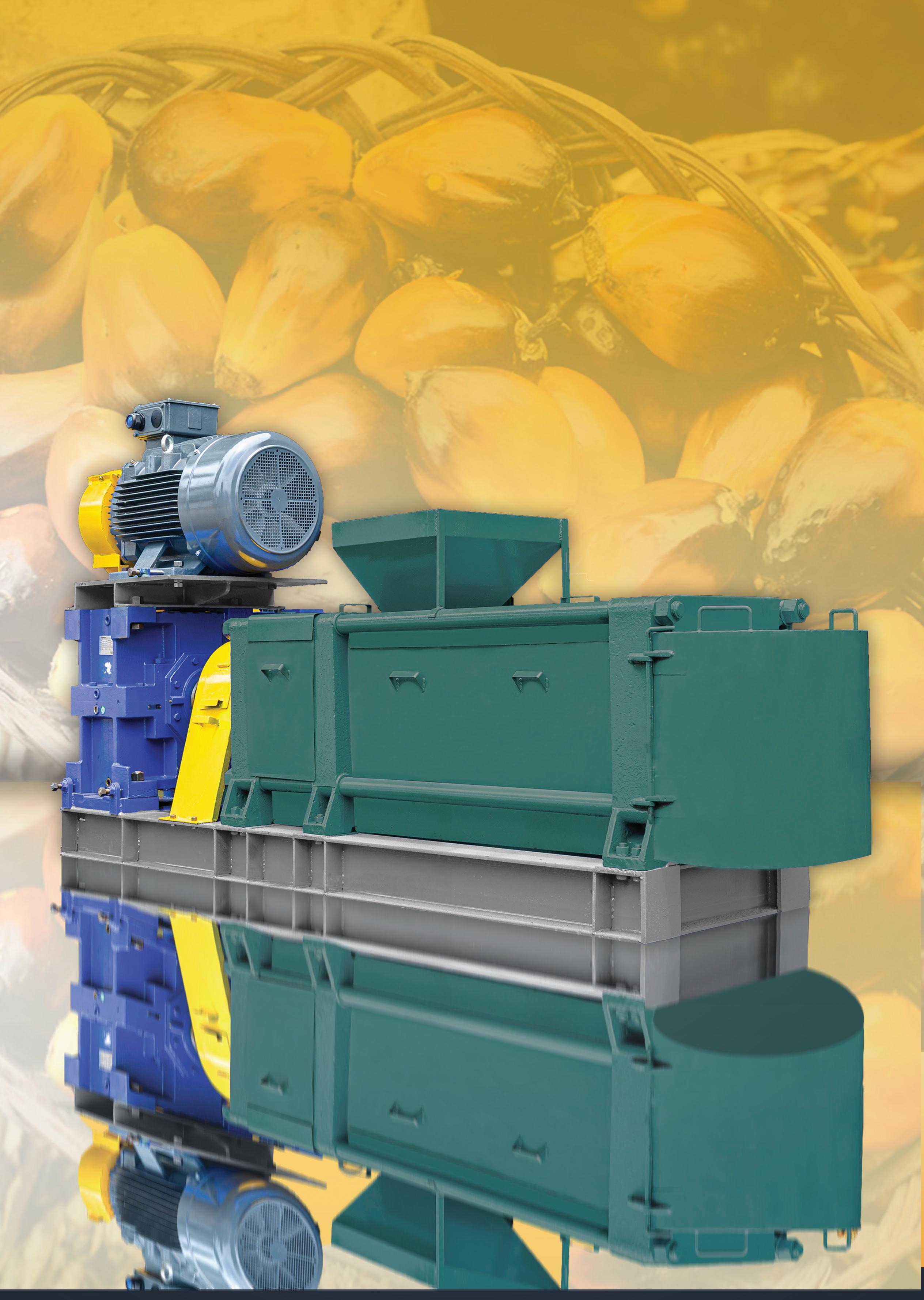


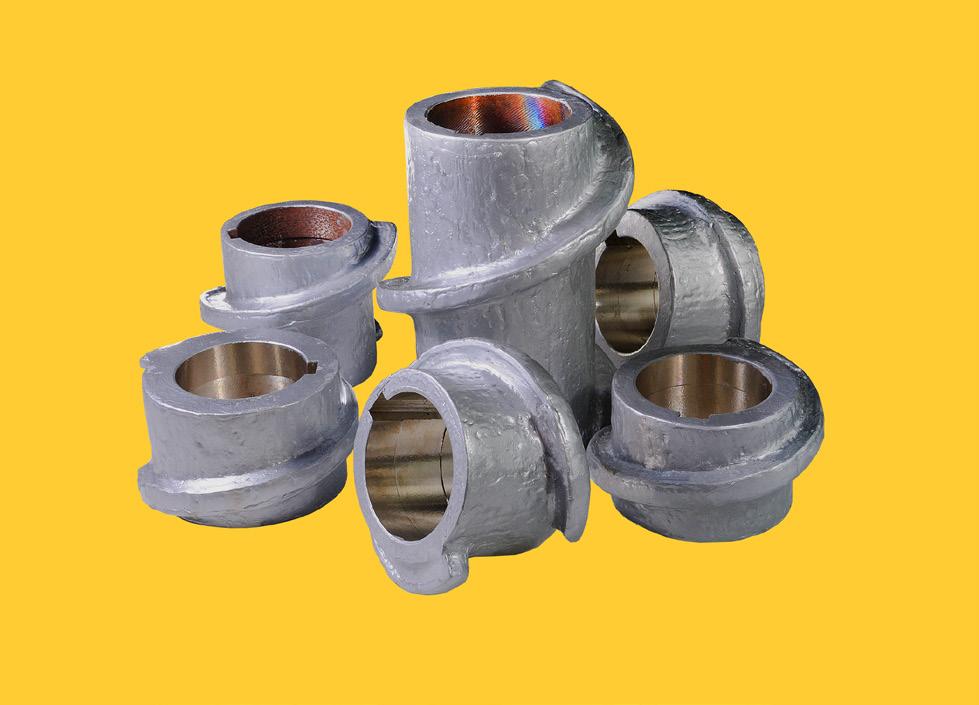







Indonesia dan Malaysia sama-sama berpendapat bahwa Regulasi Pembabatan Hutan Uni Eropa (EUDR) akan merugikan kepentingan ekonomi mereka sebagai produsen dan eksportir utama minyak kelapa sawit mentah (CPO). “Malaysia dan Indonesia harus menyuarakan keprihatinan mereka tentang kepentingan ekonomi negara kita dan bahwa regulasi pembabatan hutan (Uni Eropa) (dimaksudkan untuk) membatasi impor minyak kelapa sawit kita ke negara mereka,” kata Menteri Luar Negeri Malaysia, Mohamad bin Hasan, di Istana Kepresidenan di sini, pada hari Selasa. Dia menambahkan bahwa sikap bersama ini disebabkan oleh Indonesia dan Malaysia memiliki kepentingan ekonomi yang sama dalam mengekspor CPO ke negara-negara Uni Eropa.
Indonesia dan Malaysia percaya bahwa EUDR hanya akan menguntungkan komoditas minyak nabati di pasar Eropa, katanya. “Kita harus membuat suara kita terdengar karena jelas bahwa regulasi ini tidak diberlakukan dengan niat baik karena hanya untuk kepentingan produk (minyak) lain,” tambahnya.
Sementara itu, Menteri Luar Negeri Retno Marsudi memastikan bahwa Indonesia dan Malaysia memiliki sikap yang sama terkait regulasi pembabatan hutan dan kepentingan ekonomi dalam pasar ekspor CPO di Eropa. Dia mengatakan bahwa Indonesia dan Malaysia menjelaskan sikap mereka mengenai EUDR selama Pertemuan Menteri ASEAN-UE ke-24 di Brussels, Belgia, pada 2 Februari 2024. “Kita juga memiliki sikap yang sama mengenai isu minyak kelapa sawit, serta Regulasi Pembabatan Hutan Uni Eropa yang kita diskusikan sebelumnya dengan Uni Eropa. Kita telah menjelaskan sikap kita mengenai isu minyak kelapa sawit,” informasinya.
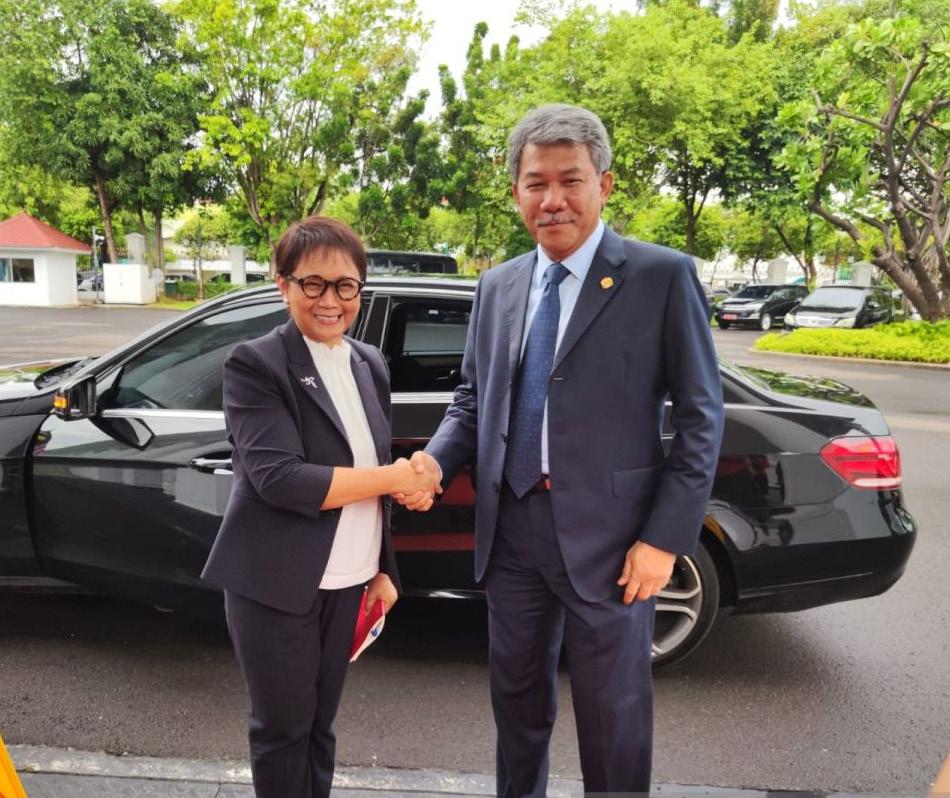
Sebelumnya, staf ahli di Kementerian Koordinator Bidang Perekonomian, Musdhalifah Machmud, mengatakan bahwa pemerintah Indonesia berharap solusi konkret dari Tim Tugas Gabungan Ad Hoc (JTF) mengenai EUDR, seperti penundaan implementasi EUDR.
Selama pertemuan ke-2 Ad Hoc JTF tentang EUDR, yang diselenggarakan di Putrajaya, Malaysia, pada 2 Februari, Machmud mengatakan bahwa permintaan penundaan itu dibuat demi kepentingan petani kecil perkebunan.
Both Indonesia and Malaysia are of the view that the European Union Deforestation Regulation (EUDR) will harm their economic interests as major producers and exporters of crude palm oil (CPO). “Malaysia and Indonesia should voice their concern about our nation’s economic interest and that the (European Union’s) deforestation regulation (is intended to) restrict the import of our palm oil to their countries,” Malaysian Foreign Minister Mohamad bin Hasan said at the Presidential Palace here on Tuesday. He added that this shared stance is due to Indonesia and Malaysia having the same economic interest in exporting CPO to European Union countries.
Indonesia and Malaysia believe that the EUDR would benefit only vegetable oil commodities in the European market, he informed. “We should make our voice heard as it is clear that the regulation is not enacted with good faith as it is only to benefit other (oil) products,” he added.
Meanwhile, Foreign Minister Retno Marsudi affirmed that Indonesia and Malaysia share the same stance on the deforestation regulation and the economic interest in the CPO export market in Europe. She said that Indonesia and Malaysia made their stance regarding the EUDR clear during the 24th ASEAN-EU Ministerial Meeting in Brussels, Belgium, on February 2, 2024. “We also have the same stance regarding the palm oil issue, as well as the EU Deforestation Regulation we discussed earlier with the European Union. We have made our stance regarding the palm oil issue clear,” Marsudi informed.
Earlier, expert staff at the Coordinating Ministry for Economic Affairs, Musdhalifah Machmud, said that the Indonesian government is hoping for a concrete solution from the Ad Hoc Joint Task Force (JTF) on EUDR, such as delayed EUDR implementation.
During the 2nd meeting of the Ad Hoc JTF on the EUDR, which was held in Putrajaya, Malaysia, on February 2, Machmud said that the request for the delay was made for the sake of plantation smallholders.

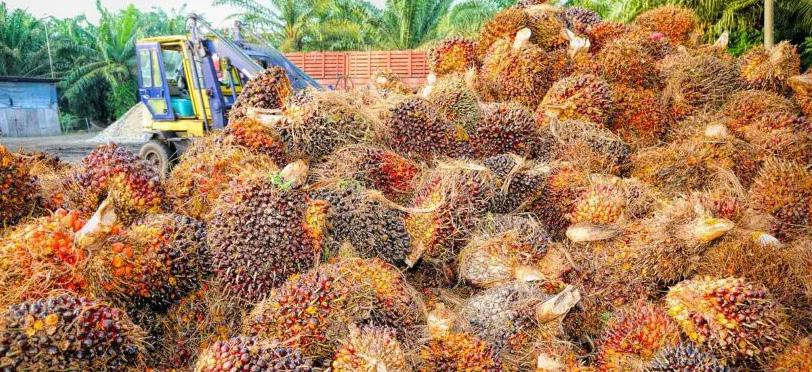
Langkah Uni Eropa melawan biofuel minyak kelapa sawit Malaysia “memang diskriminatif,” demikian yang ditemukan oleh Organisasi Perdagangan Dunia (WTO), menurut Kuala Lumpur.
Abdul Ghani, Menteri Perkebunan dan Komoditas Malaysia, pada hari Selasa menyebut keputusan WTO sebagai “pembenaran” dari “perjuangan mencari keadilan” Kuala Lumpur bagi pedagang, perusahaan, dan karyawan biodiesel kami.
Laporan WTO yang dirilis pada hari Senin “jelas menemukan kesalahan dalam aturan Uni Eropa tentang perubahan penggunaan lahan tidak langsung untuk melarang biofuel minyak kelapa sawit,” kata menteri itu. “Juga menemukan kesalahan dalam pendekatan Uni Eropa dalam memberi pemberitahuan dan berkonsultasi dengan ekonomi lain saat memperkenalkan tindakan perdagangan baru,” tambah Ghani.
“Delegated act” Komisi Uni Eropa terhadap minyak kelapa sawit Malaysia menetapkan kriteria untuk menentukan biofuel berbasis pakan dan pakan yang memiliki “risiko tinggi” meningkatkan emisi gas rumah kaca karena perubahan dalam penggunaan lahan seperti deforestasi.
Ghani mengatakan Uni Eropa telah “setuju” untuk mematuhi keputusan WTO sebelum dapat memberlakukan pembatasan dalam menerima biofuel minyak kelapa sawit Malaysia.
Malaysia akan “mengawasi dengan cermat perubahan Uni Eropa terhadap peraturannya untuk membawa mereka sejalan dengan temuan WTO,” katanya juga.
The EU’s move against Malaysian palm oil biofuel is “indeed discriminatory,” the World Trade Organization (WTO) has found, according to Kuala Lumpur.
Abdul Ghani, Malaysian minister of plantation and commodities, Tuesday called the WTO ruling a “vindication” of Kuala Lumpur’s “pursuit of justice” for our biodiesel traders, companies, and employees.
The WTO report, released on Monday, “clearly finds fault with the EU’s rules on indirect land use change to ban palm oil biofuels,” the minister said. “It also finds fault with the EU’s approach to notifying and consulting with other economies when introducing new trade measures,” Ghani added.
The EU Commission’s “delegated act” against Malaysian palm oil establishes criteria to determine which food and feed-cropbased biofuels have a “high risk” of increasing greenhouse gas emissions due to the changes in the use of land such as deforestation.
Ghani said the EU has “agreed” to comply with the WTO ruling before it can impose restrictions in accepting Malaysia’s palm oil biofuels.
Malaysia will “closely monitor the EU’s changes to its regulations to bring it in line with the WTO’s findings,” he also said.

Menteri Perkebunan dan Komoditas Malaysia pada hari Selasa mengatakan dalam sebuah konferensi industri bahwa negara tersebut mengharapkan permintaan yang kuat untuk minyak kelapa sawit dari pasar-pasar utama seperti India dan China tahun ini.
Pemerintah sedang bekerja keras agar sertifikasi minyak kelapa sawit diterima, kata Johari Abdul Ghani, sambil menambahkan bahwa harus mengelola persepsi negatif terhadap minyak nabati ini.
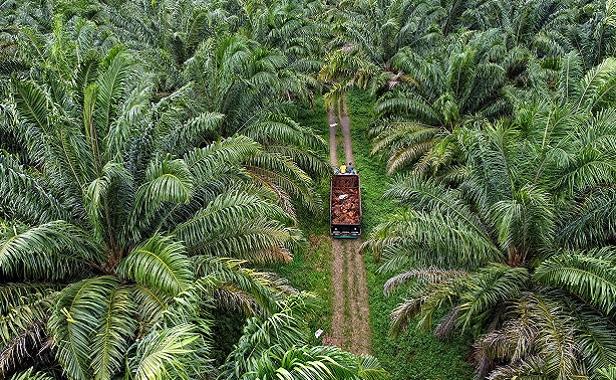
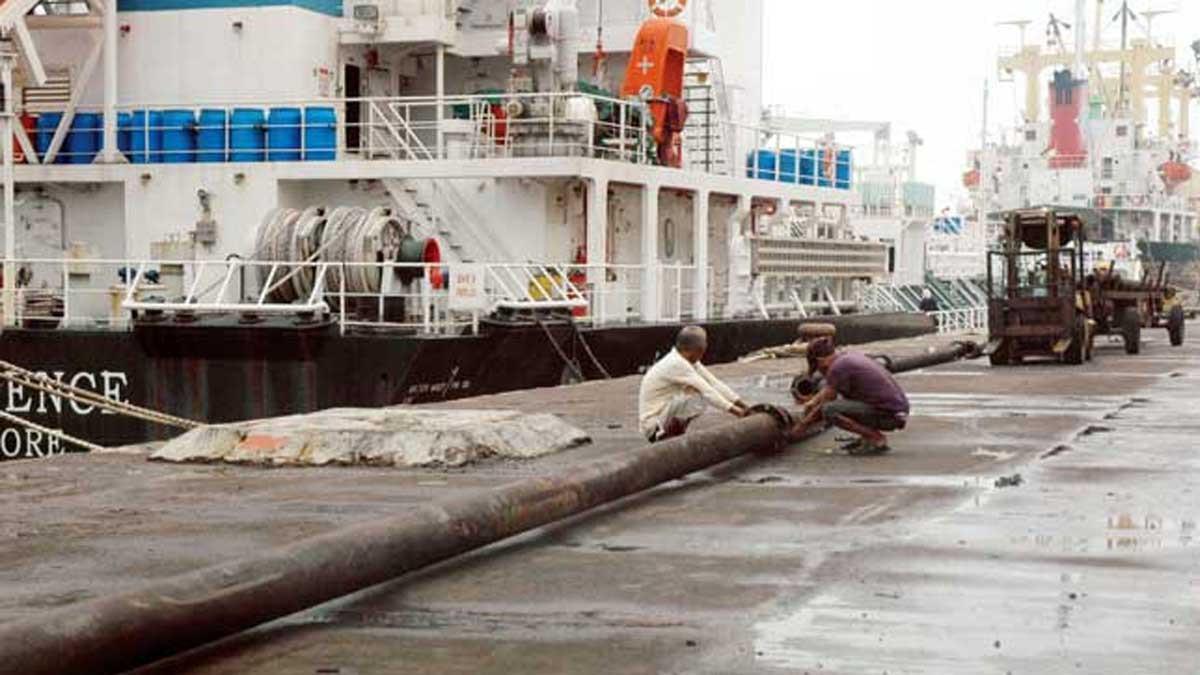
Malaysia Plantation and Commodities Minister on Tuesday told an industry conference the country expected strong demand for palm oil from key markets such as India and China this year.
The government is working tirelessly for its palm oil certification to be accepted, Johari Abdul Ghani said, adding it must manage negative perceptions toward the edible oil.
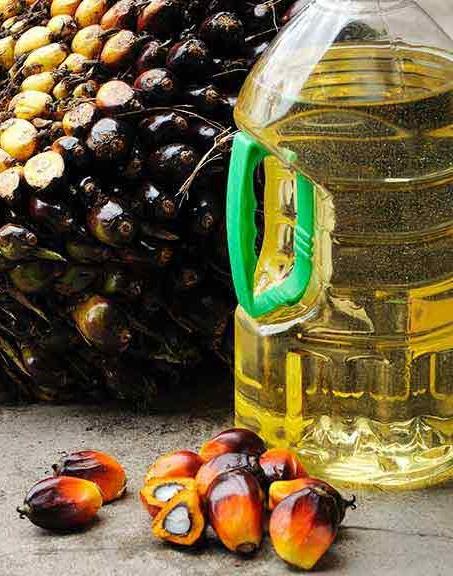
PERTUMBUHAN TERLIHAT DALAM
INDUSTRI MINYAK KELAPA SAWIT
MALAYSIA TAHUN INI KARENA
PANDANGAN YANG POSITIF - KETUA BURSA
GROWTH SEEN IN MALAYSIAN
PALM OIL INDUSTRY THIS YEAR DUE TO POSITIVE OUTLOOK - BURSA CHAIRMAN
Industri minyak kelapa sawit Malaysia diperkirakan akan menunjukkan pertumbuhan pada tahun 2024 dengan pemulihan pasokan tenaga kerja, proyeksi harga minyak kelapa sawit yang membaik, dan permintaan yang meningkat dari tujuan ekspor utama, kata Ketua Bursa Malaysia, Tan Sri Abdul Wahid Omar.
Dia mengatakan bahwa meskipun prospek industri minyak kelapa sawit terlihat positif, para pelaku pasar harus tetap waspada terhadap kemungkinan tantangan yang saling terkait. “Ini dapat berupa kondisi cuaca yang semakin tidak terduga, potensi pergeseran kebijakan perdagangan global dan lingkungan, sosial, dan tata kelola (ESG), serta risiko geopolitik yang sedang berlangsung, yang semuanya dapat secara signifikan memengaruhi perdagangan minyak kelapa sawit,” katanya dalam sambutan pembukaannya di Konferensi dan Pameran Perkiraan Harga Minyak Kelapa Sawit dan Laurikum ke-35 (POC2024) di sini hari ini.
Abdul Wahid mengatakan bahwa menurut laporan Januari 2024 dari Lembaga Minyak Sawit Malaysia (MPOB), ekspor minyak kelapa sawit diproyeksikan akan tumbuh sebesar 3,3 persen, mencapai 15,60 juta ton pada tahun 2024 dari 15,10 juta ton pada tahun 2023. Dia juga mengatakan bahwa nilai ekspor minyak kelapa sawit dan produk berbasis kelapa sawit diperkirakan akan meningkat sebesar 4,3 persen menjadi RM110 miliar pada tahun 2024 dari RM105 miliar tahun lalu. “Persediaan buah segar yang melimpah mendorong harga minyak kelapa sawit untuk normalisasi rata-rata RM3.890,50 per ton pada tahun 2023, menyusul rekor tertinggi sebesar RM5.087,50 per ton pada tahun 2022. “Ekspor minyak kelapa sawit juga mengalami penurunan 1,1 persen karena permintaan yang berkurang, yang mengakibatkan peningkatan stok,” katanya.
Di bursa, kontrak Future Minyak Kelapa Sawit Mentah (FCPO) Bursa Malaysia Derivatif untuk seluruh tahun 2023 mencatat volume perdagangan sebesar 14,8 juta kontrak atau setara dengan 370 juta metrik ton, hampir lima kali lipat produksi global. Abdul Wahid mengatakan bahwa industri minyak kelapa sawit tetap menjadi kontributor penting bagi ekonomi Malaysia, berdiri sebagai salah satu ekspor komoditas utamanya. “Walaupun gangguan rantai pasokan yang dipicu pandemi berkurang pada tahun 2023, pasar komoditas global masih dihadapkan dengan tantangan yang kuat, termasuk ketatnya kebijakan moneter, ketegangan geopolitik yang meningkat, dan kondisi cuaca yang tidak terduga, di antara lain,” tambahnya.
Bursa Malaysia Derivatif Bhd mengadakan POC2024 dari 4 Maret hingga 6 Maret 2024, di Hotel Shangri-La di Kuala Lumpur. POC2024 diharapkan akan menarik lebih dari 2.000 delegasi dari lebih dari 50 negara dan diresmikan oleh Menteri Perkebunan dan Komoditas Datuk Seri Johari Abdul Ghani. - Bernama

The Malaysian palm oil industry is expected to show growth in 2024 in light of recovery in labour supply, improved palm oil price projections and heightened demand from key export destinations, said Bursa Malaysia chairman Tan Sri Abdul Wahid Omar.
He said that while the palm oil industry’s outlook appears positive, market participants should remain vigilant of possible interlocking challenges. “These may come in the form of the increasingly unpredictable weather conditions, potential shifts to global trade and environmental, social and governance (ESG) policies, and ongoing geopolitical risks, all of which could significantly impact palm oil trade,” he said in his welcoming remarks at the 35th Palm and Lauric Oils Price Outlook Conference and Exhibition (POC2024) here today.
Abdul Wahid said that according to the Malaysian Palm Oil Board (MPOB) January 2024 report, palm oil exports are projected to grow by 3.3 per cent, reaching 15.60 million tonnes in 2024 from 15.10 million tonnes in 2023. He said similarly that the export value of palm oil and palm-based products is expected to increase by 4.3 per cent to RM110 billion in 2024 from RM105 billion last year. “The ample supply of fresh fruit bunches drove palm oil prices to normalise to an average of RM3,890.50 per tonne in 2023, following the record high of RM5,087.50 per tonne in 2022. “Palm oil exports also saw a 1.1 per cent decrease due to reduced demand, resulting in higher stocks,” he said.
On the exchange front, Bursa Malaysia Derivatives’ Crude Palm Oil Futures (FCPO) contract for the entire 2023 recorded a trading volume of 14.8 million contracts or equivalent to 370 million metric tonnes, almost five times that of global production. Abdul Wahid said the palm oil industry remains a significant contributor to Malaysia’s economy, standing as one of its main commodity exports. “Although pandemicdriven supply chain disruptions eased in 2023, global commodity markets still contended with strong headwinds, including monetary tightening, elevated geopolitical tensions and unpredictable weather conditions, among others,” he added.
Bursa Malaysia Derivatives Bhd is hosting POC2024 from March 4 to March 6, 2024, at the Shangri-La Hotel in Kuala Lumpur. POC2024 is expected to draw over 2,000 delegates from more than 50 countries and was officiated by Minister of Plantation and Commodities Datuk Seri Johari Abdul Ghani. - Bernama
“Banyak yang berubah bagi Nassozi Berna, suaminya, dan ketujuh anak mereka sejak dia mulai bertani pohon kelapa sawit di Kalangala, sebuah pulau di Danau Victoria Uganda, 11 tahun yang lalu. Sebelum itu, Berna dan suaminya adalah petani untuk pemenuhan kebutuhan sendiri yang menanam singkong, pisang, dan beberapa kopi serta tinggal di sebuah rumah kecil berkerangka kayu.”
Seperti banyak petani lain di Kalangala, Berna mulai menanam pohon kelapa sawit pada tahun 2012 sambil menekankan keberlanjutan dan menghindari deforestasi serta masalah lain yang terkait dengan pertanian kelapa sawit di beberapa bagian dunia. Pohon kelapa sawit menghasilkan buah yang menjadi bahan baku minyak kelapa sawit, tanaman yang jauh lebih andal dan menguntungkan daripada tanaman-tanaman budidaya sebelumnya. “Ketika kami bertani singkong, pisang, dan kopi, kami terganggu oleh monyet. Mereka datang dan menghancurkan tanaman kami,” katanya. Dia juga menjelaskan bahwa dia harus meninggalkan rumah dan pergi ke pasar untuk mencari pembeli bagi tanaman yang selamat dari serangan monyet tersebut, dan tidak pernah tahu sebelumnya berapa banyak hasil yang akan mereka dapatkan. “Kondisi hidup kami buruk,” katanya mengingat kembali. Dia dan keluarganya tinggal di sebuah rumah sementara berkerangka kayu. “Di malam hari ketika kami tidur, angin akan datang dan menghancurkan rumah kami dan anak-anak kami hampir setiap hari jatuh sakit.”

Perubahan itu dimulai ketika Berna mulai bekerja dengan Kalangala Oil Palm Growers Trust (KOPGT) dan keluarga menanam pohon kelapa sawit pertama mereka pada tahun 2012. Mereka memperluas tanaman mereka pada tahun 2019 dan lagi pada tahun 2022. Di Kalangala, banyak orang adalah petani kelapa sawit. “Saat hari dimulai, beberapa anggota keluarga saya membantu saya dalam pemangkasan,” katanya. “Yang lain pergi ke kebun dan melakukan kegiatan lainnya.”
Sebagai bagian dari misinya, KOPGT mengajarkan petani praktik pertanian yang lebih baik. Tetapi mungkin yang terpenting, itu telah menciptakan sistem pembayaran yang transparan sehingga petani dibayar lebih cepat dan tahu apakah yang mereka terima sudah akurat, meningkatkan standar hidup para petani dan, dengan demikian, sebagian besar pulau itu sendiri.
Seiring dengan meningkatnya jumlah petani dan transaksi, KOPGT membutuhkan solusi digital untuk memungkinkan pertumbuhan yang berkelanjutan. Sejak tahun 2009, SAP telah bekerja untuk menciptakan aplikasi yang membantu petani kecil di negara-negara berkembang, terutama di seluruh Afrika, meningkatkan produksi pangan.
David Balironda, manajer umum KOPGT, menjelaskan bahwa sistem trust ini didasarkan pada SAP Rural Sourcing Management, yang dapat mencatat informasi secara digital tentang produsen, kebun mereka, dan komunitas di setiap level rantai nilai. Hal ini membantu memberikan visibilitas dan memungkinkan pihak-pihak untuk dengan mudah dan cepat berkomunikasi satu sama lain.
Menggarisbawahi pentingnya keberlanjutan bagi KOPGT, trust ini melakukan penilaian dampak lingkungan awal sebelum meluncurkan proyek dan menggunakan SAP Analytics Cloud untuk memantau penanaman petani dan memastikan mereka mematuhi pedoman Badan Pengelolaan Lingkungan Nasional.
Teknologi cloud SAP juga memungkinkan KOPGT untuk memastikan bahwa penanaman kelapa sawit memenuhi pedoman keberlanjutan yang paling ketat yang ditetapkan oleh Otoritas Lingkungan Nasional Uganda. “Kami sedang dalam proses mengajukan sertifikasi tersebut oleh Roundtable on Sustainable Palm Oil untuk memastikan bahwa kami bekerja sesuai dengan pedoman tersebut,” kata Fredrick Sulwe, manajer keuangan dan administrasi KOPGT. Sebagai bagian dari komitmen KOPGT terhadap keberlanjutan, trust ini menjaga zona penyangga danau antara penanaman dan danau itu sendiri dan bahkan merehabilitasi area yang telah rusak oleh penanaman lain. “Restorasi area-area tersebut - zona penyangga danau - sangat penting,” kata Sulwe. Selain menjaga zona penyangga, trust ini juga mengikuti rekomendasi untuk penanaman pohon dan memastikan bahwa tidak ada bahan kimia atau herbisida yang digunakan. “Saat kami meningkatkan pendapatan rumah tangga, kami harus menjaga lingkungan yang bebas dari distorsi oleh proyek,” jelas Sulwe.
Sistem KOPGT memungkinkan petani memasukkan informasi tentang tanaman mereka menggunakan telepon seluler petani terdepan dan memungkinkan mereka menerima informasi dan saran dari trust. Sistem ini juga mencakup fitur pemetaan yang telah membantu petani untuk mengetahui dengan pasti seberapa besar lahan yang mereka tanami. “Itu berarti ketika saya pergi ke bank untuk mendapatkan pinjaman, saya yakin dengan ukuran lahan saya,” jelas Berna. Selain itu, dia juga mengetahui persis berapa besar pinjaman yang masih harus dibayar dan kapan harus dibayarkan. “Sebelumnya, kami hampir menghabiskan setahun tanpa mengetahui status pinjaman kami,” katanya. “Sekarang kami dapat mengetahui status pinjaman kami setiap bulan. Ini belum pernah ada sebelumnya.”

Dia juga mengakui bahwa sistem tersebut telah membuatnya menjadi petani kelapa sawit yang lebih baik dan lebih terinformasi. “Pada akhir bulan, saya mendapatkan SMS yang menunjukkan berapa banyak yang telah saya panen dari lahan saya,” katanya. Sebelum sistem tersebut beroperasi, dia mengatakan bahwa keluarga tersebut menghabiskan banyak uang untuk transportasi pergi dan pulang dari kantor KOPGT.
“Minyak kelapa sawit tidak hanya memengaruhi hidup saya, tetapi juga komunitas,” katanya. “Ada banyak petani yang seperti saya yang telah membangun rumah dan beberapa telah membeli mobil. Mereka telah menggunakan uang yang mereka dapatkan dari kelapa sawit untuk memulai bisnis baru di Kalangala dan di luar.”
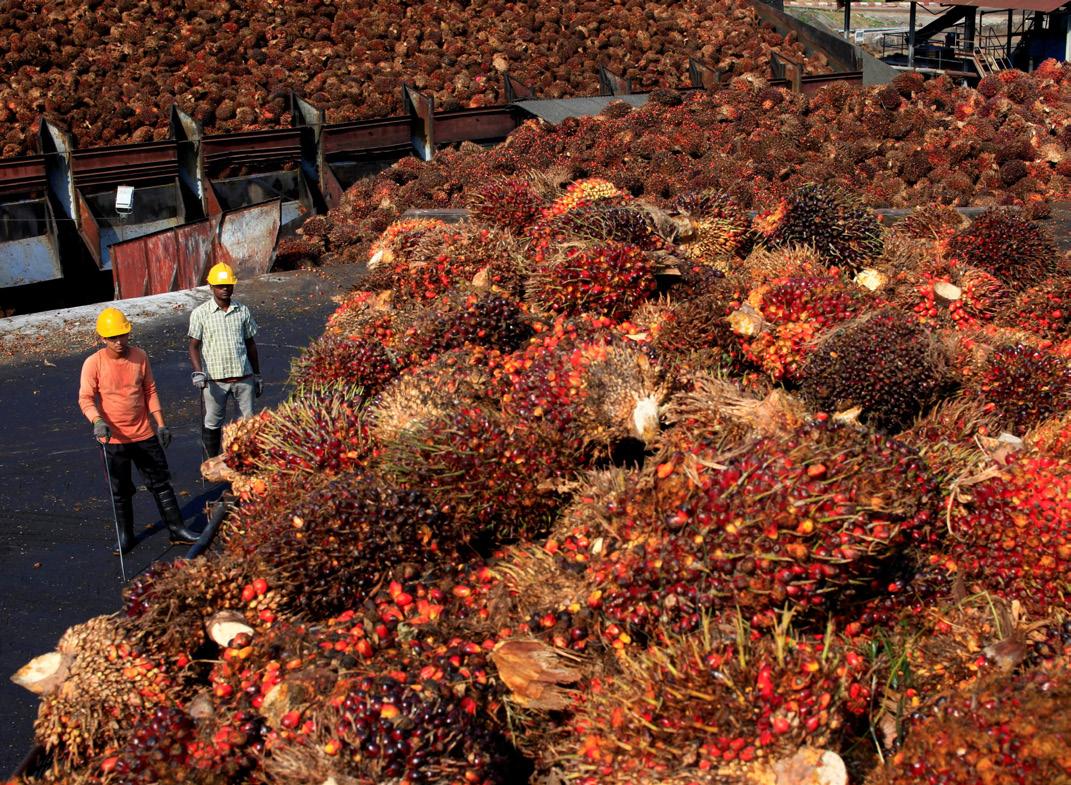
Berna mengatakan harapan dan mimpinya sangat besar. “Saya sudah mulai mencapai beberapa di antaranya,” katanya. “Sekarang, karena saya memiliki rumah permanen, saya dapat tidur nyenyak, anak-anak saya tidak lagi sakit, dan saya yakin angin tidak akan membawa rumah saya.” “Sekarang, kami dapat membawa anak-anak kami ke sekolah. Kami dapat menjalani kehidupan yang layak. Kami memiliki tempat untuk tinggal, dan kami dibayar setiap bulan. Kami yakin bahwa hidup kami telah berubah secara besar-besaran,” tambahnya. Dan meskipun dia belum memiliki mobil, dia berharap bisa belajar mengemudi dalam beberapa tahun mendatang.
Sementara itu, dia mengatakan bahwa dia ingin berterima kasih kepada semua orang atas bantuan mereka. “Yang memberi saya kepercayaan diri adalah kami memiliki petugas yang baik di KOPGT yang telah mencoba memberi kami arah yang baik. Kami berharap bahwa ketika mereka terus melakukan apa yang mereka lakukan, hidup kami akan sangat terpengaruh.” Keyakinan dan optimisme yang baru ditemukan oleh Berna mencerminkan kesuksesan program minyak nabati di Pulau Kalangala. Karena buah kelapa sawit dapat dipanen sepanjang tahun dibandingkan dengan satu atau dua panen musiman dan memiliki hasil yang tinggi, pertanian kelapa sawit telah menjadi alternatif yang layak bagi penduduk setempat.
Minyak kelapa sawit sudah menjadi minyak nabati yang paling banyak digunakan di planet ini, dengan sekitar 71 juta ton dikonsumsi pada tahun 2021. Dan tidak hanya ada kebutuhan domestik, tetapi juga permintaan dari pasar luar negeri yang dapat dipenuhi oleh petani kecil Uganda seperti keluarga dan tetangga Berna.
“Much has changed for Nassozi Berna, her husband, and their seven children since she began farming oil palm trees on Kalangala, an island in Uganda’s Lake Victoria, 11 years ago. Before that, Berna and her husband were subsistence farmers growing cassava, banana, and some coffee and living in a small, timber-framed house.”
Like many other farmers on Kalangala, Berna started growing oil palm trees in 2012 while emphasizing sustainability and avoiding the deforestation and other issues associated with oil palm farming in some parts of the world. Oil palm trees bear the fruit that makes palm oil, a much more reliable and lucrative crop than the cash crops they were producing previously. “When we were farming cassava, bananas, and coffee, we were affected by monkeys. They came and destroyed our crops,” she says. She also explains that she had to leave home and go to the market to find a buyer for the crops that survived the monkey attacks and never knew in advance how much they would fetch. “Our living conditions where bad,” she remembers. She and her family lived in a makeshift timber house. “In the night when we were sleeping, winds would come and destroy our houses and our children fell sick almost every day.”
That began to change when Berna began working with the Kalangala Oil Palm Growers Trust (KOPGT) and the family planted their first oil palm trees in 2012. They expanded their crop in 2019 and again in 2022. In Kalangala, many of the people are oil palm farmers. “When a day starts, some of my family members help me with the pruning,” she says. “The others go to the plantation and do other activities.

As part of its mission, KOPGT teaches farmers better agricultural practices. But perhaps most importantly, it has created a transparent payment system so farmers get paid faster and know if what they’re getting paid is accurate, increasing the standard of living of the farmers and, subsequently, much of the island itself.
As the number of farmers and transactions increased, KOPGT needed a digital solution to enable continued growth. Since 2009, SAP has worked to create applications that help smallholder farmers in developing nations, primarily across Africa, enhance food production.
David Balironda, KOPGT’s general manager, explains that the trust’s system is based on SAP Rural Sourcing Management, which can digitally record information on producers, their farms, and communities at every level of the value chain. This helps provide visibility and allows parties to easily and quickly communicate with each other.

Underscoring the importance of sustainability to KOPGT, the trust conducted an initial environmental impact assessment before launching the project and uses SAP Analytics Cloud to monitor the farmer plantings and ensure they are in compliance with the National Environment Management Authority guidelines.
SAP cloud technology also enables KOPGT to ensure that the oil palm planting meets the most stringent sustainability guidelines set by Uganda’s National Environmental Authority. “We are in the process of applying for that certification by the Roundtable on Sustainable Palm Oil to make sure that we work within those guidelines,” says Fredrick Sulwe, KOPGT’s finance and administration manager.
As part of KOPGT’s commitment to sustainability, the trust maintains a lake buffer zone between the planting and the lake itself and even rehabilitates those areas that have been damaged by other plantings. “Restoration of those areas the lake buffer zones is key,” says Sulwe. In addition to maintaining the buffer zones, the trust also follows recommendations for the stocking of trees and ensures that no chemicals or herbicides are used. “As we increase household income, we must keep an environment that is free of any distortion by the project,” explains Sulwe.
The KOPGT system allows the farmers to input information about their crops using the lead farmer’s mobile phone and enables them to receive information and advice back from the trust. The system also includes a mapping feature that has helped farmers to know exactly how much land they are farming. “That means when I go to the bank to get a loan, I’m sure of the size of my lot,” explains Berna. In addition, she also knows exactly how much of the loan is outstanding and when it needs to be repaid. “Previously, we would almost spend a year without knowing the status of our loan,” she says. “Now we can learn the status of our loans monthly. This never existed before.”
She also credits the system with making her a better and more informed oil palm farmer. “At the end of the month I get an SMS that shows how much I have harvested from my lot,” she says. Before the system came online, she says the family was spending a lot of money on transport going to and from the KOPGT office.
“Oil palm has not only impacted my life, but also the community,” she says. “There are many farmers who are like me who have built houses and some have bought cars. They have used the money they got from oil palm to start new businesses on Kalangala and outside.”
Berna says her hopes and dreams are enormous. “I have started to achieve some of them,” she says. “ Now, because I have a permanent house, I am able to sleep well, my children no longer get sick, and I’m sure that the winds won’t take my house.” “Now, we are able to take our children to school. We can live a decent life. We have some place to stay, and we get paid every month. We are sure that our life has greatly changed,” she adds. And although she doesn’t yet own a car, she hopes to learn to drive in the coming years.
Meanwhile, she says she wants to thank everyone for their help. “What gives me confidence is we have good officers at KOPGT that have tried to give us a good direction. We hope that when they continue doing what they are doing our lives will be impacted greatly.” Berna’s confidence and newly found optimism reflects the success of the vegetable oil program on Kalangala island. Because palm fruits can be harvested throughout the year compared to one or two seasonal harvests and have high yields, palm farming has become a viable alternative for the residents.
Palm oil is already the most widely used vegetable oil on the planet, with about 71 million tons consumed in 2021. And there is not only a domestic need, but also a demand from the foreign market that Ugandan smallholder farmers like Berna’s family and neighbors can help fill.


Perdana Menteri James Marape telah menegaskan kembali tekad pemerintah untuk mendorong pertumbuhan industri kelapa sawit di Papua Nugini. Sektor ini, yang merupakan ekspor pertanian utama negara, menghasilkan lebih dari K2.8 miliar dalam ekspor pada tahun 2022, yang merupakan kontribusi penting bagi ekonomi nasional.
Perdana Menteri Marape menyoroti dukungan pemerintah melalui alokasi lebih dari K3.5 juta untuk Program Intervensi Kelapa Sawit Nasional (NOPIP), inisiatif strategis yang diawasi oleh Perusahaan Industri Kelapa Sawit (OPIC), sejak tahun lalu. “Dana ini ditujukan untuk memperkuat kemampuan produksi industri dengan mengatasi salah satu tantangan kritisnya penuaan pohon kelapa sawit, yang telah menjadi faktor signifikan dalam penurunan tingkat produksi,” katanya. “Dibawah kepemimpinan Menteri Kelapa Sawit Francis Maneke, program ini telah mencapai kemajuan yang signifikan. “Menteri Maneke telah proaktif, menjelajahi negara untuk memastikan distribusi dana kepada penggiling efektif. “Dukungan keuangan ini memfasilitasi pasokan bibit berkualitas kepada petani kecil, dengan tujuan memperbarui ladang mereka dengan pohon kelapa sawit baru yang berproduksi tinggi.”
Perdana Menteri menyatakan rasa terima kasihnya kepada Menteri Maneke, perusahaan penggilingan utama, dan OPIC atas dukungan teguh mereka terhadap inisiatif penting ini. Intervensi tahun lalu adalah K576.000 untuk New Britain Palm Oil Ltd (NBPOL) untuk mendistribusikan 48.000 bibit (K18 per bibit) untuk mencakup 400 hektar di Hoskins; dan K288.000 untuk Hargy Oil Palm untuk 24.000 bibit untuk menanam kembali 200ha di Bialla.
Tahun ini, alokasi lebih banyak telah dilakukan, termasuk K540.000 yang signifikan untuk NBPOL untuk distribusi 35.000 bibit, yang bertujuan untuk merevitalisasi 250ha di Hoskins: K216.000 untuk Hargy Oil Palms untuk 14.000 bibit untuk memperbarui 100ha di Bialla; dan putaran lain sebesar K540.000 untuk NBPOL untuk tujuan yang sama di Oro.
Komitmen lebih lanjut diumumkan, dengan rencana untuk mengalokasikan K216.000 kepada NBPOL untuk 100ha di Milne Bay, dan K324.000 untuk 21.000 bibit untuk mencakup 150ha di New Ireland. Upaya-upaya ini menegaskan keprihatinan pemerintah atas penuaan pohon kelapa sawit dan komitmennya untuk menghidupkan kembali industri tersebut di tengah tantangan ekonomi dan biaya hidup yang meningkat.
Perdana Menteri Marape menekankan pentingnya menyediakan bibit berkualitas tinggi untuk mendukung petani lokal, memastikan keberlanjutan tanaman kelapa sawit di seluruh negeri. “Inisiatif ini tidak hanya bertujuan untuk meningkatkan produksi tetapi juga untuk memberikan dukungan substansial kepada petani kecil di seluruh Papua Nugini, merupakan langkah yang patut diacungi jempol menuju peningkatan mata pencaharian bagi mereka yang bergantung pada pertanian,” katanya. “Inisiatif ini untuk mendukung penanaman kembali patut diacungi jempol dan akan sangat menguntungkan petani kecil. “Hal ini merupakan pertanda masa depan cerah bagi industri kelapa sawit dan kontribusinya yang signifikan terhadap ketahanan ekonomi negara.”



















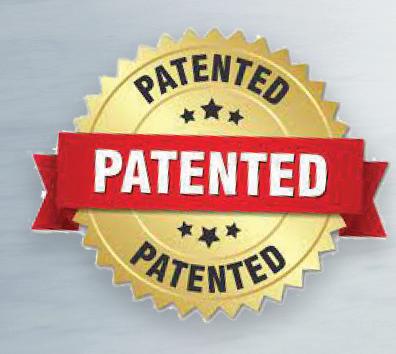










Prime Minister James Marape has reaffirmed the government’s dedication to fueling the growth of the oil palm industry in Papua New Guinea. The sector, which stands as the country’s leading agricultural export, generated over K2.8 billion in exports in 2022, marking a pivotal contribution to the national economy.
Prime Minister Marape highlighted the government’s support through the allocation of over K3.5 million to the National Oil Palm Intervention Programme (NOPIP), a strategic initiative overseen by the Oil Palm Industry Corporation (OPIC), since last year. “This funding is directed towards bolstering the production capabilities of the industry by addressing one of its critical challenges the ageing of palm trees, which has been a significant factor in declining production rates,” he said. “Under the stewardship of Oil Palm Minister Francis Maneke, the programme has seen substantial progress. “Minister Maneke has been proactive, traversing the nation to ensure the effective distribution of funds to millers. “This financial support facilitates the supply of quality seedlings to smallholder growers, aiming to rejuvenate their fields with new, high-yielding palm trees.”
The Prime Minister expressed his gratitude towards Minister Maneke, the major milling companies, and OPIC for their unwavering support of this vital initiative. Last year’s intervention was K576,000 to New Britain Palm Oil Ltd (NBPOL) to distribute 48, 000 seedlings (K18 per seedling) to cover 400-hectares at Hoskins; and K288,000 to Hargy Oil Palm for 24,000 seedlings to replant 200ha at Bialla.
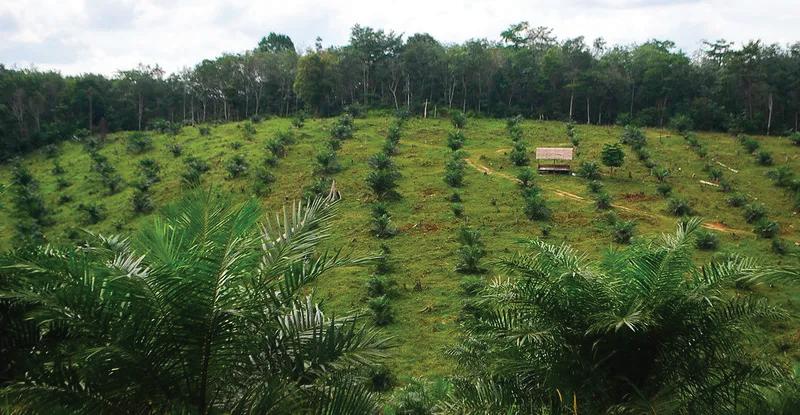
This year, more allocations have been made, including a notable K540,000 to NBPOL for the distribution of 35,000 seedlings, aimed at revitalising 250ha in Hoskins: K216.000 to Hargi Oil Palms for 14,000 seedlings to rejuvenate 100ha in Bialla; and another round of K540,000 to NBPOL for the same purpose in Oro.
Further commitments were announced, with plans to allocate K216,000 to NBPOL for 100ha in Milne Bay, and K324,000 for 21,000 seedlings to cover 150ha in New Ireland. These efforts underscore the government’s concern over the ageing palm trees and its commitment to reviving the industry amid economic challenges and rising living costs.
Prime Minister Marape emphasised the importance of providing high-quality seedlings to support local growers, ensuring the sustainability of the oil palm crop across the nation. “The initiative not only aims to boost production but also to provide substantial support to smallholder growers throughout Papua New Guinea, marking a commendable step towards enhancing the livelihoods of those dependent on agriculture,” he said. “This initiative to support replanting is commendable and will greatly benefit smallholders. “This signals a bright future for the oil palm industry and its significant contribution to the nation’s economic resilience.”
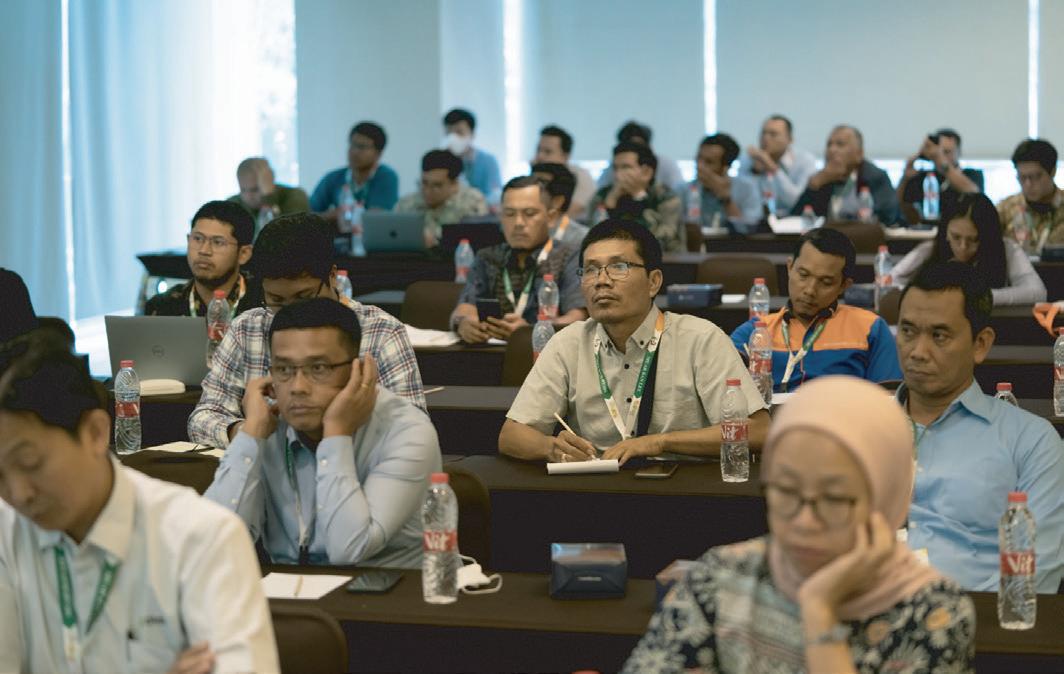







INVESTASI BESAR DALAM
INDUSTRI KELAPA SAWIT DAPAT
MENGUBAH EKONOMI
GHANA - PAUL AMANING
aul Kwabena-Amaning, Presiden Asosiasi Pabrik Minyak
P P
Sawit Artisanal dan Petani Mitra dari Ghana, mengatakan bahwa bisnis kelapa sawit memiliki potensi untuk menjaga dan meningkatkan ekonomi Ghana.
Dia kemudian menekankan bahwa Ghana memiliki semua sumber daya yang diperlukan untuk menjadi salah satu produsen minyak kelapa terkemuka. Oleh karena itu, pemerintah harus melakukan investasi yang diperlukan di sektor ini untuk menjadikannya menguntungkan dan menyediakan lapangan kerja bagi pemuda Ghana.
Berbicara di Angel FM yang berbasis di Kumasi, dia mengatakan, “Industri kelapa sawit dapat membuat Ghana menjadi salah satu ekonomi terbaik di dunia.
Ini dapat dicapai jika pemerintah menginvestasikan sejumlah besar uang dalam industri minyak kelapa sawit.”
Dia mengutip pengaturan kepemilikan tanah yang ideal di Malaysia yang memungkinkan orang untuk membudidayakan pohon kelapa sawit secara besar-besaran, akhirnya mengubah buahnya menjadi minyak berkualitas tinggi.
Dia menekankan bahwa ekonomi Ghana akan tumbuh, dan tingkat pengangguran akan menurun ketika kelapa sawit semakin komersial.
aul Kwabena-Amaning, President of the Artisanal Palm Oil Millers and Out growers Association of Ghana, has said the oil palm business holds the potential to both sustain and improve Ghana’s economy.
He went on to emphasize that Ghana has all the necessary resources to rank among the top producers of palm oil. Thus, the government must make necessary investments in the sector to make it profitable and provide jobs for young Ghanaians.
Speaking on Kumasi-based Angel FM, he said “The oil palm industry can make Ghana one of the best economies in the world.
This can be achieved if the government invests huge sums of money in the palm oil industry.”
He cited Malaysia’s ideal land tenure arrangement which enables people to cultivate palm trees on a big scale, eventually turning the fruits into high-quality oil.
He stressed that Ghana’s economy would grow, and the unemployment rate would decline when oil palm becomes more and more commercialized.
“Salah satu tantangan terbesar bagi kelapa sawit sebagai komoditas adalah mendirikan jejak dan keberlanjutan. Indonesia menyuplai hampir 45% dari permintaan dunia untuk minyak kelapa sawit. Selama dua dekade terakhir, di Indonesia, sektor kelapa sawit telah tumbuh pesat (menggandakan luas perkebunan kelapa sawit), namun hal ini juga mengakibatkan penebangan hutan hujan dan pengeringan lahan gambut, sehingga membuat tanaman kelapa sawit memiliki dampak emisi gas rumah kaca tertinggi sebagai tanaman pertanian.”
Rata-rata selama tiga tahun terakhir, penggunaan lahan yang didorong oleh kelapa sawit dan perubahan penggunaan lahan di Indonesia dan Malaysia telah menghasilkan sekitar 500 juta ton CO2e setiap tahun, menyumbang 1.4% dari emisi CO2e bersih global. Di sisi permintaan, India, China, dan Uni Eropa termasuk di antara konsumen terbesar minyak kelapa sawit. Baru-baru ini, Uni Eropa telah mengeluarkan undang-undang yang mewajibkan penghapusan penggunaan minyak kelapa sawit (digunakan sebagai bahan bakar nabati) dari sektor transportasi pada tahun 2030. Keputusan ini akan memiliki dampak substansial karena lebih dari 60% dari seluruh minyak kelapa sawit yang diimpor oleh UE digunakan sebagai bahan bakar nabati. Di sisi pasokan, para petani kecil biasanya kekurangan judul tanah yang jelas, akses ke layanan keuangan formal, menghadapi kurangnya kesadaran dan kapasitas untuk praktik-praktik berkelanjutan. Perusahaan-perusahaan besar tetap bergantung pada pedagang dan tengkulak untuk memperoleh buah kelapa sawit dan kesulitan untuk menetapkan keberlanjutan karena asimetri informasi yang sangat tinggi.
Meskipun ada mekanisme keberlanjutan yang sudah ada seperti Roundtable on Sustainable Palm Oil (RSPO), sistem Minyak Sawit Berkelanjutan Indonesia (ISPO), dll., namun secara keseluruhan jejak dan keberlanjutan dari sebagian besar minyak kelapa sawit yang diproduksi di Indonesia tetap menjadi tantangan. Bagi konsumen dan perusahaan yang berhadapan langsung dengan konsumen, RSPO dan ISPO adalah satu-satunya mekanisme pihak ketiga untuk memverifikasi dan melacak keberlanjutan minyak kelapa sawit yang dikonsumsi/diperoleh, secara berturut-turut. Mendirikan dan memelihara jejak minyak kelapa sawit di seluruh rantai nilai sangat kompleks karena adanya berbagai faktor - rantai nilai yang kompleks dengan banyak perantara, tantangan regulasi, kurangnya kesadaran konsumen, dll. Tanpa sistem jejak yang transparan dan kuat, hampir tidak mungkin untuk menetapkan apakah minyak kelapa sawit telah diproduksi secara berkelanjutan (mengikuti praktik ‘NDPE’ - Tidak ada Pembabatan Hutan, tidak ada pengeringan lahan gambut dan tidak ada eksploitasi buruh). Meskipun RSPO telah membuat kemajuan dengan mengadopsi kriteria yang ketat untuk minyak kelapa sawit berkelanjutan, masih banyak kritik tentang organisasi yang melanggar persyaratan tersebut. Rantai nilai untuk industri minyak kelapa sawit juga panjang, kompleks, dan beragam - terdiri dari penghasil minyak kelapa sawit - baik petani kecil maupun perkebunan besar, pedagang untuk buah, pabrik penghancur buah menjadi minyak kelapa sawit mentah, pabrik pengolah yang membuat produk turunan dari minyak mentah, dan akhirnya perusahaan yang berhadapan langsung dengan konsumen yang menggunakan minyak kelapa sawit yang sudah diolah di seluruh portofolio produk mereka sendiri (minyak goreng, bahan bakar nabati, dll.). Pasar sudah siap (dan memerlukan) intervensi berbasis teknologi yang membawa transparansi di seluruh sektor dan memicu perpindahan menuju pasar minyak kelapa sawit yang berkelanjutan.
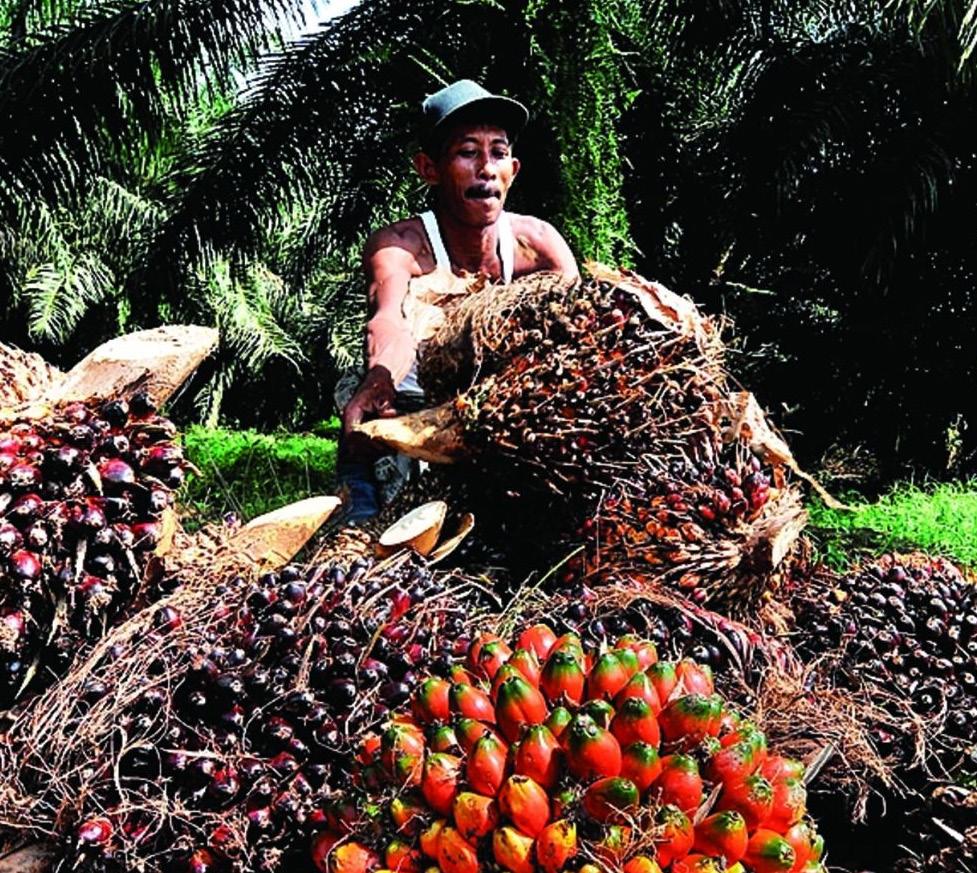
Primer Deloitte tentang teknologi blockchain menjelaskan, “Blockchain adalah buku besar transaksi digital dan terdistribusi, direkam dan direplikasi secara real-time di seluruh jaringan komputer atau node... Tidak ada kebutuhan untuk otoritas pusat untuk menyetujui transaksi, itulah mengapa blockchain kadangkadang disebut sebagai mekanisme peer-to-peer tanpa kepercayaan.” Pada dasarnya, teknologi blockchain menyediakan cara yang lebih aman untuk buku besar, menyimpan catatan, dan basis data yang aman tanpa adanya intervensi manual pusat. Dengan demikian, biaya verifikasi untuk setiap catatan dalam sistem berbasis blockchain jauh lebih rendah daripada sistem berbasis manusia. Hal ini menghasilkan model operasi yang didasarkan pada model kepercayaan berbasis sistem daripada model kepercayaan berbasis kontra-pihak untuk transaksi.
Inisiatif POB dirancang untuk memanfaatkan karakteristik teknologi blockchain ini, dengan fokus untuk menciptakan mekanisme jejak yang murah dan dapat dipercaya. Pada dasarnya, yang dibutuhkan adalah sistem basis data terintegrasi dan tahan manipulasi yang membawa serta memelihara identitas digital minyak kelapa sawit, yang dapat digunakan oleh semua pemangku kepentingan di seluruh rantai nilai - mulai dari pabrik pengolah hingga konsumen akhir. Saat ini, biaya yang terkait dengan pembuktian keberlanjutan minyak kelapa sawit secara nyata tinggi - diperlukan audit, pemantauan, dan pelaporan yang sering di seluruh rantai nilai (dari pertanian hingga proses manufaktur) dengan kemungkinan manipulasi data sepanjang rantai. Dengan inisiatif POB, audit, pemantauan, dan pelaporan hanya akan diperlukan di tingkat pertanian untuk menciptakan identitas digital untuk minyak kelapa sawit, dan kemudian informasi ini akan tahan terhadap manipulasi sepanjang rantai nilai. Inisiatif ini dirancang untuk menggunakan teknologi blockchain yang dipasangkan dengan perkembangan teknologi terbaru dalam internet industri, aplikasi seluler untuk konsumen akhir, layanan web dan cloud, dll. untuk sepenuhnya mendigitalkan rantai pasokan yang ada untuk minyak kelapa sawit. Ini akan menjadi solusi paket teknologi terintegrasi, dapat diimplementasikan di seluruh sektor minyak kelapa sawit mulai dari sumber (petani kelapa sawit) hingga titik akhir konsumsi. Inisiatif ini juga akan memiliki implikasi langsung untuk meningkatkan nilai dan kesadaran akan minyak kelapa sawit berkelanjutan.

Permasalahan utama yang harus diselesaikan oleh POB adalah masalah jejak yang terkait dengan sektor ini. Ini akan mencakup bekerja di seluruh rantai pasokan dengan berbagai pihak untuk mendirikan (dan menyoroti) jejak untuk minyak kelapa sawit berkelanjutan. Ini akan bekerja dengan para petani untuk ‘mendigitalkan’ semua sumber buah kelapa sawit (berdasarkan geo-tagging, rincian petani, izin tanah, dll.) mulai dari perusahaan besar dan secara bertahap petani kecil. Setelah jejak untuk sumber tersebut ditetapkan, POB akan bekerja dengan pabrik penghancur dan pabrik pengolah untuk ‘mengintegrasikan’ teknologi (seperti Internet-of-Things atau IoT, aliran proses industri yang didesain ulang, manajemen data, dll.) yang membangun dan memelihara catatan jejak untuk minyak kelapa sawit, bahkan saat melewati rantai pasokan. Pada akhirnya, ini akan bekerja dengan perusahaan yang menghadapi konsumen akhir untuk menerapkan kemasan interaktif baru untuk produk yang membantu konsumen memahami dan menjadi lebih sadar tentang keberlanjutan produk. Inisiatif ini juga akan membangun teknologi yang berorientasi pada konsumen (aplikasi seluler, analitik data, dll.) yang akan memungkinkan mereka berinteraksi dengan produk menggunakan ponsel pintar mereka dan menyimpan catatan profil keberlanjutan konsumen mereka sendiri. Inisiatif ini akan mengandalkan secara utama kemampuan blockchain untuk membentuk sistem informasi yang murah, dapat dipercaya, dan tahan manipulasi serta kemampuan IoT, layanan cloud, dll. untuk membangun dan memelihara catatan data online yang kuat.
Setelah aset ‘minyak kelapa sawit digital’ dibuat di tingkat pertanian, aset akan dilacak melalui seluruh rantai nilai saat aset mengalami ‘perubahan bentuk’ dari buah menjadi minyak menjadi produk olahan saat bergerak di rantai nilai. Ini mirip dengan sistem rantai pasokan terpisah di bawah praktik RSPO. Sistem TI di seluruh rantai nilai akan dikonfigurasi untuk mengecualikan setiap minyak kelapa sawit yang tidak membawa identitas digital. Dengan demikian, setiap perubahan bentuk dapat ditelusuri kembali ke aset digital asli yang dibuat di tingkat pertanian. Tantangan signifikan di tingkat pertanian diantisipasi, ketika informasi awal tentang aset digital (buah kelapa sawit) harus dimasukkan ke dalam sistem. Ini adalah salah satu titik yang paling kritis bagi ekosistem digital untuk bekerja. Tim inisiatif POB dapat bekerja untuk mengalokasikan sumber daya dalam memverifikasi, menyelidiki, dan menjaga integritas

proses dan operasi di tingkat pertanian. Penilaian risiko juga dapat diperkuat lebih lanjut menggunakan alat seperti citra satelit, audit acak, dan menggunakan skema desain sosial (sama seperti bagaimana kelompok swadaya masyarakat membantu menjaga tingkat bunga pinjaman rendah dalam keuangan mikro). Pembelajaran juga dapat diperoleh dari platform teknologi seperti Airbnb yang menghadapi masalah serupa dalam mempertahankan kualitas operasi untuk sistem terdistribusi. Masalah terakhir yang akan dihadapi adalah mengintegrasikan platform blockchain dan sistem TI di seluruh rantai nilai dengan sistem manufaktur yang ada dari pabrik kelapa sawit, pabrik pengolah, perusahaan transportasi. Secara teoritis, menyesuaikan kembali operasi pabrik kelapa sawit/ pabrik pengolah dengan teknologi baru seperti IoT, infrastruktur teknologi berbasis awan, dll. memungkinkan, tetapi memerlukan penilaian lebih lanjut. Jangka panjangnya, POB bertujuan untuk menciptakan ekosistem baru untuk ‘konsumerisme berkelanjutan’. POB dapat bekerja untuk meminimalkan jarak antara konsumen akhir dan petani untuk memungkinkan interaksi dengan nilai yang lebih tinggi antara konsumen, pemilik merek, dan petani misalnya menggalang dana dari konsumen untuk peningkatan keberlanjutan bagi petani, interaksi merek untuk meningkatkan kesadaran konsumen dan menggeser/orientasikan perilaku konsumen, dll. Tujuannya adalah untuk meminimalkan ‘kekuatan jaringan’ perantara saat ini dalam rantai nilai minyak kelapa sawit (pedagang, pemilik pabrik penghancur, pabrik pengolah, dll.). Dengan munculnya telepon seluler, semua industri menjadi berpusat pada pelanggan dan inisiatif POB dapat memungkinkan perusahaan-perusahaan yang menghadapi konsumen tradisional juga bergerak ke arah ini. Membawa ‘visibilitas konsumen’ ini ke dalam rantai pasokan saat ini memungkinkan pergeseran menuju konsumerisme yang berkelanjutan dan bertanggung jawab. Bagi perusahaan yang menghadapi konsumen, ini adalah mekanisme untuk memulai membangun keunggulan bersaing berbasis keberlanjutan di pasar.
“One of the biggest challenges for palm oil as a commodity is that of establishing traceability and sustainability. Indonesia supplies close to 45% of the world demand for palm oil. Over the last two decades, in Indonesia, the palm oil sector has grown tremendously (doubling in terms of area under palm oil plantation), but this has also resulted in clearing rainforests and draining peatlands, thereby making the palm oil crop having one of the highest GHG emissions impact as an agricultural crop”
veraged over the last three years, palm-driven land use and land-use change in Indonesia and Malaysia has emitted roughly 500 million tonnes of CO2e each year, contributing 1.4% of global net CO2e emissions. On the demand side, India, China and the EU are amongst the biggest consumers of palm oil. Recently, the EU has passed laws that mandate a phase out of palm oil (used as biofuel) from the transportation sector by 2030. This decision would have substantial impact as more than 60% of all EU imported palm oil is used as biofuel. On the supply side, the smallholder farmers are usually missing clear land titles, access to formal financial services, face lack of awareness and capacity for sustainable practices. The larger companies remain dependent upon the traders and middlemen to source palm oil fruit and find it hard to establish sustainability because of very high information asymmetry.
While there are existing sustainability mechanisms like the Roundtable on Sustainable Palm Oil (RSPO), the Indonesian Sustainable Palm Oil system (ISPO), etc., but overall the traceability and sustainability for much of the palm oil produced in Indonesia remains a challenge. For the consumers, and consumer-facing companies, RSPO and ISPO are the only third-party mechanisms to verify and trace the sustainability of the consumed/ procured palm oil, respectively. Establishing and maintaining the traceability of palm oil across the value chain is very complex because of multitude of factors complex value chains with multiple middlemen, regulatory challenges, lack of consumer awareness etc. Without a transparent and robust system of traceability, it is almost impossible to establish if the palm oil has been produced sustainably (following the ‘NDPE’ No Deforestation, no peatlands clearing and no labor Exploitation practices). Although RSPO has been making progress by adopting stringent criteria for sustainable palm oil, there still is much criticism about organizations flouting such requirements. The value chain for palm oil chain is also long, complex and diverse consisting of palm oil growers – both smallholder farmers and plantations, traders for the fruit, mills that crush fruit to crude palm oil, refiners that make derivative products from crude oil and finally the consumer-facing companies that use refined palm oil across their own product portfolio (cooking oil, biofuel, etc.). The market is ready for (and requires) a technology-based intervention that brings transparency in the entire sector and triggers the move towards a sustainable palm oil market.
Deloitte’s primer on blockchain technology explains “A blockchain is a digital and distributed ledger of transactions, recorded and replicated in real time across a network of computers or nodes…There is no need for a central authority to approve the transaction, which is why blockchain is sometimes referred to as a peer-to-peer thrustless mechanism.” Essentially, the blockchain technology provides a more secure way for ledgers, keeping records, and secure databases without having a central manual intervention. Thus, the cost-of-verification for any record on a blockchain based system is drastically lower than a human-based system. This results in an operating model that is based upon system-based trust model rather than counter-party based trust model for transactions.
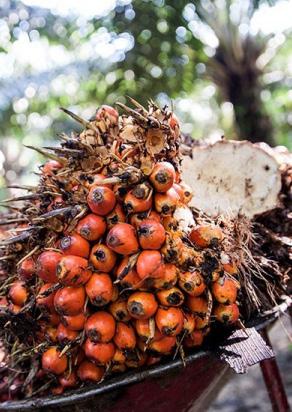
The POB initiative is envisioned to take advantage of these characteristics of the blockchain technology and its focus would be to create a low-cost, trustworthy traceability mechanism. Essentially what is required is an integrated, tamper-proof database system that carries and maintains the digital identity of palm oil, that can be used by all stakeholders across the value chain -from refiners to end-consumers. Currently, the costs associated with concretely establishing the sustainability of palm oil are high –it requires frequent auditing, monitoring and reporting across the value chain (from farm till the manufacturing processes) with possibility of data manipulation along the chain. With the POB initiative, the auditing, monitoring and reporting would only be required at the farm level to create the digital identity for palm oil, and then this information would be tamper-proof across the value chain. The initiative is envisioned to use blockchain technology coupled with latest technological developments in industrial internet , end-consumer mobile apps, web and cloud services etc. to fully digitize the existing supply chains for palm oil. It would be an integrated technology suite solution, implementable across the palm oil sector starting from the source (palm oil growers) to the end-point of consumption. This initiative would also have direct implications for increasing both the value and awareness of sustainable palm oil.
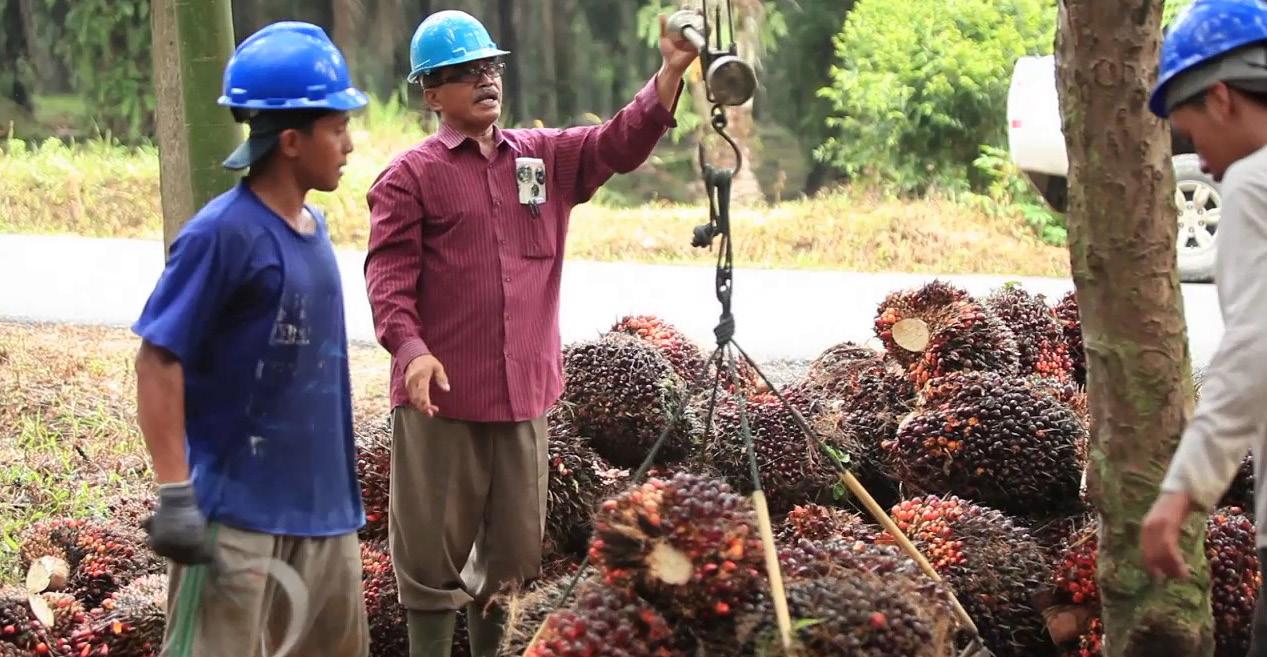
The first and foremost problem to be solved by POB would be the traceability issues associated with the sector. This would include working across the supply chain with different actors to establish (and highlight) the traceability for sustainable palm oil. It would work with the growers to ‘digitize’ all sources of palm oil fruit (based on geo-tagging, growers’ details, land permits, etc.) starting from the large companies and gradually smallholder farmers. Once the traceability for the source is established, it would work with the mills and refiners to ‘retrofit’ technologies (like Internet-of-Things or IoT, redesigned industrial process flows, data management etc.) that build and maintain traceability records for the palm oil, even as it flows through the supply chain. In the end, it would work with the end-consumer facing companies to implement new consumer-interactive packaging for the product that helps consumers understand and become more aware about the products’ sustainability. The initiative would also build consumers-centric technologies (mobile apps, data analytics, etc.) that would enable them to interact with the product using their smartphones and keep a record of their own ‘consumer sustainability profile’. The initiative will rely primarily upon blockchain’s ability to form a low cost, trustworthy and tamper-proof information system and ability of IoT, cloud services etc. to build and maintain robust online data records.
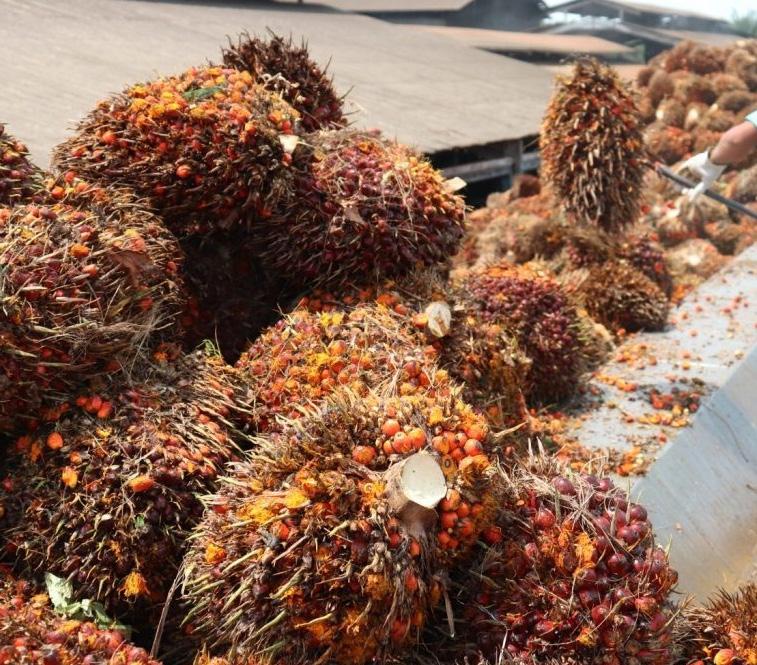
Once a ‘digital palm oil’ asset is created at the farm level, the asset would be traced through the entire value chain as the asset undergoes ‘change-in-forms’ from fruit to oil to refined products as it moves in the value chain. This is similar to segregated supply chain system under the RSPO practices. The IT systems across the value chain would be configured to exclude any palm oil which doesn’t carry a digital identity. Thus, each change-in-form could be traceable back to the original digital asset created at the farm level. Significant ‘last-mile challenges’ are anticipated at the farm level, when the initial information about the digital assets (palm oil fruit) is to be input in the system. This is the one of the most critical points for the digital ecosystem to work. The POB initiative team could work to allocate resources in verifying, investigating and maintaining the integrity of farm level processes and operations. Risk assessments could be further supplemented using tools like satellite imagery, random audits, and using social design schemes (just like how self-help groups help keep the default rates low in microfinance). Learning could also be derived from technology platforms like Airbnb that face similar problems in maintaining the quality of operations for a distributed system. Another last mile problem will be to integrate the blockchain platform and IT systems across the value chain with existing manufacturing systems of palm oil mills, refiners, transportation companies. Theoretically retrofitting the palm oil mill/refinery operations with new technologies like IoT, cloud-based technology infrastructure, etc. is feasible, but requires further assessment. Over the long term, POB aims to create a new ecosystem for ‘sustainable consumerism’. POB could work to minimize the distance between the end consumers and growers to enable higher value interactions between the consumer, brand owner and the growers – for e.g. crowdsourcing funds from the consumers for sustainability upgrades for the farmers, brand interactions to increase consumer awareness and shift/orient consumer behavior, etc. The objective would be to minimize the ‘network power’ of current middlemen in the palm oil value chain (traders, mill owners, refiners etc.). With the advent of mobile phones, all industries are becoming customer-centric and the POB initiative could enable traditional consumer-facing companies also move in this direction. Bringing this ‘consumer visibility’ into the current supply chains enable a move towards a sustainable and responsible consumerism. For the consumer facing companies, this is a mechanism to start building a sustainability based competitive advantage in the market.
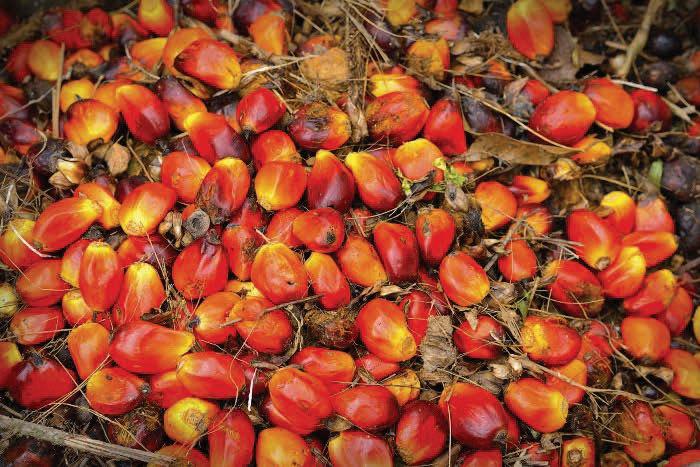
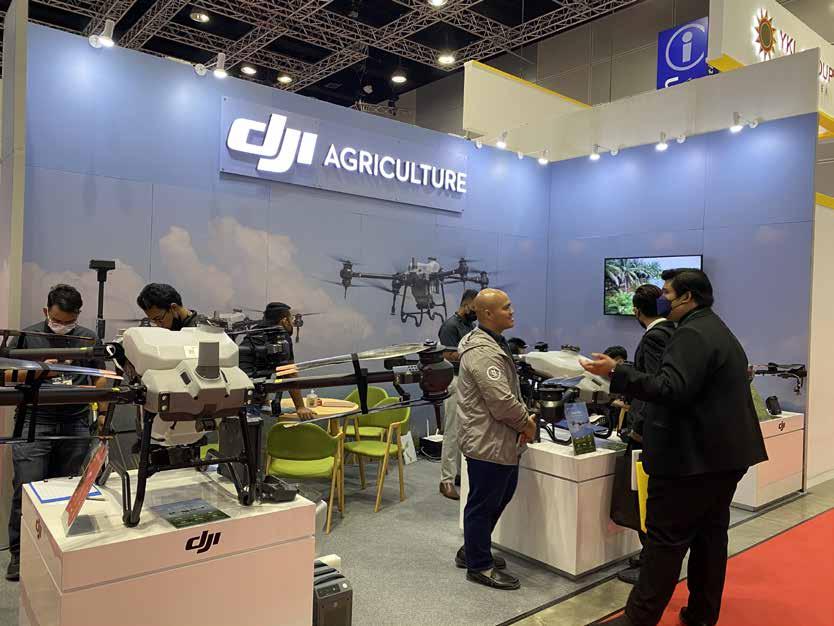

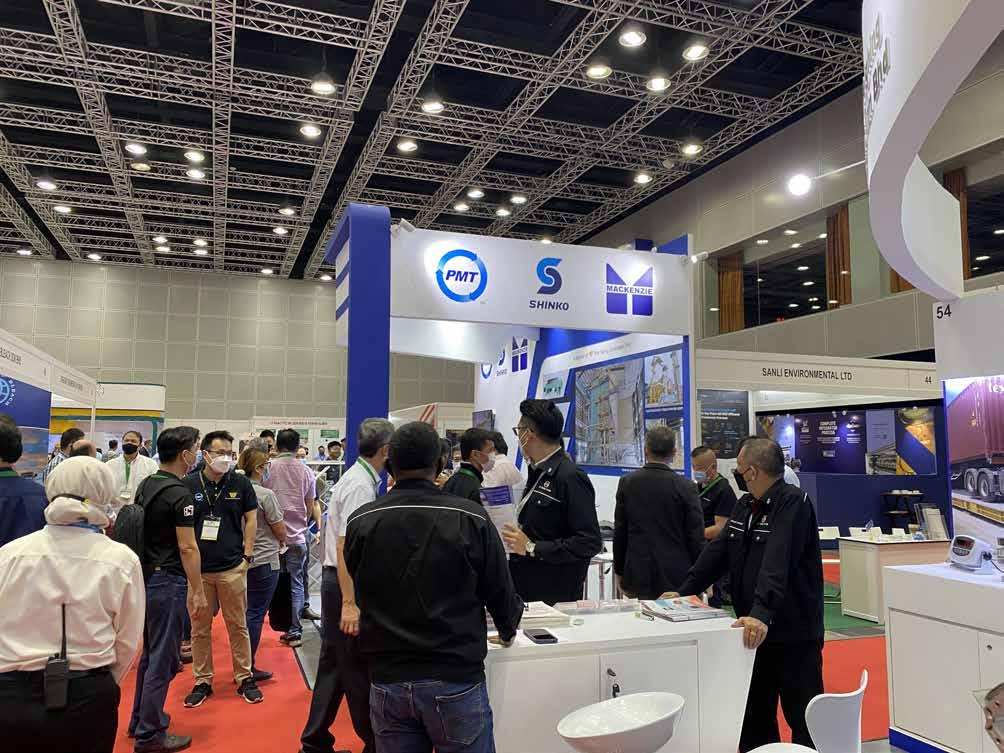




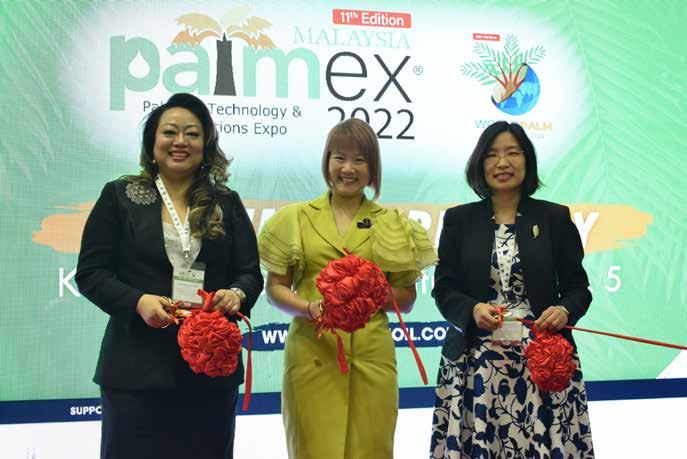
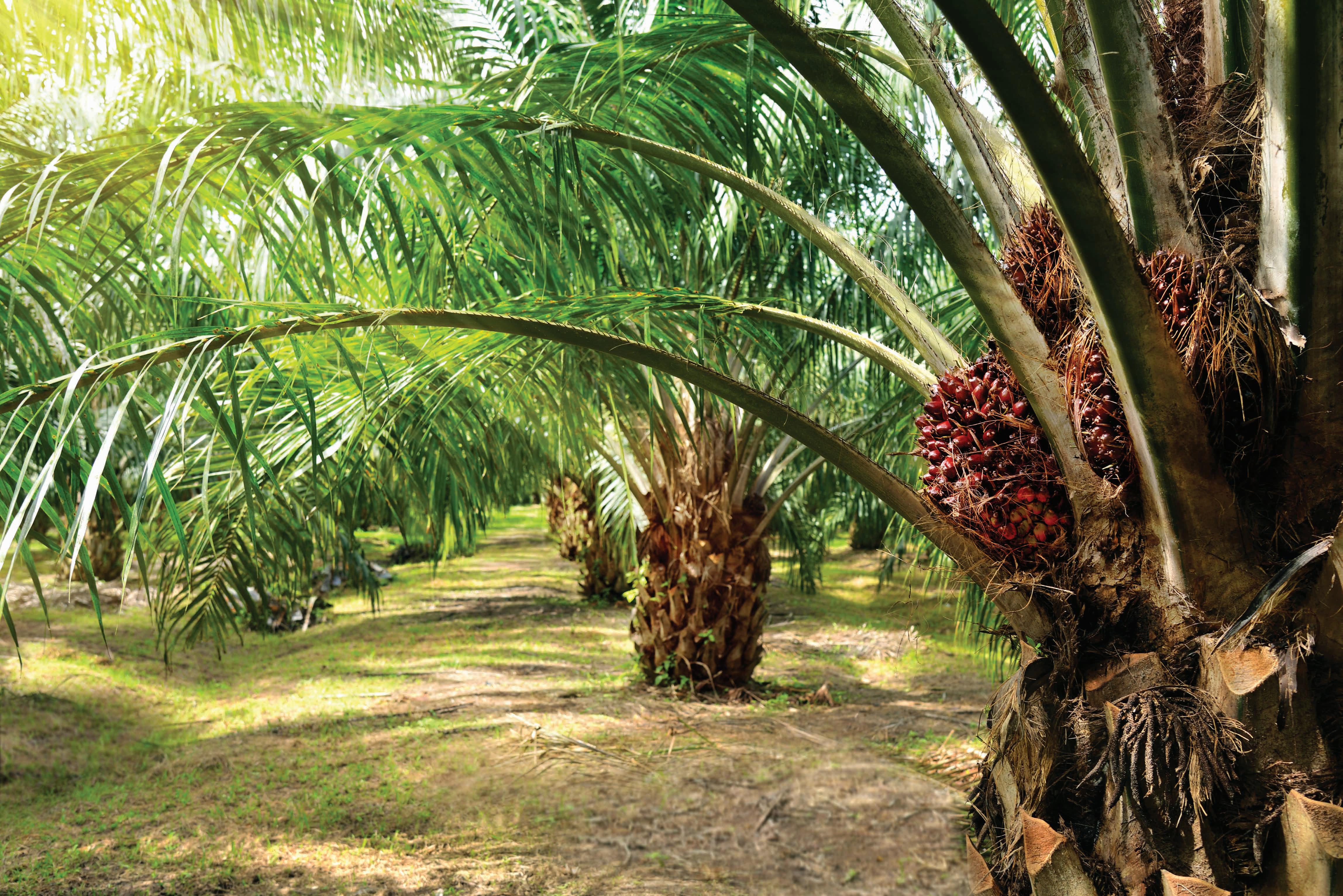




Sektor pertanian telah memainkan peran penting dalam kehidupan ekonomi nasional Indonesia. Salah satu sektor yang menjanjikan dan telah memberikan kontribusi signifikan terhadap pendapatan nasional adalah kelapa sawit. Bersama dengan pertumbuhannya yang kuat, perkembangan kelapa sawit mengundang kontroversi di komunitas internasional terkait masalah sosial, lingkungan, dan terakhir masalah penguasaan tanah. Kampanye negatif yang semakin meningkat memperkuat isu-isu negatif telah memicu sejumlah negara Barat untuk memboikot impor kelapa sawit. Masalah-masalah ini saat ini sedang diatasi dengan munculnya kelapa sawit berkelanjutan bersertifikasi yang indikatornya digunakan di Indonesia saat ini oleh Indonesian Sustainable Palm Oil (ISPO).
Skema ISPO pertama kali diperkenalkan kepada publik pada tahun 2011 melalui peluncuran Peraturan Menteri Pertanian No. 19 Tahun 2011. Skema ini mencerminkan komitmen pemerintah Indonesia dalam meningkatkan tata kelola perkebunan kelapa sawit untuk memenuhi standar keberlanjutan. Pada tahun-tahun awalnya, ISPO wajib diikuti oleh semua perusahaan kelapa sawit, tetapi dengan lahirnya peraturan no. 44 tahun 2020, semua pengusaha termasuk petani kecil diwajibkan untuk mendapatkan sertifikasi ISPO paling lambat pada tahun 2025. Sebagai standar praktik kelapa sawit yang baik, ISPO mengadopsi konsep bisnis berkelanjutan yang memberikan manfaat timbal balik bagi aspek ekonomi, sosial, dan lingkungan. Implementasi ISPO tidak hanya untuk kegiatan perkebunan tetapi juga lebih luas dalam industri hulu berbasis kelapa sawit.
Selain tujuan mulianya untuk meningkatkan kualitas minyak kelapa sawit lokal, implementasi ISPO masih menghadapi masalah yang berpotensi mengurangi keinginan produsen untuk bergabung. Pertama, menurut penelitian sebelumnya di beberapa perusahaan lokal, ISPO mensyaratkan standar praktik pertanian yang lebih tinggi. Para petani mengalami peningkatan biaya tambahan rata-rata sebesar 13% yang sebagian besar bersumber dari pemeliharaan dan pengawasan selain biaya sertifikasi dan surveilans tahunan oleh badan sertifikasi ISPO. Peningkatan biaya tersebut, hingga saat ini, tidak dihargai di pasar sebagai produk premium atau dikompensasi dalam penetapan harga oleh regulasi. Kedua, masih banyak petani yang tidak siap untuk mengadopsi ISPO sebagai hal yang wajib, terutama petani kecil. Indikasi area tanah di hutan, tidak memiliki izin usaha pertanian dari badan berwenang, dan kurangnya praktik pertanian yang baik adalah faktor-faktor paling umum yang membuat petani kecil menjauhi sertifikasi ISPO. Pertanyaan kemudian muncul tentang bagaimana pasar akan bereaksi terhadap ISPO sebagai program wajib pada tahun 2025, apakah ISPO akan dianggap sebagai keunggulan atau beban tambahan bagi industri.
Secara teoritis, pasar dianggap efisien secara ekonomi ketika konsumen dan produsen secara agregat telah memaksimalkan surplus pada titik keseimbangan tertentu. Sifat pasar minyak kelapa sawit menunjukkan bahwa permintaan lebih dominan dibandingkan pasokan sebagai konsekuensi dari pohon yang sudah lama berproduksi yang memaksa petani untuk terus menjual hasil panen dengan harga apa pun. Hal ini mendorong permintaan untuk menjadi lebih sensitif terhadap harga daripada pasokan. Kehadiran ISPO pada dasarnya akan dianggap sebagai ketidakefisienan pasar karena sifatnya yang mempengaruhi perubahan keseimbangan pasar. Pemasok terpaksa beradaptasi dengan mengubah struktur biaya sementara pembeli harus memutuskan apakah akan menerima konsekuensi kenaikan harga atau keluar dari pasar dan mencari produk “penawaran bagus” lainnya. Untuk menjawab pertanyaan di atas, beberapa skenario telah disiapkan untuk memperkirakan reaksi pasar dari kedua sisi pasokan dan permintaan terhadap implementasi ISPO pada tahun 2025.
Skenario 1: Pemerintah Mewajibkan ISPO sebagai Satu-satunya Standar untuk Minyak Kelapa Sawit Dalam skenario ini, pemerintah mengkompensasi biaya tambahan dari implementasi ISPO dalam regulasi harga jual tandan buah segar (TBS). Regulasi pembatasan perdagangan juga diterapkan untuk menegakkan standar tunggal minyak kelapa sawit Indonesia dengan menggunakan ISPO. Skenario ini akan mengakibatkan perubahan dalam pasar di mana struktur biaya produksi terpengaruh dan harga jual mengalami peningkatan. Sementara itu, kemungkinan terjadinya kelangkaan unit penjualan potensial terjadi sebagai dampak dari penurunan besar dari kontribusi petani kecil akibat standar masuk yang dibuat oleh ISPO. Seperti dalam ilustrasi, perubahan struktur biaya direpresentasikan oleh pergeseran garis pasokan dari S ke S1 yang menunjukkan biaya produksi minyak kelapa sawit Indonesia yang lebih tinggi untuk mencapai kualitas yang lebih baik. Volume pasokan yang menyusut dari petani kecil direpresentasikan oleh penurunan unit dari Q0 menjadi Q1. Oleh karena itu, harga jual mengalami peningkatan dari P0 menjadi P1 dari mana keseimbangan baru di pasar ditetapkan dari titik A ke B.
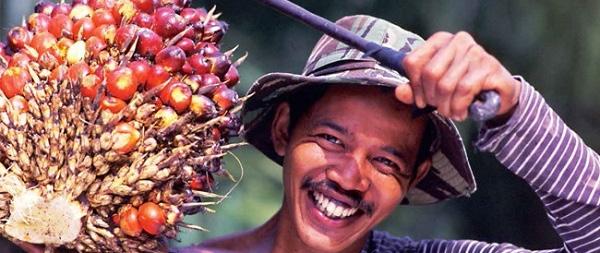
Pada pandangan pertama, dari sudut pandang harga, skenario 1 menunjukkan bahwa ISPO menghasilkan tren positif dalam memperbarui produk minyak kelapa sawit menjadi lebih premium dengan menerapkan aspek keberlanjutan. Namun, masih ada isu yang harus dihadapi sebelum mencapai kesimpulan tersebut seperti (1) Berapa banyak pembeli yang tepatnya memperhatikan keberlanjutan?, (2) Apakah pembeli keberlanjutan tersebut mengakui ISPO sebagai sertifikasi yang terpercaya?, dan (3) Bagaimana produk non-ISPO akan merespons hambatan perdagangan dari ISPO?. Pertanyaanpertanyaan tersebut relevan karena saat ini UE adalah satu-satunya pembeli yang menuntut kriteria keberlanjutan yang ketat pada produk pertanian impor. Negara-negara tujuan ekspor utama lainnya seperti Cina, India, dan Pakistan lebih “sensitif terhadap harga” daripada mengekspos preferensi terhadap label produk berkelanjutan. Selain itu, ISPO masih belum mendapatkan pengakuan secara global terutama di pasar UE untuk menangani masalah keberlanjutan. Respon yang kurang dari pembeli asing terhadap ISPO dalam menangani masalah keberlanjutan secara otomatis membawa beban instan kepada para petani lokal yang biaya tambahannya tidak dihargai dengan peningkatan harga jual yang lebih tinggi. Sementara itu, pasar ilegal baru berpotensi muncul untuk menyerap stok petani kecil dengan harga yang terdepresiasi. Harga ini diprediksi akan jauh lebih rendah daripada yang diterima petani kecil sebelum wajibnya ISPO. Secara bertahap, para petani akan keluar dari pasar dan beralih ke tanaman lain karena minyak kelapa sawit tidak lagi menjadi bisnis yang menguntungkan. Sebagai konsekuensinya, akan ada kelangkaan stok minyak kelapa sawit di mana pembeli terdorong untuk mengubah preferensi menjadi minyak nabati alternatif. Dari titik ini, minyak kelapa sawit sepenuhnya ditinggalkan oleh para pelakunya yang menurunkan pangsa pasarnya lebih rendah dari level saat ini (seperti dalam ilustrasi keseimbangan pasar baru yang direpresentasikan oleh titik c).
Skenario 2 ISPO hanyalah sebuah pilihan
ISPO tidak wajib, melainkan hanya program sukarela bagi pemasok yang bersedia meningkatkan produk mereka dengan label keberlanjutan. Sebagai kompensasi, pemerintah memberikan insentif melalui harga jual yang lebih tinggi dibandingkan dengan produk tanpa ISPO. Dalam perspektif ekonomi, skenario ini disebut strategi optimasi keuntungan di mana pemasok dengan tepat mengetahui karakter pembeli dan dapat mengelompokkannya sehingga harga didiskriminasi untuk memaksimalkan surplus potensial dari perdagangan setiap kelompok pembeli. Dengan memiliki label ISPO, pemasok mengharapkan bahwa mereka akan merebut pasar yang peduli pada keberlanjutan dan mengenakan harga yang lebih tinggi untuk produk premium. Ini seharusnya menjadi win-win bagi kedua pihak, karena tidak ada paksaan bagi pemasok untuk memenuhi serangkaian standar produk dan pembeli memiliki fleksibilitas dalam memilih jenis produk. Kembali ke ilustrasi, dalam skenario ini, pemasok menciptakan 2 struktur biaya yang berbeda di mana produk ISPO dan non-ISPO direpresentasikan oleh garis S1 dan S, secara berturut-turut. Dengan menahan permintaan tetap pada minyak kelapa sawit, pembeli dibagi menjadi 2 kelompok, pembeli ISPO dan non-ISPO yang meminta minyak kelapa sawit sebanyak unit Q1 dan unit Q1-Q0, secara berturut-turut. Interaksi antara kelompok permintaan-pasokan tersebut membagi pasar minyak kelapa sawit menjadi dua yang direpresentasikan oleh titik A (pasar non-ISPO) dan B (pasar ISPO) pada saat yang sama.
Secara keseluruhan, tidak ada perubahan pangsa pasar minyak kelapa sawit, namun ada peningkatan nilai surplus dari para petani karena pasar ISPO. Kasus ini terbukti dengan menerapkan ISPO sebagai pilihan, industri berhasil memanfaatkan surplus dari permintaan potensial di pasar keberlanjutan. Namun, skenario ini mungkin tidak layak jika masalah yang sama seperti dalam skenario pertama terus terjadi. Pertanyaan siapa yang
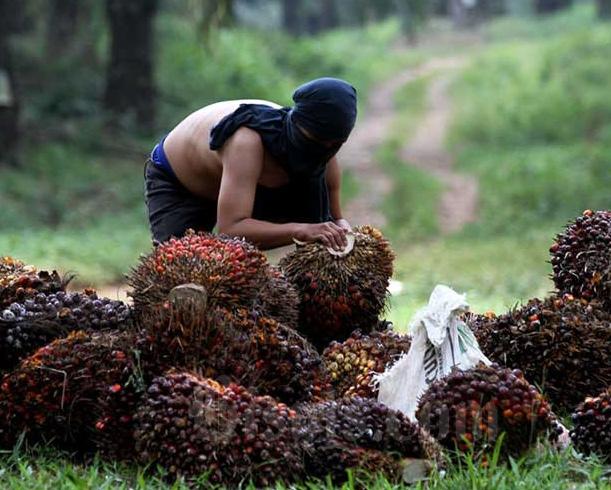
bersedia membeli produk berkelanjutan dengan harga lebih tinggi sebagai kompensasi dan sejauh mana pasar internasional menerima ISPO sebagai sertifikasi minyak kelapa sawit berkelanjutan yang terpercaya perlu diatasi sebelum kesimpulan di atas tercapai. Jika masalah tersebut belum teratasi, pasar ISPO seperti yang direpresentasikan pada titik B dalam ilustrasi tidak akan benar-benar terwujud. Pemasok akan memandang ISPO sebagai prosedur yang kurang efektif karena harga jual yang lebih tinggi sesuai dengan regulasi pemerintah tidak mendapat respons positif dari pembeli yang mengharapkan minyak kelapa sawit dijual dengan harga P0 atau dengan harga yang sama seperti produk non-ISPO. Secara tidak sadar, karena tidak ada kewajiban, ISPO tidak akan dipilih oleh para petani untuk mengoptimalkan margin mereka. Mereka akan lebih memilih untuk tetap berada di pasar saat ini (non-ISPO) atau menargetkan sertifikasi lain yang diakui oleh pasar UE daripada ISPO.
Menurut kedua skenario di atas, promosi massal ISPO dari semua aspek adalah rekomendasi utama daripada fokus pada pengumpulan sebanyak mungkin anggota ISPO. Industri akan merespons regulasi ISPO sebagai sebuah beban jika biaya tambahan yang mereka keluarkan tidak tercermin dalam peningkatan nilai bisnis mereka. Melalui promosi yang terencana dengan baik, ISPO dapat menciptakan pasar sendiri sehingga banyaknya anggota akan meningkat secara seiringan. Kedua, peningkatan praktik pertanian yang baik benar-benar mendesak untuk direalisasikan. Dalam hal ini, petani kecil selalu menjadi korban umum yang selalu menjadi headline dalam setiap diskusi. Disepakati bahwa intervensi pemerintah diperlukan untuk mendukung petani kecil agar tetap memenuhi permintaan keberlanjutan. Namun, intervensi bukan hanya tentang istilah keuangan, tetapi harus dalam rangkaian program yang mencakup bantuan praktik pertanian secara harian, akses ke bibit unggul dan pupuk, dan yang paling penting adalah koordinasi lintas kementerian untuk menyelesaikan konflik lahan. Melalui program yang ketat tersebut, pemerintah bertujuan untuk menjalankan bisnis petani kecil agar menjadi komersial dan mandiri. Terakhir, penyederhanaan birokrasi tata kelola pertanian. Saat ini, ISPO bukanlah satu-satunya prasyarat untuk bisnis minyak kelapa sawit. Sebelum itu, Sertifikat Pendaftaran Penanaman Perkebunan atau yang biasa dikenal di industri kelapa sawit sebagai izin masuk tingkat pertama ke bisnis pertanian. Secara hukum, sertifikat ini dikeluarkan oleh kantor distrik perkebunan dan pertanian (Dinas Perkebunan Kabupaten) yang bertujuan agar pemerintah memastikan bahwa perkebunan yang diajukan telah memenuhi semua kriteria praktik pertanian yang baik. Pada dasarnya, aspek yang diperlukan dalam STDB dicakup dalam kriteria ISPO, sehingga akan ada kelebihan prosedur dengan memaksa para petani mengambil ISPO. Oleh karena itu, penyederhanaan birokrasi ini akan menjadi insentif non-keuangan lainnya bagi industri yang dapat menghemat anggaran dan waktu.
The agricultural sector has been playing important role in Indonesian national economics life. One of the promising sectors that has been contributing significantly to national income is palm oil. Along with its robust growth, the development of palm oil invites controversy in the international community pertaining to social, environmental, and lastly land tenurial issues. The growing negative campaign amplifying negative issues has triggered numbers of western countries to boycott palm oil imports. These problems are currently being addressed by the emergence of certified sustainable palm oil from which the indicator is used in Indonesia currently by Indonesian Sustainable Palm Oil (ISPO).
ISPO scheme was first introduced to public in 2011 through the launching of Minister of Agricultural Regulation No. 19 of 2011. This scheme reflected Indonesian government’s commitment in improving the governance of palm oil estate governance to meet the standard of sustainability. In its first years, ISPO is obliged to be followed by all palm oil companies, but the inception of regulation no. 44 of 2020 has mandated to all growers including smallholders to be certified by ISPO at the latest by 2025. As a standard of good palm oil practices, ISPO adopts the concept of sustainable business which delivers mutual benefit to economics, social, and environmental aspects. The Implementation of ISPO is not only for estate activities but broader in palm-oil based downstream industries.
Apart from its noble aim to level up local palm oil quality, implementation of ISPO still encounters problems that potentially discourage producer’s willingness to join. First, according to preceding research in a few local companies found ISPO requires higher standard of farming practice. Growers experienced additional cost in average by 13% which mostly sourced from maintenance and supervising besides the certification and annual surveillance cost by ISPO certification body. That cost increase, until nowadays, has been neither appreciated in the market as a premium product nor compensated in pricing by regulation. Second, there are still many growers who are not prepared to have ISPO as a mandatory mainly from smallholders. Indication of land area in forest, no agricultural business license from authoritative body, and lack of good agricultural practice are the most common factors found which keep smallholders far away from ISPO certification. Question then arises accordingly of how market would react to ISPO as mandatory program in 2025, would ISPO be perceived as a leverage or another burden to industry.
Theoretically, the market is perceived to be economically efficient when aggregate consumer and producer have maximized surplus at particular equilibrium point. The nature of palm oil market shows demand is overpowering supply as the consequence of long-producing trees which force farmers to keep selling crops at any price. This promotes demand to be more price-sensitive than supply. The presence of ISPO by sense will be perceived as a market inefficiency since its nature impacts the change of market equilibrium. Suppliers are forced to adapt by changing cost structure while buyers must decide either to accept the consequence of price increase or exit the market and find another “good deal” product. To answer the questions above following scenarios are prepared to forecast market reactions from both supply and demand side towards ISPO implementation in 2025.
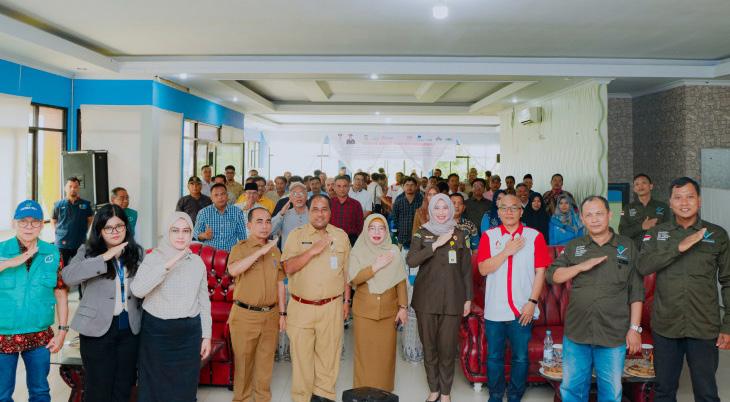
In this scenario the government compensates additional cost from ISPO implementation in fresh fruit bunch (FFB) selling price regulation. Regulation of trading restriction is also applied to enforce single standard of Indonesian palm oil by using ISPO. This scenario would lead to a change in market where the cost structure of production is affected and appreciates selling price. Meanwhile, the scarcity of selling units is potentially to occur as an impact of huge drop from smallholders’ contribution due to the entry standard created by ISPO. As in the illustration, the change of cost structure is represented by the shifting line of supply from S to S1 which indicates Indonesia cost palm oil production higher to reach better quality. The shrinking volume of supplies from smallholders is represented by the unit drop from Q0 to Q1. Therefore, the selling price is experiencing an increase from P0 to P1 from which a new equilibrium in the market is established from point A to B.
In a glance, from price perspective, scenario 1 shows ISPO results a positive trend in rebranding palm oil product more premium by implementing sustainability aspects. However, there are still issues to encounter prior to reach that conclusion such as (1) How many precisely the buyer of sustainability?, (2) Do those sustainability-buyers acknowledge ISPO as a trusted certification?, and (3) How the non-ISPO product would respond to the barrier of trade from ISPO?. Those questions are relevant since currently the EU is the only buyer that requires strict criteria of sustainability on imported agricultural products. Other main export-destination countries such as China, India, and Pakistan are more “price-sensitive” rather than exposing preference to sustainable-product label. Furthermore, ISPO still has no worldwide recognition particularly in the EU market to address sustainability issues. Less response from foreign buyers to ISPO in addressing sustainability issues automatically brings instant burden to local growers which its additional cost is not being appreciated by higher selling price. Meanwhile, a new illegal market is potentially to emerge to absorb smallholders’ stock at depreciated price. This price is predicted to be much lower than smallholders receive before the mandatory of ISPO. Gradually, growers would exit the market and change the crops since palm oil is no longer a favorable business. As a consequence, there would be a scarcity of palm oil stock from which buyers are pushed to alter preference into alternative vegetable oils. From this point, palm oil is completely abandoned by its players which drags its market share down lower than current level (as in illustration the new market equilibrium represented by point c).
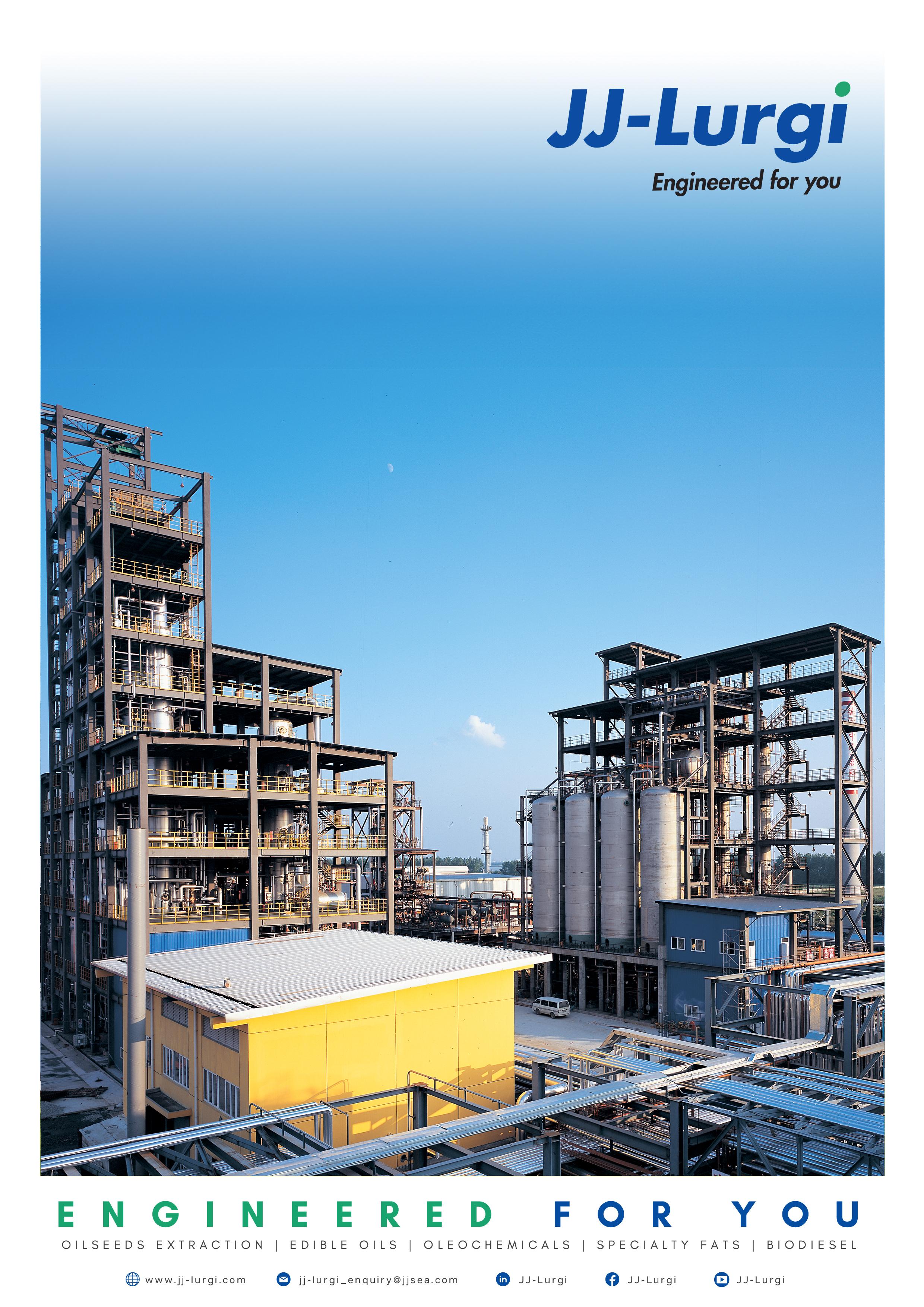

Scenario 2 ISPO is just an option
ISPO is not mandatory but rather than just a voluntary program for suppliers who are willing to upgrade their product with sustainability label. As compensation, the government gives incentive through higher selling price in contrast to products without ISPO. In economics perspective, this scenario is called profit optimizing strategy where suppliers precisely know the character of buyers and can group them therefore price is discriminated to maximize potential surplus from trading of each group of buyers. By having ISPO label, suppliers are expecting they would have seized sustainable-concern market and charging them higher price for premium product. This is supposed to be a win-win for both suppliers and buyers since there is no force for suppliers to meet a set of products standard and buyers have flexibility in choosing type of products. Back to the illustration, in this scenario, suppliers are creating 2 distinct cost structures where ISPO and non ISPO products are represented by line S1 and S respectively. By holding constant demand on palm oil, buyers are divided into 2 groups, purchasers of ISPO and non-ISPO which are demanding palm oil as many as Q1 unit and Q1-Q0 unit, respectively. The interaction of those groups of demand-supply are dividing the market of palm oil in two which are represented by point A (the non-ISPO market) and B (the ISPO market) at the same time.
In aggregate, there is no change of palm oil market share, yet there is an increase of surplus value from growers due to ISPO market. This case is proven by implementing ISPO as an option industry is successfully leveraging surplus from potential demand in sustainability market. However, this scenario may not be viable if the same issue as in the first scenario continues to occur. Questions of who are willing to buy sustainable product with higher price as compensation and to what extend international market is accepting ISPO as trusted sustainable palm oil certification need to address prior the conclusion above is reached. If those issues have not been resolved, market ISPO as represented at point B in illustration would not really be realized. Suppliers would perceive ISPO as a less effective procedure since its higher selling price as regulated by the government has no positive respond from buyers which are expecting palm oil to be sold at P0 or at the same price as non-ISPO product. Subconsciously, since there is no obligation, ISPO would not be preferable by growers to optimize their margin. They would prefer to stay in current market (the non ISPO) or targeting another certification that is acknowledged by the EU market instead of ISPO.
According to both scenarios above, massive promotion of ISPO from all aspects is the ultimate recommendation rather than focusing on gathering as many as member of ISPO. Industry would respond to ISPO regulation as a burden if extra cost that they spend is not reflected by the increase of their business value. Through a well-planned promotion, ISPO could be creating its market as many as its member will increase accordingly. Secondly, the improvement of good agricultural practices is truly urgent to be realized. In this case, smallholders are always the common-victims that always being a headline in every discussion. It is agreed that government intervention is necessary to support smallholders to keep up to sustainability demand. However, intervention is not just all about financial term, but it must be in a set of programs covering assistance of farming practices in daily basis, access to premium seedlings and fertilizers, and the most important is inter-ministerial coordination to sort out land conflict. Through that rigorous program, the government targets to carry out smallholders business to be commercial and independent. The last is, simplification of bureaucracy of agricultural governance. Currently, ISPO is not the only pre-requirement for palm oil business. Prior to that, Certificate of Registration of Plantation Cultivation or so called by STDB is commonly known around palm oil industry as the first level of entry permit into agricultural business. By law, this certificate is released by the district office of plantation and agriculture (Dinas Perkebunan Kabupaten) which is aiming the government to ensure that the proposed plantation has meet all good agricultural practices criteria. Essentially, aspects required in STDB are covered in ISPO criteria, so that there would be a redundancy of procedure by imposing growers taking ISPO. Therefore, simplification of this red tape would be another non-financial incentive to industry that could save budget and time.

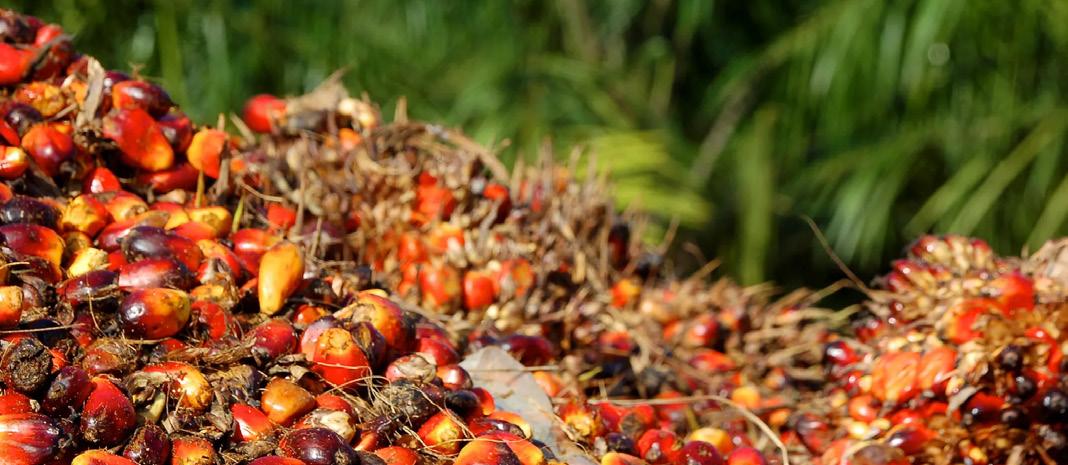
Meskipun manfaat dan risiko budidaya kelapa sawit sering diperdebatkan di panggung global, wawasan tingkat regional dan lokal sering kali tidak hadir dalam percakapan semacam itu. Namun, wawasan semacam itu menjadi pusat perhatian dalam sebuah ‘talk show’ yang diselenggarakan di Jakarta pada 11 Januari 2024, di mana para pemimpin regional dari wilayah utama penghasil kelapa sawit Indonesia membahas kontribusi industri kelapa sawit terhadap pendapatan dan kesejahteraan regional, serta tantangan yang menyertainya dalam sektor tersebut.
Acara tersebut diselenggarakan sebagai bagian dari sebuah studi oleh Pusat Penelitian Kehutanan Internasional dan Agroforestri Dunia (CIFOR-ICRAF) untuk meningkatkan kesiapan kabupaten dalam melaksanakan program yurisdiksi (JP) melalui pendekatan partisipatif, melibatkan banyak pemangku kepentingan, dan inklusif gender.
Para pemimpin - yang mewakili tiga kabupaten di Kalimantan dan satu kabupaten di Sumatra - menekankan pentingnya praktik berkelanjutan, manfaat bagi masyarakat lokal, dan potensi pertumbuhan industri. Diskusi mereka menyoroti pendekatan dan tantangan yang beragam yang dihadapi setiap kabupaten dalam memaksimalkan manfaat industri kelapa sawit sambil memastikan keberlanjutan lingkungan.
Kartiyus, sekretaris regional Kabupaten Sintang di Kalimantan Barat, menyoroti kontribusi signifikan kelapa sawit terhadap ekonomi kabupaten: ini menyumbang 23,3 persen dari pendapatan regional bruto dan secara besar-besaran bertanggung jawab atas pertumbuhan tahunan saat ini sebesar 4-5 persen dalam PDB regional. Dia mengatakan bahwa ada 40 perusahaan kelapa sawit yang beroperasi di kabupaten tersebut, yang mengelola luas gabungan 201.000 hektar, dan bahwa perusahaan-perusahaan ini telah menangani masalah isolasi regional dengan mengambil tugas pembangunan infrastruktur.
Edy Purwanto Casmani, seorang perwakilan dari Kabupaten Pulang Pisau di Kalimantan Tengah, menekankan pentingnya kelapa sawit bagi komunitas petani kecil lokal. Dengan area perkebunan aktif sekitar 8.470 hektar dan sembilan perusahaan kelapa sawit, kabupaten tersebut telah melihat peningkatan lapangan kerja lokal dan manfaat ekonomi; Casmani mencatat bahwa kelapa sawit menjadi pilihan populer di kalangan penduduk setempat karena pengembalian investasi yang menguntungkan. Di Sumatra, Zulkifli - asisten bupati bidang pemerintahan dan kesejahteraan masyarakat untuk Kabupaten Pelalawan mengatakan bahwa industri kelapa sawit telah membuat kabupaten tersebut menjadi yang kedua paling makmur di Provinsi Riau dengan tingkat inflasi terendah. Bahkan pandemi COVID-19 tidak secara serius memengaruhi kesejahteraan ekonomi kabupaten tersebut, katanya.
Potensi untuk manfaat lebih lanjut melalui pendekatan yurisdiksi
Herry Purnomo, yang memimpin Program Negara Indonesia di CIFOR-ICRAF, menjelaskan selama acara tersebut bahwa studi yang menyeluruh bertujuan untuk “membangun basis pengetahuan untuk desain program yurisdiksi (JP) yang responsif secara lokal dan memungkinkan implementasi JP secara luas, serta merancang bersama Teori Perubahan, Teori Aksi, dan Kerangka Pemantauan Evaluasi (TTM) untuk mendukung implementasi JP baik di tingkat kabupaten maupun nasional.”
Talkshow itu sendiri merupakan bagian dari workshop ketiga untuk menyebarkan kemajuan dan hasil penelitian sejauh ini, berbagi pengalaman dalam mengembangkan inisiatif JP, dan meminta masukan untuk rancangan TTM, katanya. “Di tingkat nasional, kami telah membuat kemajuan dengan merancang bersama TTM berdasarkan pelajaran yang dipetik di empat kabupaten penelitian dan menciptakan model Simulasi Keberlanjutan Minyak Sawit Indonesia (SIPOS),” katanya.
Perencanaan untuk keberlanjutan
Terkait dengan keberlanjutan, Kartiyus mencatat bahwa Sintang telah memiliki rencana aksi regional untuk minyak kelapa sawit berkelanjutan sejak tahun 2018 dan bahwa ini akan diperbarui pada tahun 2024. Sesuai dengan itu, semua perkebunan kelapa sawit di Sintang berada di area non-hutan dan secara legal dialokasikan untuk penggunaan komersial dan perumahan. Semua pemegang izin perkebunan juga harus menyisihkan setidaknya 7 persen dari area yang mereka kelola untuk konservasi. Dia mengatakan bahwa semua 40 perusahaan yang beroperasi di wilayah tersebut baik perkebunan swasta maupun perkebunan masyarakat memiliki sertifikasi Indonesia Sustainable Palm Oil (ISPO) dan harus menunjukkan kepatuhan yang ketat terhadap standar keberlanjutan. Dia juga menyebutkan bahwa 71 perusahaan yang sebelumnya beroperasi di distrik tersebut telah dicabut izinnya karena gagal memenuhi persyaratan ini, dan bahwa meskipun ada kekacauan tersebut, distrik tersebut berhasil menjaga tingkat pengangguran yang rendah.
Sesuai dengan rekan-rekannya di Kalimantan, Zulkifli menyoroti komitmen kabupatennya terhadap minyak kelapa sawit berkelanjutan, yang mencakup pembentukan lembaga pendidikan tinggi Indonesia yang hanya didedikasikan untuk ilmu kelapa sawit. Dia mengatakan masalah lingkungan telah menjadi semakin sentral dalam pengambilan keputusan distrikterutama karena masalah tersebut berkaitan dengan mencegah kebakaran hutan. Dia merinci upaya seperti pembelian ekskavator untuk pembersihan lahan yang aman dan pembentukan satuan tugas berbasis desa untuk melindungi lahan gambut dari kebakaran.
Setelah mencapai konsensus tentang perlunya produksi minyak kelapa sawit yang berkelanjutan yang seimbang antara perlindungan lingkungan, pertumbuhan ekonomi, dan kesejahteraan sosial, para pemimpin setuju bahwa komitmen berkelanjutan untuk mengatasi tantangan, terutama terkait dengan kepemilikan tanah, tetap menjadi hal krusial. Casmani berbagi harapannya bahwa pemerintah pusat akan membantu menangani masalah legalitas tanah di wilayahnya. “Lebih baik [bagi pemerintah] mendukung fasilitasi perkebunan masyarakat, dan alokasi dana bagi hasil kelapa sawit yang fleksibel untuk mengembangkan kabupaten,” katanya.
While the benefits and pitfalls of cultivating palm oil are often debated on the global stage, regional and local-level insight is frequently missing from such conversations. Such insight was front and center, however, of a ‘talk show’ held in Jakarta on 11 January 2024, in which regional leaders from Indonesia’s main palm oil-producing areas discussed the contributions of the palm oil industry to regional incomes and welfare, as well as the accompanying challenges within the sector.
The event was held as part of a Centre for International Forestry Research and World Agroforestry (CIFOR-ICRAF) study to improve the readiness of the districts to implement jurisdictional programs (JP) through participatory, multi-stakeholder, and gender-inclusive approaches.
The leaders who variously represented three districts in Kalimantan and one district in Sumatra underscored the importance of sustainable practices, local community benefits, and the industry’s potential for growth. Their discussion highlighted the diverse approaches and challenges each district faces in maximizing the benefits of the palm oil industry while ensuring environmental sustainability.
Kartiyus, the regional secretary of Sintang District in West Kalimantan, highlighted the significant contribution of palm oil to the district’s economy: it accounts for 23.3 percent of gross regional income and is largely responsible for the current annual growth of 4-5 percent in regional GDP. He said that there are 40 palm oil producing companies operating in the district, which manage a combined area of 201,000 hectares, and that these companies have addressed regional isolation issues by taking on the task of infrastructure development.
Edy Purwanto Casmani, a representative of Pulang Pisau District in Central Kalimantan, emphasized the importance of palm oil for the local smallholder community. With active plantation areas of around 8,470 hectares and nine palm oil companies, the district has seen a rise in local employment and economic benefits; Casmani noted that palm oil is a popular choice among locals due to its profitable returns. In Sumatra, Zulkifli the regent assistant on government and community welfare for Pelalawan District said that the palm oil industry has made the district the second most prosperous in Riau Province with the lowest inflation rate. Even the COVID-19 pandemic did not seriously impact the district’s economic wellbeing, he said.
Herry Purnomo, who directs the Indonesia Country Programme at CIFOR-ICRAF, explained during the event that the overarching study seeks to “build a knowledge base for jurisdictional program (JP) design that is locally responsive and enables JP implementation at scale, and co-design a Theory of Change, Theory of Action, and Monitoring Evaluation Framework (TTM) to support JP implementation at both district and national levels.”
The talkshow itself formed part of the third workshop to disseminate the progress and results of the research so far, share experiences of developing JP initiatives, and solicit inputs for the draft TTM, he said. “At the national level, we have made progress by co-designing the TTM based on lessons learned in the four research districts and creating the Simulation of Indonesia Palm Oil Sustainability (SIPOS) model,” he said.

On the subject of sustainability, Kartiyus noted that Sintang has had a sustainable palm oil regional action plan in place since 2018 and that this will be updated in 2024. In accordance with that, all palm oil plantations in Sintang are in non-forested areas and are legally allocated for commercial and residential use. All plantation permit holders must also set aside at least 7 percent of the area they manage for conservation. He said that all 40 companies operating in the region both private and community plantations are Indonesia Sustainable Palm Oil (ISPO) certified and must show strict compliance with sustainability standards. He also mentioned that 71 companies formerly operating in the district had had their permits revoked for failing to meet these requirements, and that despite this upheaval the district had succeeded in maintaining low unemployment rates.
In line with his Kalimantan counterparts, Zulkifli highlighted his district’s commitment to sustainable palm oil, which includes the establishment of Indonesia’s only higher educational institution dedicated to palm oil science. He said environmental issues had become increasingly central to the district’s decisionmaking especially as such issues pertain to preventing forest fires. He detailed efforts such as purchasing excavators for safe land clearing and forming village-based task forces to protect peatlands from fire.
Following consensus on the need for sustainable palm oil production that balances environmental protection, economic growth, and social welfare, the leaders agreed that ongoing commitment to overcoming challenges, particularly related to land tenure, remained critical. Casmani shared his hopes that the central government will help to address the problem of land legality in his region. “It is better [for the government] to support the facilitation of community plantations, and flexible allocation of palm oil revenue-sharing funds to develop the district,” he said.

“Saya telah bertanya kepada banyak insinyur kimia apa yang menginspirasi mereka untuk belajar tentang subjek tersebut. Apakah mereka ingat momen ketika mereka menyadari bahwa mereka ingin bergabung dengan profesi ini? Bagi Bing Shen How, bagian dari komunitas besar peneliti yang bertujuan untuk meningkatkan kinerja lingkungan dari industri minyak kelapa sawit yang besar di Malaysia, itu adalah momen ‘pintu geser’. Dia mendaftar di universitas untuk belajar teknik mesin namun menemukan dirinya menghadiri acara induksi untuk insinyur kimia.”
“Saya mulai menyadari bahwa saya ingin menjadi orang yang membangun proses,” katanya. “Saya pikir insinyur lain juga bisa mengubah dunia tetapi dari sudut pandang saya, proses berada di tengah semua perubahan tersebut. Ini sangat penting.” Tidak lama kemudian, dia menemukan dirinya berada di kantor kepala sekolah meminta izin untuk pindah jurusan. “Jika saya memutuskan untuk tidak menghadiri induksi itu, hidup saya akan benar-benar berbeda.”
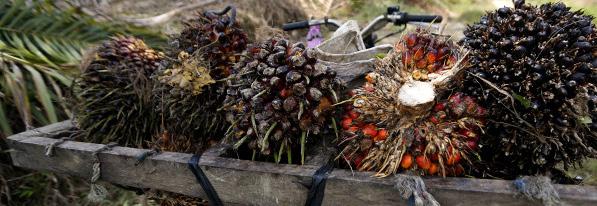
How kini adalah dosen senior di Universitas Teknologi Swinburne di Sarawak di mana dia mengajar desain pabrik proses dan mengawasi mahasiswa pascasarjana yang berfokus pada ekonomi sirkular, penggunaan biomassa, dan optimalisasi rantai pasok. Untuk penelitian pribadinya, dia telah bekerja sama dengan apa yang dia gambarkan sebagai matematikawan hardcore di Hungaria. Dia membantu mereka mengembangkan perangkat lunak yang dapat digunakan desainer proses industri untuk mengoptimalkan jaringan penukar panas. Dia juga memodelkan seperti apa jaringan industri optimal di Semenanjung Malaysia jika ada upaya bersama untuk mendapatkan metana yang dihasilkan di pabrik minyak kelapa sawit dan tempat pembuangan sampah ke pengguna industri.
Pada tahun 2022, dia menjadi salah satu penulis bersama artikel yang diterbitkan dalam jurnal Chemical Engineering Research and Design dari IChemE yang menyoroti teknologi masa depan yang mungkin membantu teknik kimia meningkatkan keberlanjutan industri minyak kelapa sawit. Ini termasuk penggunaan kecerdasan buatan untuk mengidentifikasi katalis baru, drone untuk pemantauan real-time kebun kelapa sawit, dan teknologi blockchain untuk membantu melacak pasokan minyak kelapa sawit yang bersertifikat berkelanjutan. Meskipun How antusias tentang kemungkinan-kemungkinan ini, dia mengatakan bahwa industri minyak kelapa sawit Malaysia belum siap untuk merangkulnya.
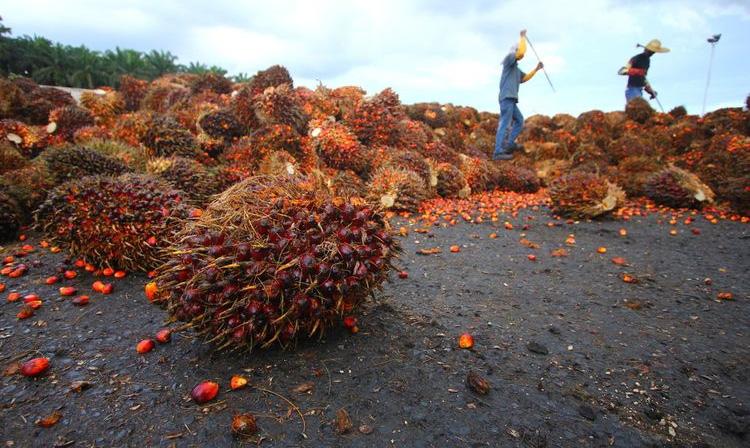
“Mungkin kecerdasan buatan adalah langkah setelah langkah berikutnya,” katanya. “Langkah pertama akan menggunakan beberapa teknologi yang sudah tersedia untuk membantu dekarbonisasi.” Industri menggunakan teknologi pengurangan emisi dan menggunakan produk sampingan biomassa sendiri untuk menggerakkan operasinya, tetapi ada teknologi terbukti termasuk pirolisis dan gasifikasi yang tidak digunakan secara luas, katanya. “Dalam industri minyak kelapa sawit, adopsi teknologinya rendah dan salah satu alasan adalah karena tidak ada urgensi untuk melakukannya, dan itulah mengapa kita tetap pada status quo.”
Jaya Prasanth Rajakal, seorang peneliti pasca doktoral di Universitas Sunway, telah bekerja pada sebuah proyek dengan Malaysian Palm Oil Council (MPOC) tentang bagaimana teknologi termasuk pirolisis dan gasifikasi dapat membantu sebagian industri mencapai nol bersih. “Total emisi untuk memproduksi satu ton minyak kelapa sawit mentah adalah sekitar 3.580 kg CO2,” katanya.
Analisis tersebut menemukan bahwa perkebunan dan pabrik dapat mengurangi emisi tersebut sekitar 70% dengan menggunakan daun-daunan yang dipotong sebagai pupuk, membakar serat dan cangkang inti untuk tenaga dan uap, dan memproduksi biomethane dari limbah pabrik. Memproduksi briket dari biomassa limbah yang tidak terpakai dan membakarnya untuk menghasilkan tenaga dapat memotong sisa 30% dan mendorong operator ke emisi negatif, katanya. “Sebagian besar EFB - tandan buah kosong yang merupakan sumber biomassa utama tidak digunakan dengan benar.”
Rencana Aksi Biomassa Nasional pemerintah Malaysia, yang diterbitkan tahun lalu, melaporkan bahwa hanya 50% EFB yang digunakan dan pemerintah bersemangat agar operator di seluruh rantai pasok membentuk klaster biomassa. Rajakal mengatakan jika EFB diubah menjadi briket, itu bisa mengurangi emisi menjadi -570 kg per ton minyak kelapa sawit mentah. “Kita akan melebihi nol bersih atau netralitas karbon sebesar 11%.” Sekali lagi, teknologi ini sudah banyak diadopsi di industri biomassa lainnya.
“Tantangannya adalah EFB memiliki kandungan air yang sangat tinggi. Jadi, kita memerlukan pretreatment untuk mengurangi kandungan air sebelum mengirimkannya ke pemrosesan briket. Jadi, teknologinya sudah tersedia, hanya saja kita perlu menemukan model bisnis atau cara untuk memperluas seluruh proses dan membuat usaha yang menguntungkan.”
Tantangan ini semakin rumit oleh kenyataan bahwa operator kecil termasuk petani kecil independen dan koperasi mengelola 26% lahan produksi minyak kelapa sawit Malaysia. Mereka membutuhkan dukungan pemerintah untuk mengadopsi teknologi-teknologi ini, katanya.
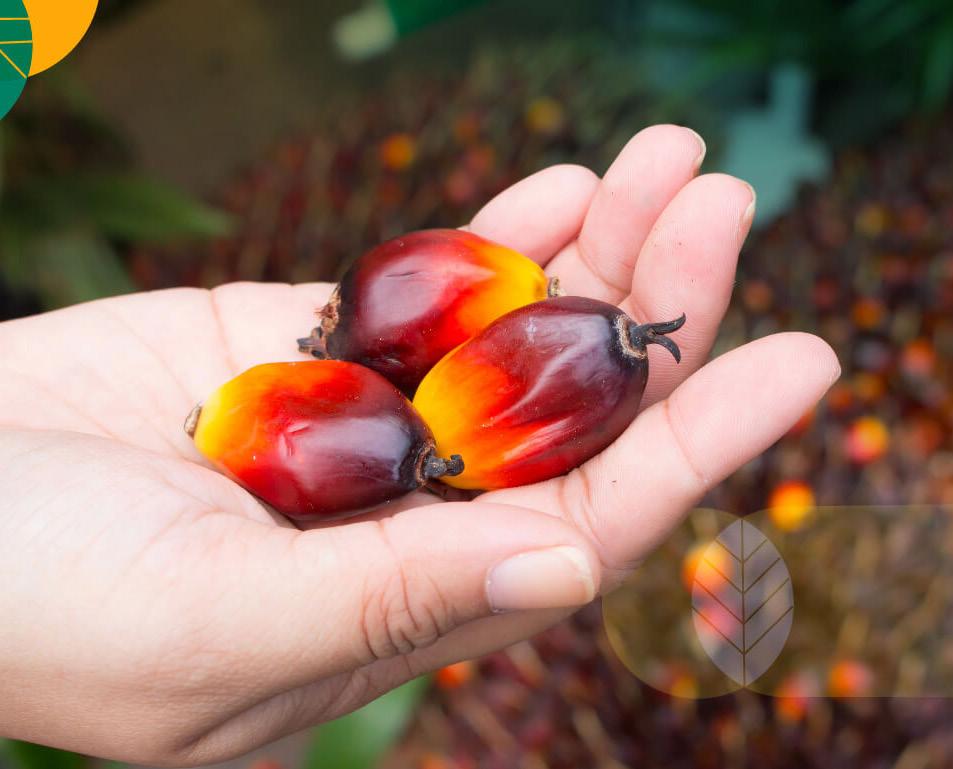
How setuju bahwa membantu operasi skala kecil memahami teknologi yang dapat membantu mereka mengurangi emisi mereka adalah kesempatan penting bagi komunitas teknik kimia Malaysia. Dia tahu bahwa hal itu tidak akan hanya datang dari mereka membaca makalah penelitian di jurnal yang telah ditinjau oleh rekan sejawat, bagaimanapun juga. “Kita tidak bisa hanya menunjukkan kepada mereka makalah-makalah tersebut. Kita perlu mentransfer ini menjadi sesuatu yang lebih mudah dicerna bagi orang awam. Dan kita tidak bisa hanya mempublikasikannya di internet. Kita perlu masuk ke dalam komunitas mereka, berbicara dengan mereka, dan membiarkan mereka melihat bahwa ada solusi yang berhasil. Bahwa ada kisah sukses.”
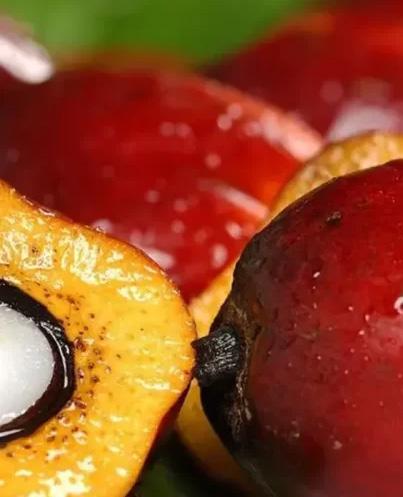
Dia juga ingin melihat industri berbagi lebih banyak. “Banyak industri di bagian dunia ini, kita masih sangat defensif... Saya mungkin memberi tahu Anda bahwa saya menghasilkan biogas, saya menghasilkan bio-oli, saya menghasilkan bahan bakar pesawat terbang. Tapi detailnya tidak akan saya beritahu kepada Anda.”
Jika kita ingin mempercepat menuju produksi yang lebih ramah lingkungan, katanya industri perlu mengubah kebiasaannya. “Anda tidak perlu membagikan semua rahasia, tetapi Anda perlu memberi tahu orang lain teknologi apa yang tersedia atau teknologi apa yang sedang Anda teliti. Dan juga berbagi kesuksesan. Jangan menyimpan kesuksesan hanya untuk diri sendiri.”
Ketika memandang masa depan, apa ambisi pribadi dari masing-masing peneliti ketika berbicara tentang meningkatkan keberlanjutan industri? Rajakal ingin menyelidiki bagaimana industri minyak kelapa sawit dapat membantu dekarbonisasi sektor-sektor lain dalam ekonomi, termasuk produsen yang sulit dihilangkan emisinya. “Misalnya, pabrik kelapa sawit dapat menghasilkan hidrogen hijau. Industri semen dan baja menghasilkan CO2 yang signifikan. Jadi bagaimana kita mengintegrasikan proses, menggunakan hidrogen hijau, menggunakan CO2, dan menghasilkan e-metanol? Bagaimana kita melakukan retrofit industri baja dan semen? Mereka dapat menggantikan batu bara dengan e-metanol. “Ini adalah sesuatu yang sedang saya teliti. Bagaimana kita mentransisi berbagai industri menuju netralitas karbon.”
How berharap karyanya dapat membantu pembuat kebijakan mendukung sektor minyak kelapa sawit dan mengadopsi teknologi dan strategi yang tersedia untuk menuju nol bersih. “Kemudian, untuk langkah selanjutnya kita dapat melihat bagaimana kita meningkatkan efisiensi lebih lanjut dan membuatnya bahkan lebih menguntungkan. Tidak hanya berkelanjutan dalam arti lingkungan tetapi juga ekonomi dan sosial.”
“I’VE ASKED a lot of chemical engineers what inspired them to study the subject. Do they recall the moment they realised they wanted to join the profession? For Bing Shen How, part of a large community of researchers looking to improve the environmental performance of Malaysia’s massive palm oil industry, it was a sliding doors moment. He enrolled at university to study mechanical engineering yet found himself attending the induction for chemical engineers.”
“I started to realise I wanted to be the person that builds the process,” he says. “I think other engineers can change the world as well but from my perspective the process is at the heart of all the changes. It’s very important.” He soon found himself in the head of school’s office asking if he could switch courses. “If I had decided not to go to that induction, my life would be totally different.”
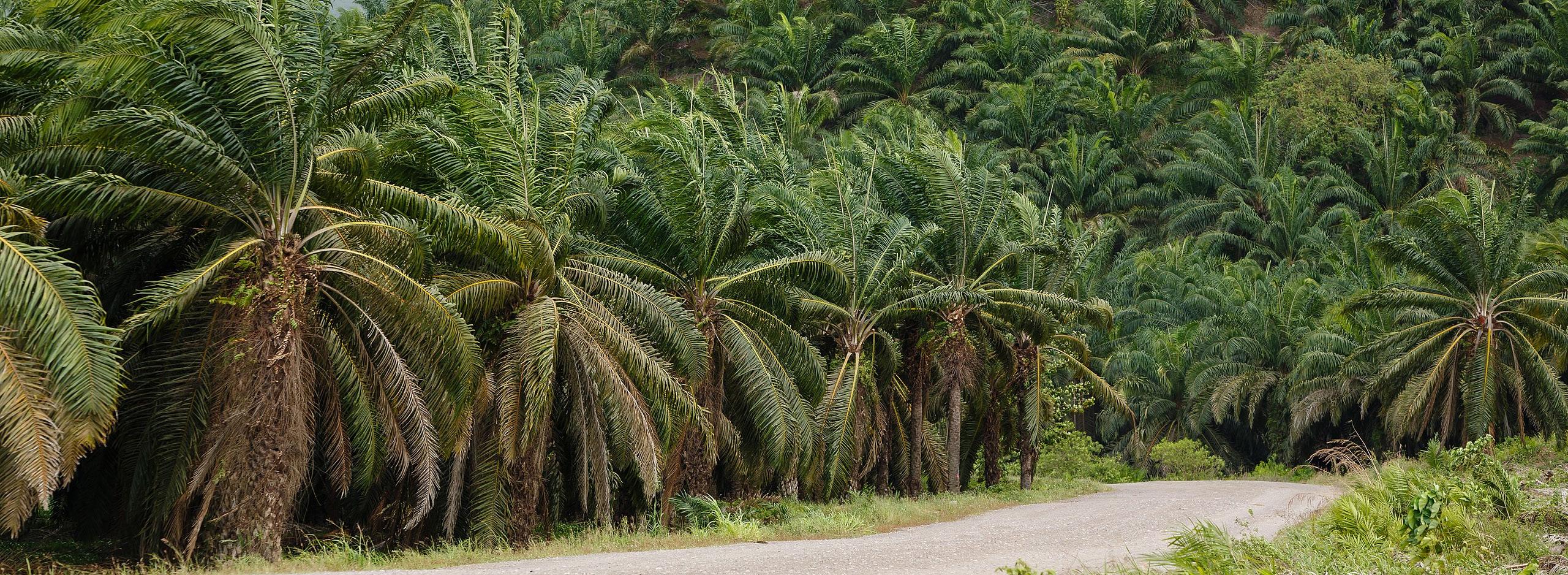
How is now a senior lecturer at Swinburne University of Technology in Sarawak where he teaches process plant design and supervises postgraduates focused on the circular economy, the use of biomass, and optimising supply chains. For his own research he’s been collaborating with what he describes as hardcore mathematicians in Hungary. He is helping them develop software that industrial process designers can use to optimise heat exchanger networks. He has also modelled what the optimal industrial networks in Pensinsula Malaysia might look like if there was a concerted effort to get the methane produced at palm oil mills and landfill to industrial users.
In 2022, he co-authored an article published in IChemE’s Chemical Engineering Research and Design journal that pinpointed future technologies that might help chemical engineering improve the sustainability of the palm oil industry. This included the use of AI for identifying new catalysts, drones for real-time monitoring of plantations, and blockchain technology to help track supplies of sustainably certified palm oil. While How is enthusiastic about these possibilities he says the Malaysian palm oil industry is not ready to embrace them yet.
“Maybe AI is the step after the next step,” he says. “The first step would be using some of the technologies that are already available to help the decarbonisation.” Industry is making use of emission abatement technologies and using its own biomass by products to power its operations but there are proven technologies including pyrolysis and gasification that are not being widely used, he says. “In the palm oil industry, the uptake is low and one of the reasons is because there is no urgency to do it and that’s why we just remain at the status quo.”
Jaya Prasanth Rajakal, a postdoctoral research fellow at Sunway University, has been working on a project with the Malaysian Palm Oil Council (MPOC) on how technologies including pyrolysis and gasification could help sections of the industry reach net zero. “The total emissions for producing a tonne of crude palm oil is around 3,580 kg of CO2,” he says.
The analysis found that the plantations and mills can reduce those emissions by around 70% by using mulched fronds as fertiliser, burning fibre and kernel shells for power and steam, and producing biomethane from mill effluent. Producing briquettes from unused waste biomass and burning them to produce power could cut the remaining 30% and push operators into negative emissions, he says. “Most of the EFB the empty fruit bunches which is a major biomass source is not properly being utilised.”
The Malaysia government’s National Biomass Action Plan, published last year, reported that just 50% of EFBs are being used and it is keen for operators across the supply chain to form biomass clusters. Rajakal says if EFBs were briquetted, it could cut emissions to -570 kg per ton of crude palm oil. “We would be exceeding net zero or carbon neutrality by 11%.” Again, this technology is already widely adopted in other biomass industries.
“The challenge is that EFB has a very high moisture content. So, we need some pretreatment to reduce the moisture content before sending it to briquette processing. So, the technology is available it’s just figuring out a business model or a way to scale the entire process and make a profitable venture.”
The challenges are compounded by the fact that small operators including independent smallholders and cooperatives manage 26% of Malaysia’s palm oil producing land. They need government support to adopt these technologies, he says.
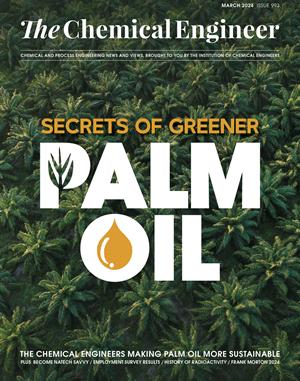
How agrees that helping small-scale operations understand the technologies that can assist them in reducing their emissions is an important opportunity for Malaysia’s chemical engineering community. He knows that won’t simply come from them reading research papers in peer-reviewed journals, however. “We cannot just show them the papers. We need to transfer this into something easier to digest for the layman. And we cannot just publish it on the net. We need to walk into their communities, talk to them and let them see that there is a successful solution. That there is a success story.”
He’d also like to see industry sharing more. “A lot of industry in this part of the world, we are still very defensive…I may tell you that I’m generating biogas, I’m generating bio oil, I’m generating jet fuel. But the detail I will not tell you.”
If we want to accelerate towards greener production, he says industry needs to break the habit. “You don’t need to share all the secrets, but you need to tell others what are the available technologies or the technologies that you are exploring. And also share the success. Don’t keep the success to yourself.”

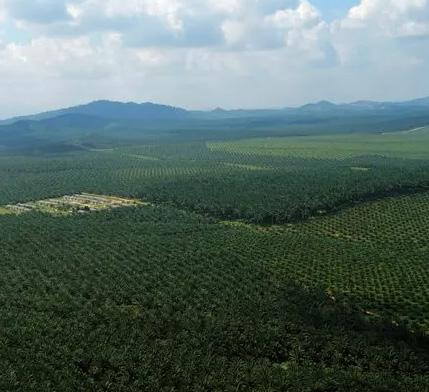
Looking to the future, what personal ambitions do each of the researchers have when it comes to improving the sustainability of industry? Rajakal wants to investigate how the palm oil industry can help decarbonise other sectors in the economy, including hard to abate manufacturers. “For example, palm oil mills can produce green hydrogen. Cement and steel industries produce significant CO2. So how do we integrate the process, use the green hydrogen, use the CO2 and produce e-methanol? How do we retrofit the steel and cement industries? They could replace coal with e-methanol. “This is something that I’m looking at. How do we transition different industries towards carbon neutrality.”
How hopes his work can help policymakers support the palm oil sector and adopt the technologies and strategies available to push towards net zero. “Then, for the next step we can look at how we further enhance efficiency and make it even more profitable. Not only sustainable in the sense of environmental but also economic and social.”
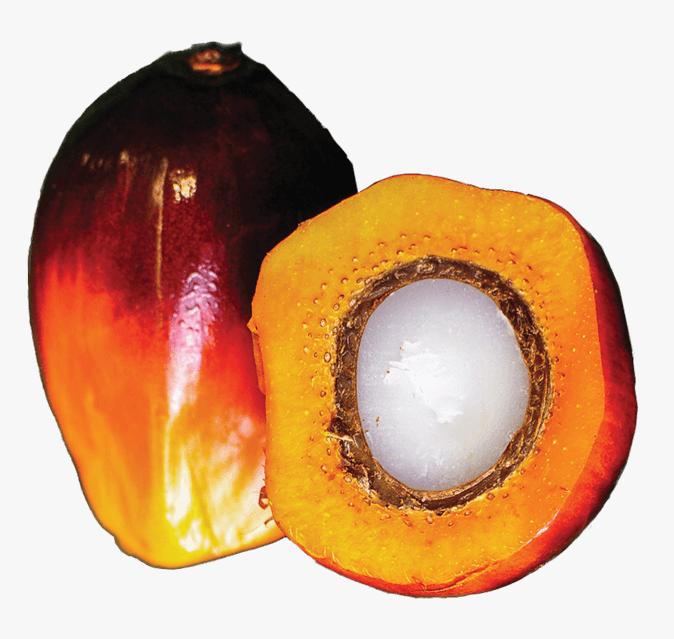

Sebanyak 233 teknologi, atau 32.7% darinya, telah terkomersialisasi dan diadopsi oleh industri dan pengusaha lokal, kata MPOB dalam sebuah kenyataan menyusul kunjungan Menteri Perladangan dan Komoditi Datuk Seri Johari Abdul Ghani ke fasilitas penelitian dan pengembangan lembaga di Bangi pada hari Selasa.
Selama kunjungan tersebut, Johari mengatakan sektor swasta harus terlibat dalam komersialisasi teknologi-teknologi ini untuk menyempurnakannya agar industri dapat menggunakan teknologi tersebut. “Kita dapat meminta sektor swasta, seperti FGV Holdings Bhd dan Sime Darby Bhd, untuk berkolaborasi dengan MPOB untuk melakukan uji coba,” katanya. Dia mengatakan teknologi MPOB dalam memproduksi formulasi makanan seperti analog keju mozzarella berbasis kelapa sawit adalah produk yang menjanjikan yang dapat digunakan dalam pembuatan pizza di Malaysia. “Analog keju mozzarella berbasis kelapa sawit diformulasikan menggunakan minyak kelapa sawit sebagai pengganti lemak susu dan tidak mengandung kolesterol dan asam trans lemak. “Analog ini memiliki kualitas dan fungsionalitas yang sama dengan keju mozzarella berbasis susu komersial dan cocok untuk pembuatan pizza,” katanya.
Selain itu, Johari berharap teknologi sukses MPOB dalam memproduksi formulasi pelet pakan untuk sapi potong dapat mengurangi impor pakan hewan Malaysia setidaknya sebesar 10% dan memungkinkan negara tersebut untuk mengekspor produk.
Menurut keterangan, teknologi tersebut, yang menggunakan produk kelapa sawit, menawarkan alternatif untuk bahan baku dan dapat mengurangi biaya produksi tinggi pakan hewan. “Uji coba komersial produk menemukan bahwa tidak mengorbankan nilai gizi dari pelet pakan. “Formulasi pelet pakan ini mengandung lebih dari 80% bahan berbasis kelapa sawit, yang meliputi bungkil kelapa sawit, tandan buah kosong, dan minyak kelapa sawit mentah, komponen nutrisi lengkap untuk pertumbuhan sapi potong sesuai dengan spesifikasi nutrisi,” katanya.
Menteri dan delegasinya juga mengunjungi pabrik percobaan margarin MPOB, pusat bioteknologi dan pemuliaan maju (ABBC), dan galeri kelapa sawit, katanya. Lembaga tersebut mengatakan ABBC adalah pusat koleksi germplasm kelapa sawit terbesar di dunia untuk konservasi dan penelitian berbasis pemuliaan dan bioteknologi kelapa sawit serta sumber untuk produksi bahan baku kelapa sawit unggulan.
Koleksi germplasm kelapa sawit telah menjadi sumber dalam penelitian MPOB untuk menghasilkan material tanam unggul melalui pemuliaan atau kultur jaringan, katanya. “Pabrik percobaan margarin MPOB dan fasilitas laboratorium menawarkan keahlian penelitian dan pengembangan dalam pembuatan produk makanan berbasis lemak untuk industri minyak dan lemak. “Produk konsumen yang dapat diformulasikan menggunakan fasilitas pabrik percobaan termasuk minyak cair, margarin lembut, batu, kue, dan pastry berbasis minyak kelapa sawit, minyak lemak cair dan padat, serta mentega sayuran,” katanya.
MPOB mengatakan kunjungan menteri tersebut menegaskan komitmen pemerintah untuk memajukan upaya penelitian dan pengembangan dalam industri kelapa sawit. “Dengan visi bersama untuk kemajuan, MPOB dan Kementerian Perladangan dan Komoditi tetap berkomitmen untuk mendorong pertumbuhan, keberlanjutan, dan kemakmuran dalam sektor kelapa sawit Malaysia,” tambahnya. - Bernama
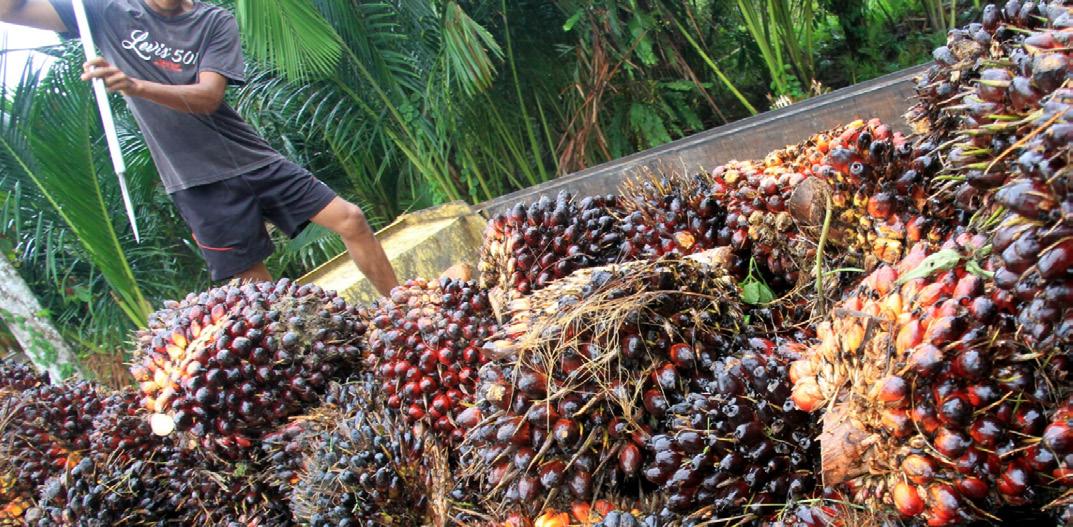
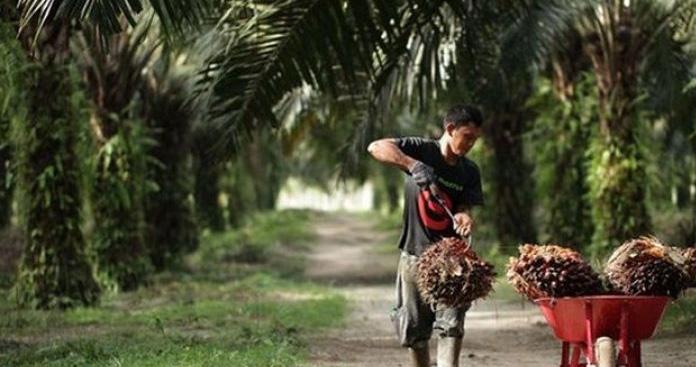

Atotal of 233 technologies, or 32.7% of them, have been commercialised and adopted by local industries and entrepreneurs, said MPOB in a statement following Plantation and Commodities Minister Datuk Seri Johari Abdul Ghani’s visit to the board’s research and development facilities in Bangi on Tuesday.
During the visit, Johari said the private sector should be involved in the commercialisation of these technologies to refine them so that the industry can use the technologies. “We can request the private sector, such as FGV Holdings Bhd and Sime Darby Bhd, to collaborate with MPOB to do the trial,” he said. MPOB develops 714 technologies for oil palm industry, 33% commercialis. He said MPOB’s technology in producing food formulations, namely the palm-based mozzarella cheese analogue, is a promising product that can be used in pizza making in Malaysia. “Palm-based mozzarella cheese analogue is formulated using palm oil as a substitute for milk fat and does not contain cholesterol and transfatty acids. “This analogue has the same quality and functionality as commercial milk-based mozzarella cheese and is suitable for pizza making,“ he said.
Additionally, Johari hopes that MPOB’s successful technology in producing the feed pellet formulation for beef cattle can reduce Malaysia’s import of animal feed by at least 10% and enable the country to export the product.
According to the statement, the technology, which uses oil palm products, offers an alternative to raw materials and can reduce the high production cost of animal feed. “The commercial trials of the product found that it does not compromise the nutritional value of the feed pellet. “This feed pellet formulation contains more than 80% of palm-based ingredients, which include palm kernel cake, empty fruit bunch, and crude palm oil, a complete nutritional component for the growth of beef cattle by the nutrient specification,“ it said.
The minister and his delegation also toured MPOB’s margarine pilot plant, the advanced biotechnology and breeding centre (ABBC), and the oil palm gallery, it said. The board said ABBC is the world’s largest oil palm germplasm collection centre for conservation and research based on oil palm breeding and biotechnology and a source for the production of superior oil palm materials.
The oil palm germplasm collection has become a source in MPOB’s research to produce elite planting materials through either breeding or tissue culture, it said. “MPOB’s margarine pilot plant and laboratory facilities offer research and development expertise in manufacturing fat-based food products for the oils and fats industry. “Consumer products that can be formulated using the pilot plant facilities include palm-oil based fluid, soft, brick, cake, and pastry margarine, fluid and solid shortenings, as well as vegetable ghees,“ it added.
MPOB said the minister’s visit underscores the government’s commitment to advancing research and development efforts within the oil palm industry. “With a shared vision for progress, MPOB and the Ministry of Plantation and Commodities remain dedicated to fostering growth, sustainability, and prosperity within Malaysia’s palm oil sector,” it added. – Bernama

PAGE 3

INSIDE FRONT COVER YKL Group www.yklgroup.com.my
PT Kaltimex Energy www.kaltimex-energy.com PAGE 1
PAGE 15
Wasco AgroTech Sdn Bhd (Formally known as PMT Industries Sdn Bhd) www.wascoenergy.com
Nee Soon Teknik Sdn Bhd / P.T. NST Sawit Teknik www.nst-intl.com
PAGE 24-25
Muar Ban Lee Group Berhad www.mbl.com
PAGE 37
JJ-Lurgi Engineering Sdn Bhd www.jj-lurgi.com
INSIDE BACK COVER
PT ABB Sakti Industri www.new.abb.com/id
BACK COVER
PT Altrak 1978 www.altrak1978.co.id

A plant that connects to everything.
Talk to us.
Are you thinking about digitalization but don’t know where to start? Our comprehensive portfolio and consultative approach runs from power management to palletizing, and from automation to digitalization. So whether you need to start collecting data or analyze complete processes, we have the answer. Discover the possibilities at new.abb.com/food-beverage
